














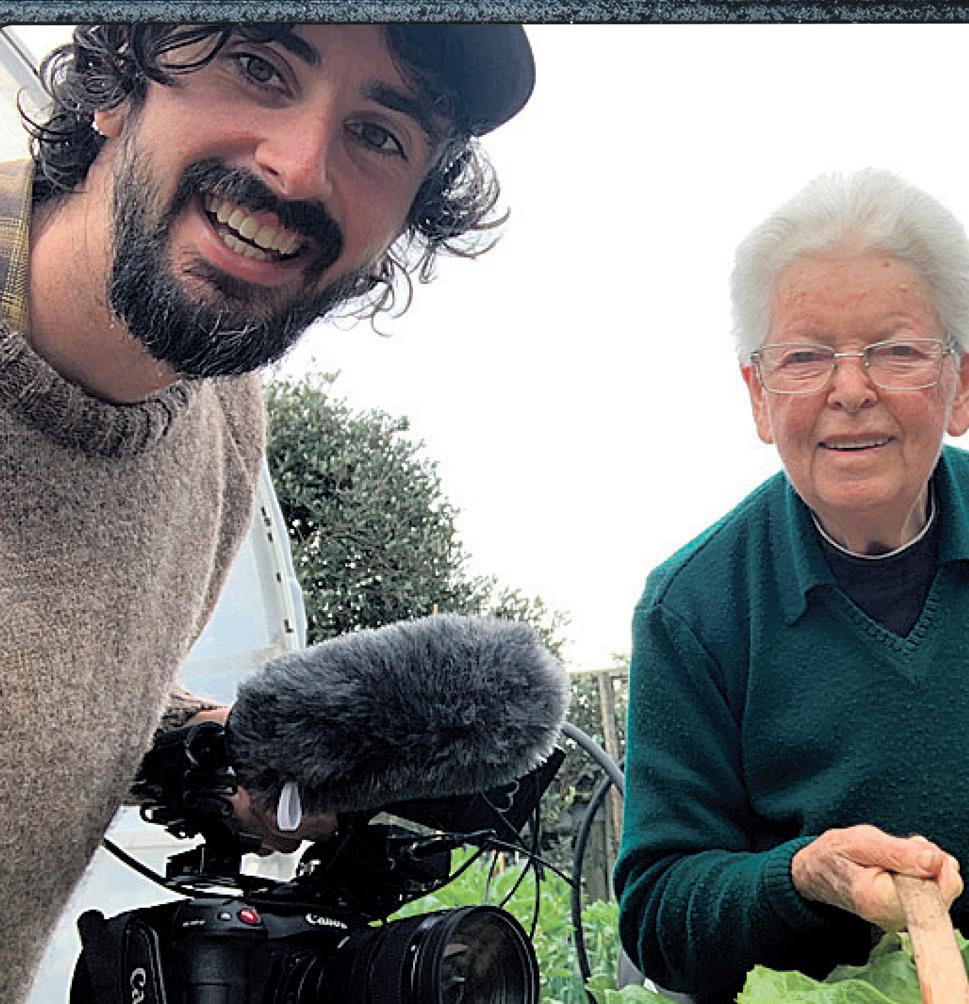






A local “powerhouse of a woman” is part of an ambitious, global film project to celebrate “how beautiful the world is, and how beautiful humanity can be”. Carterton resident, writer, avid gardener and social campaigner Helen Dew is the subject of a short documentary called Being the Change at 85 – the third in a series of 12 films to be released once a month this year.
The dozen films – collectively titled Something Beautiful for the World – is a creative collaboration between New Zealand production company Happen Films, South African filmmakers Reflections of Life, and Sweden’s Campfire Stories.

The series launched in January on YouTube with the first documentary, Find Belonging, filmed by Reflections of Life in Singapore.
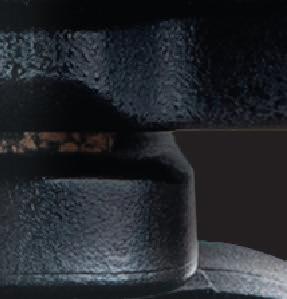
Each of the films “showcases people whose small acts have an immeasurable impact”

on the people and environments around them, Antoinette Wilson, Happen Films’ co-founder, said.
Wilson and her collaborators are “trying to tell stories that give a different view of how to be in the world,” she said.
“[They are stories] about people who are living in the world in ways that are inspirational to others. And Helen is a really good example of that: Of somebody whose day-to-day way of being has impacted not only the soil around her – the impact she has on the community is enormous.”
Dew is well known in her community, and further afield, for supporting a range of initiatives: Including the establishment of Carterton Farmers’ Market and communitydevelopment organisation Ka Pai Carterton, as well as maintaining an impressive edible garden, running regular workshops on seed-saving, gardening and composting, and promoting local and global currency projects.
Continued on page 3
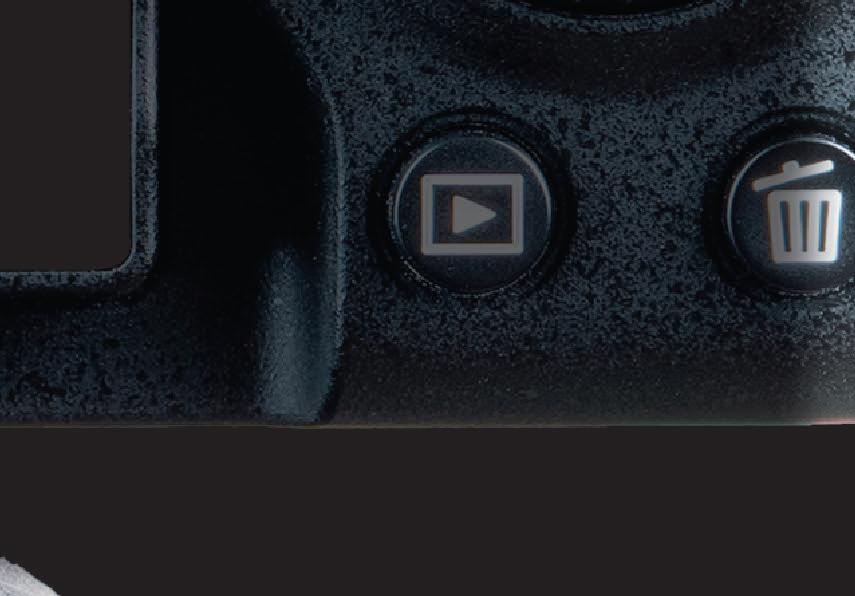




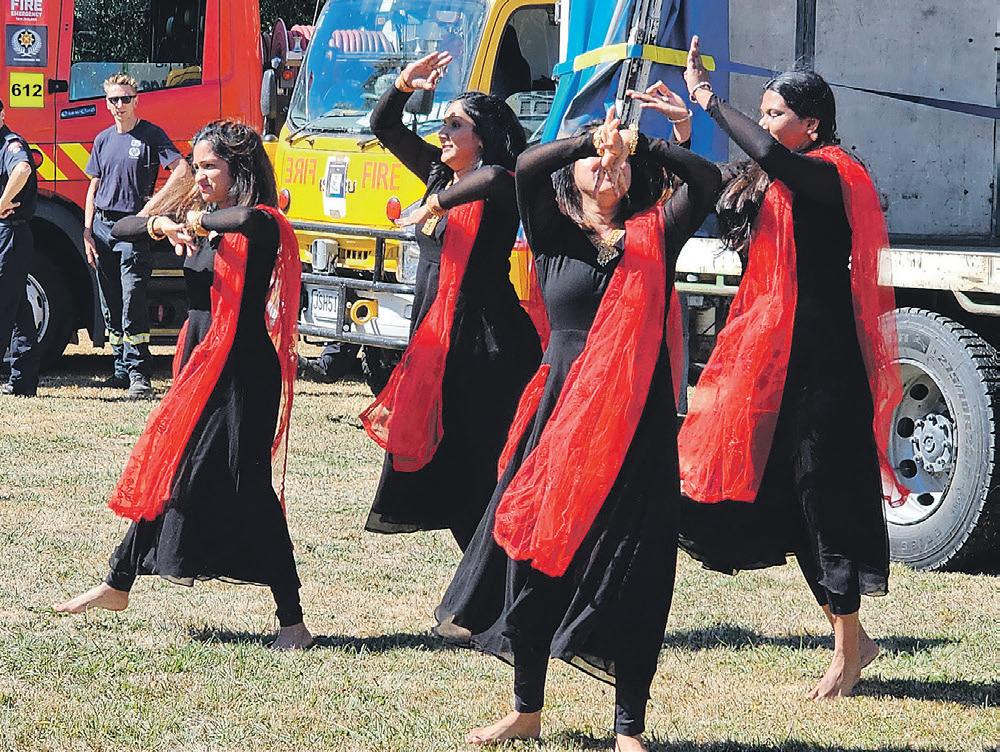
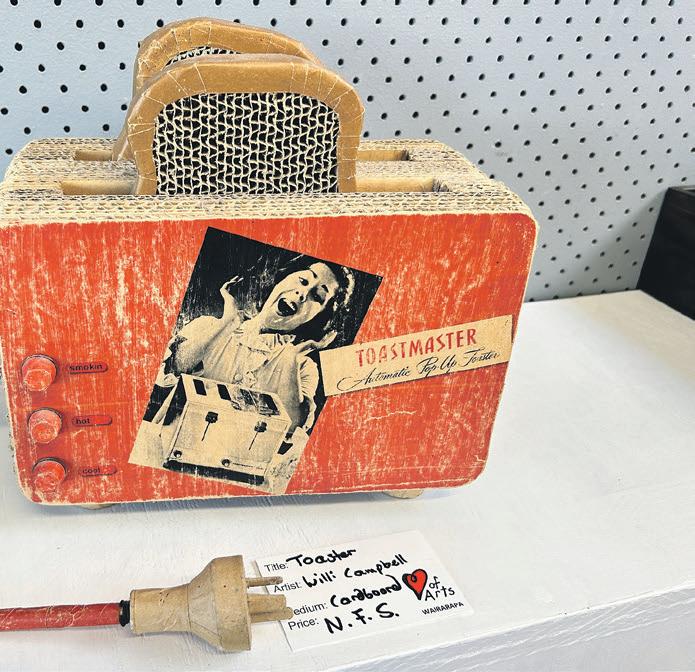

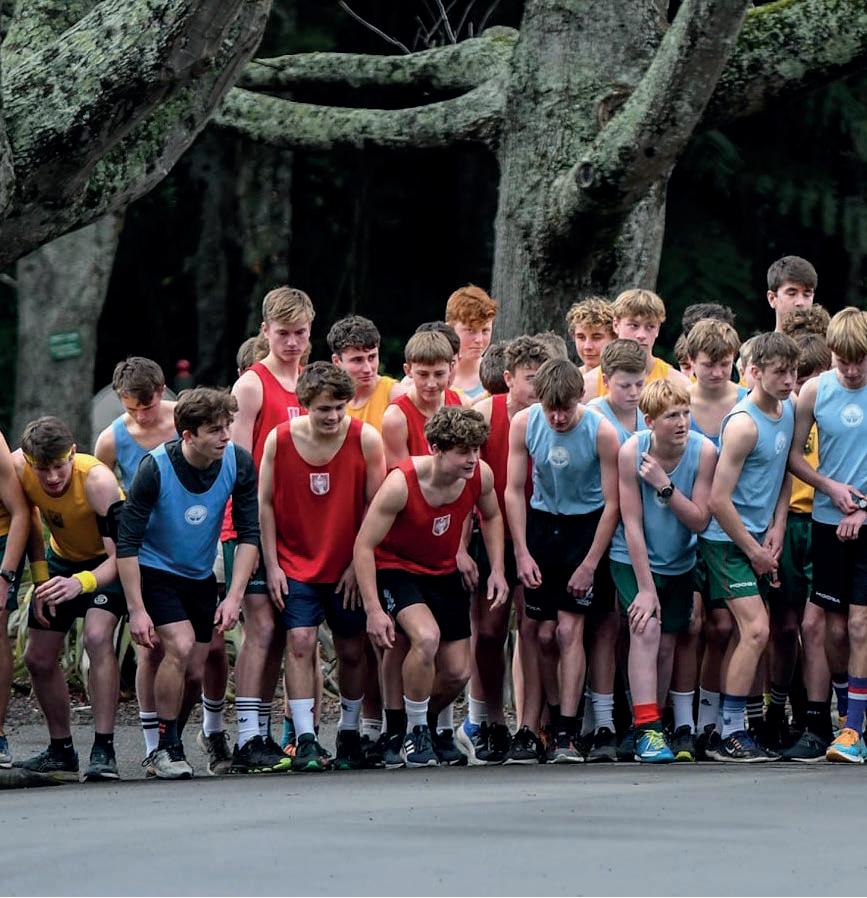
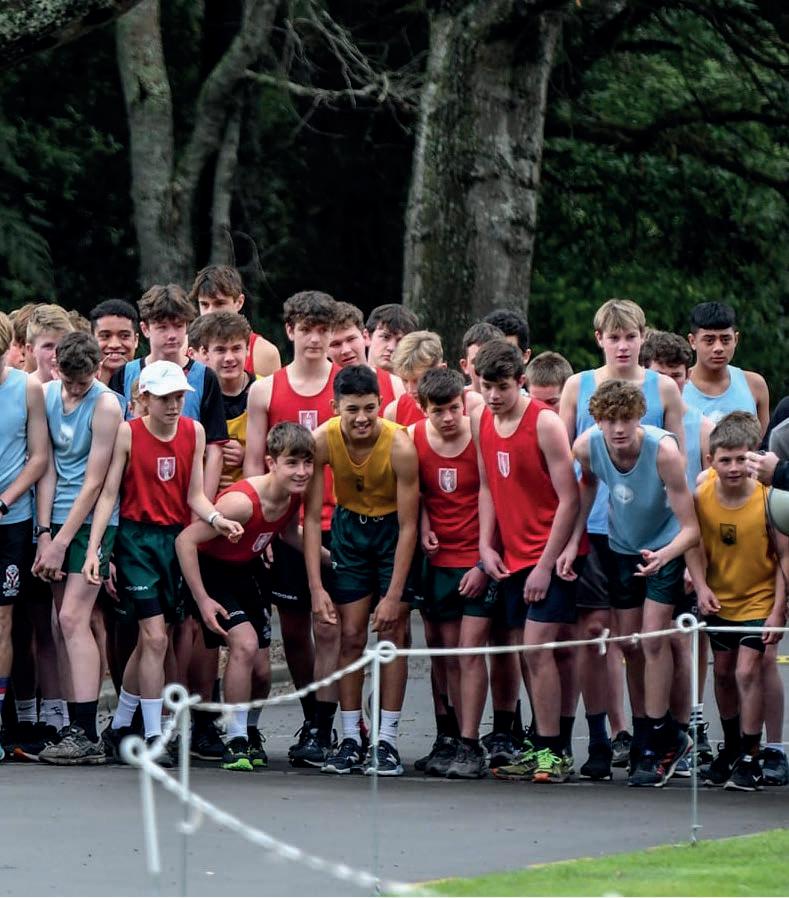
Wilson’s connection with Dew began just over a decade ago at Carteton Farmers’ Market – in what turned out to be a formative encounter.
“Helen had all her books out on the table, and she directed me to a couple that were quite life-changing for me,” Wilson, whose father grew up in Carterton, said.
“I wasn’t making films at that stage, so I really see her as being one of the people that set me on my path. Helen has been quite a defining person for me.”
Wilson and her creative partner, Jordan Osmond, first interviewed Dew for Happen Films’ first feature documentary, Living the Change [2018], which explores solutions to the climate change crisis.
“We loved how she spoke on camera – it always makes me cry. And we always had her in mind for a showcase documentary,” Wilson said.
“Helen is a kind of force,” Wilson said –and Being the Change
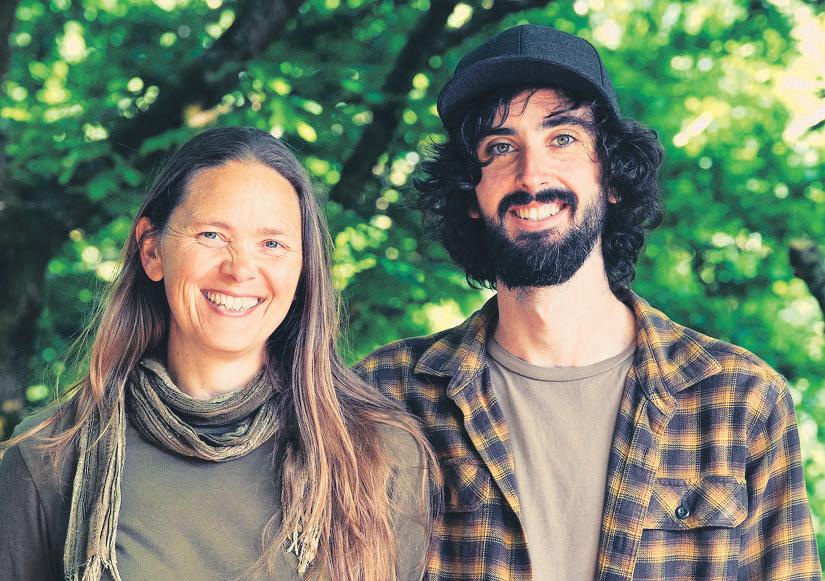
at 85 explores “her commitment to what she does, her passion for it, for the ‘why’ of what she does.”
“Her commitment to spreading the message is so strong you can’t avoid her, and I think she’s amazing for that reason.”
Dew describes being asked to be part of Something Beautiful for the World as “unreal” and “a great honour” – but is far more modest about her efforts to live in an environmentally and socially conscious way.
“You see, the way I live makes perfect sense. I don’t see anything remarkable about it, but
Volunteers are reeling after a beloved frog figurine and several toy aeroplanes were stolen from the Manuka Reserve in Masterton last month.
The brazen thefts were discovered by Liz Waddington, who lives adjacent to the public native plant reserve and was a key leader of the
community project to create it in Lansdowne 25 years ago.
The metal frog, depicted as playing a drum alongside a group of five other frogs, is about 60cm tall and was mounted on a totara post, which was screwed into the ground.
The thief – or thieves –used a chainsaw to hack it from its post in broad daylight on February 20.
Because it was a

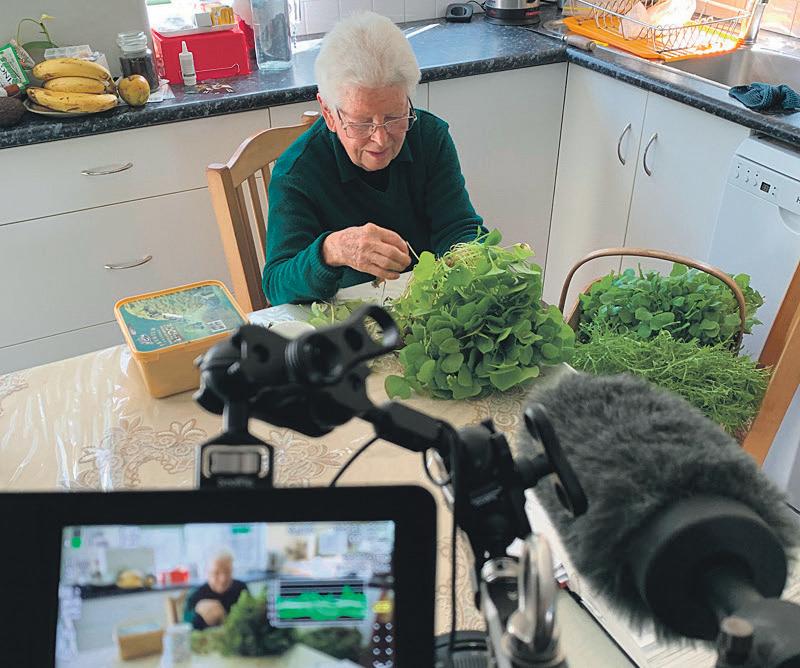
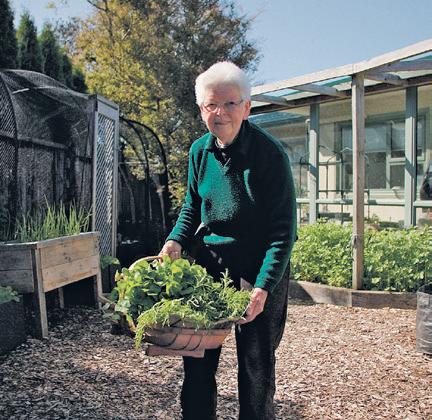
other people do,” she said.

However, she admits, “If you’d known me as a younger person, you wouldn’t recognise the person sitting here. Chalk and cheese.”
As a busy mum of four children, “being a mum and doing the practical things”, Dew she was “shy, extremely introverted, lacking in confidence and selfesteem. I wouldn’t say boo to a goose. Invisible.”
A formative encounter of her own with a church minister and counsellor in her mid-life helped her “recognise straightaway that the person I need to

to first is me, pay attention to yourself, and what’s happening for you.”
She has been unstoppable ever since.
In 2002, Dew helped found the Living Economies Educational Trust to share with people “the DNA of money” and encourage communities to establish “sustainable, interest-free means of exchange” to strengthen regional economies.
It’s an aspect of Dew’s work that Wilson is particularly interested in, and she hopes Being the Change at 85 will
help stimulate broader curiosity in the topic.
“I was just so fascinated about her perspective on alternative currencies and the impact of the money system on everything,” Wilson said. “ I just hope that having the film there gives her a platform for being able to share that message a bit more widely.”
And there’s another message Being the Change at 85 has the potential to share, Wilson said.
“I think there’s a really lovely and important message that ageing doesn’t need to mean slowing down,” she said.
“What’s really
interesting about Helen is that she found herself and her reason for being when she was in her 60s. And I think that’s a hopeful and wonderful message – that as life goes on, rather than narrowing your focus or your world, you can expand it and become more engaged with your community and what makes you thrive in life.”
• Being the Change at 85 premieres on Friday, March 22, at 7pm at the Rangitahi Hub at the Carterton Events Centre. Tickets are $8 from www.events. humanitix.com/beingthe-change
part of a group.”


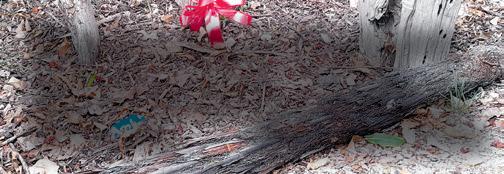
Tuesday, the chainsaw noise was not noticed among the usual neighbourhood sounds, Waddington told Midweek
“If there’s noise in the reserve at night, or on the weekend, I’m up there like a shot,” she said.
The group of frogs,
shown playing instruments and singing, was donated to the reserve about six months ago and the metal critters were painted green before being installed beside a path in the Enchanted Forest section.
Anger over the frog’s theft turned to dismay, when just a few days later,
Summer weather could mean water restrictions in Masterton - dependent on flow levels in the Waingawa River, the source of Masterton’s drinking water. For the latest information on what restrictions are in place:
y keep an eye on the billboards around Masterton
y check out our website (www.mstn.govt.nz)
y download the Antenno App. It’s free and you’ll get the latest water restriction information sent directly to your phone. Scan the QR code for links to download for Apple or Android.
some model aeroplanes used to decorate the reserve’s miniature Hood Aerodrome were also swiped – including one toy aircraft sitting in a tree.
Waddington, who walks through the reserve regularly and who, with fellow volunteers, has planted “thousands and thousands of trees” there, said the frog and aeroplanes could be returned “no questions asked”.
“We don’t need to know who stole them,” she said. “We’d just like them back, as they’re extra special. Especially the frog, who is
Waddington and neighbour Lesley Marsh developed the Enchanted Forest for families, with magical surprises. Volunteers spot decorations in second hand shops and buy them to place among the native plants.
“The reserve is used by lots of families and dog walkers and we encourage people to bring special things to leave for others to enjoy,” Waddington said.
“Things do get stolen – we always lose a few decorations at Christmas.”

In part two of her feature on homosexual law reform in Aotearoa, ANGELA YEOMAN speaks with former Labour MP and trailblazer Fran Wilde and activist Bill Logan about the role of committed volunteers in changing the law, opposition from politicians and notable organisations, and the impact of reform on gay New Zealanders.
In 1985, Labour MP Fran Wilde told the House that, “If we are effectively to combat the spread of AIDS in New Zealand, we must remove the criminal label from the prime target group and ensure that those people feel secure enough to participate in a public education programme.”
Public education was key
“The gay community launched a massive campaign to change the law,” Wilde [now living in Greytown] said. “At the beginning, I don’t think any of us knew how big or how hard that campaign would be.”
Some MPs that privately agreed with a law change knew they’d be voted out of office if they publicly supported the Homosexual Law Reform Bill.
“We realised that a public education campaign was needed to change public opinion in those electorates where MPs wanted to support a change in the law,” Wilde remembered. “Back then, organising locally was the key.”
“In 1984, it was not an MMP environment. What happened in the electorate mattered even more at that time than it does today,” Logan added.
Groups of supporters

formed all around the country and, for over a year, Wilde’s Parliamentary office was packed with volunteers on the phones, liaising with print media, doing radio and TV interviews, and writing letters. They lobbied MPs, business leaders, and clergy. They organised meetings in town halls.
“And gay men, bravely, started coming out even before the bill passed,” Wilde said. “They were our neighbours, workmates, sons, brothers, and even our husbands. They were standing up and saying: ‘This is me and this is all about my future.’
“They were the real heroes of the campaign because, until the bill passed, were still considered criminals in the eyes of the law.”
Conversations met with some backlash. Wilde recalled the day the Salvation Army presented a petition to Parliament.
“They were all in uniform, with flags and hymns, and it looked like a Nuremberg rally. Boxes of petitions were delivered.
“When the petitions were audited, however, it became apparent that many of them had false names or were repeats or came from classrooms of children who had been forced to
sign them. Public opinion turned against the Sallies because of their tactics.”
Some people against the human rights embedded in the bill wanted to also roll back existing rights, such as the criminalisation of violence against women and rape in marriage.
Wilde was of the view that, “We’d let the genie out of the bottle and so we absolutely had to pass that bill.”
The mid-1980s were a time before the internet, social media, and mobile phones. “We probably wouldn’t get such a Bill through today,” Wilde mused. “Disinformation, lies, and hatred would spread nationwide on social media.”
“Although,” Logan reflected, “if we’d had social media, we might have reached more young people.”
Dispelling myths
Backed by research painstakingly compiled for her by the gay taskforce and other supportive groups –including medical and religious groups, and one calling themselves “Heterosexuals Unafraid of Gays” – Wilde was able to dispute many myths. The Turnbull Library was able to provide Wilde and others with weekly photocopies of up-todate and relevant articles

from around the world, including from medical journals.
The first myth met head on was the claim that homosexuality is a violation of Christian moral standards.
“It offends against God and man,” Graeme Lee, MP for Hauraki, said. Allan Wallbank, MP for Gisborne, announced that “Christian teaching is explicit on the matter of sodomy.”
Some MPs held the alarming – and incorrect – view that homosexuality was the same as paedophilia.
“Homosexuality will not stop at the age of 16 but will spread to 10-yearolds and 12-year-olds,” one MP stated.
But Wilde and supporters had drafted the bill with an age limit for consenting homosexuals consistent with the age already in law for consenting heterosexuals: 16. Paedophilia was to remain a criminal act. She was also able to assure Parliament, “Jesus said almost nothing about sexuality ... and nothing about an age of consent.”
Opponents of the bill claimed young people would be corrupted if it was passed – implying that if young people were exposed to information about homosexuality, or to social or sexual contact with homosexuals, they would themselves choose homosexuality.
Norm Jones, MP for Invercargill, referred to the potential for the “spread of homosexuality,” as if it were a disease. The military, schools, and families would be torn apart under this spread, he said.
“There is no evidence to back up that assumption,” Wilde told the House.
“On the contrary, there is a vast body of research showing that even actual sexual experience in the mid to late teenage years does not play a part in determining sexual orientation.”
She drew on evidence from the Royal College of Psychiatrists that primary sexual orientation is fixed early in life, long before age 16.
There was also much debate about whether a law change would contain




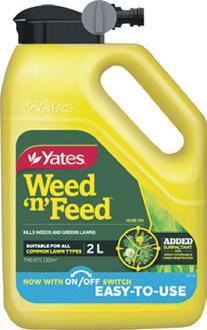







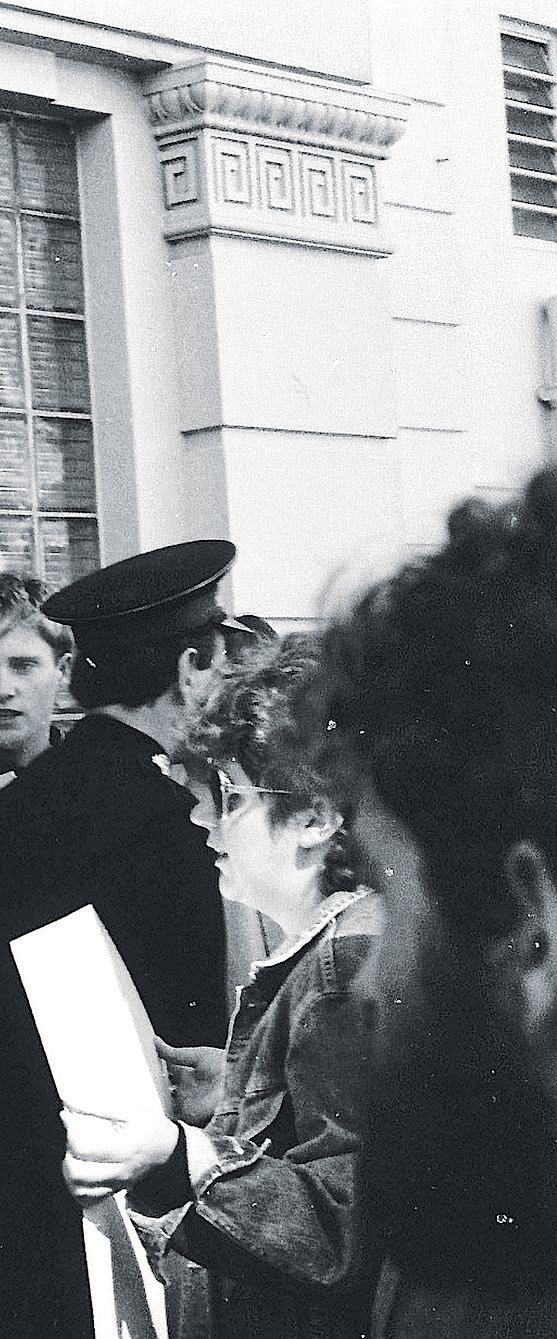
the AIDS pandemic.
“A vote to legalise homosexuality … would be a vote to legalise the spread of AIDS throughout New Zealand,” Norm Jones thundered. “More New Zealanders will die of AIDS in the next 10 years than would die in a nuclear explosion.”
He later contradicted himself – telling media in November 1985 he was trying to delay the bill so that “more people would
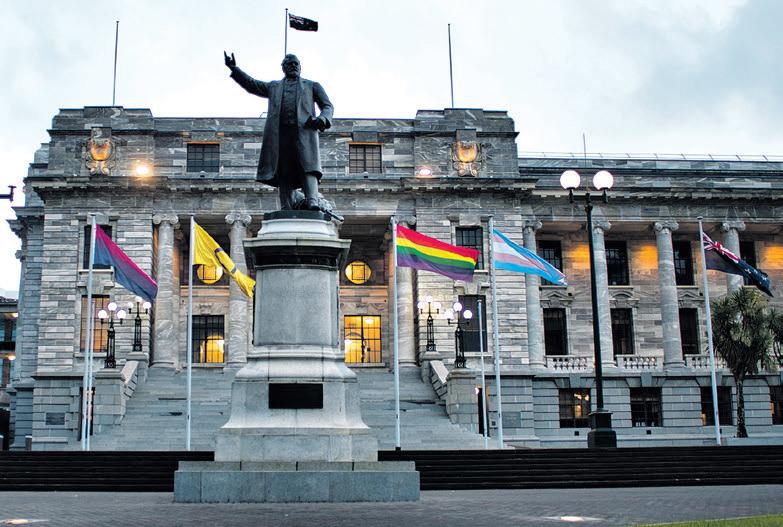
die of AIDS.”
When the ‘ayes and noes’ regarding the introduction of the bill into the House in 1985 were counted, there were 51 for and only 24 against. One of the notable ‘noes’ was from Winston Peters, now Deputy Prime Minister.
Changing lives
In July 1986, the Homosexual Law Reform Bill narrowly passed and was enacted into law. Prior to the bill passing, most gay men could not admit their sexuality outside of gay-only environments.
“The loyalty of workplaces, families, and friends could not be tested,” Logan recalled.
Men thought to be gay were assaulted, arrested,
and sacked from jobs. A 1984 Wellington-based survey of gays and lesbians found that 75 per cent had been subjected to verbal abuse, and 42 per cent threatened with physical violence.
Geoff*, from Wairarapa, knew he was gay from a young age, but was terrified of what it might mean for his life in small town New Zealand. His young love with a man was stopped in its tracks by his parents, and Geoff was taken to a doctor for treatment. Eventually, he married a woman, and had several children.
But a few years after the passing of the bill into law, Geoff, now in his 40s, knew he couldn’t spend the rest of his life hiding the truth – especially
as turning away from intimacy with his wife had strained their relationship to breaking point. Their separation was truthful and amicable.
“I was blessed. I had a great life. Our children are wonderful, and I have nothing but respect for my former wife,” he says.
Today, Geoff lives with his partner of more than 25 years: A man who had been forced to undergo conversion therapy in his own youth.
Bill Logan, a selfdescribed “Trotskyist”, has spent his life searching for fairness and equality. As he increasingly became aware of his sexuality, he got involved in the gay community centre, the gay switchboard, and organisations like the Dorian Society and the Victoria Club where he was among friends. Before the law change, gayness was ghettoised. He opened a book shop that became an unofficial gay drop-in centre. “These were our places.”
Asked if he thinks his life would have been different if homosexual law reform hadn’t passed, Logan remarked, “it would have been more isolated. And I would probably have ended up in a different line of work.”
Today, Logan is a counsellor and wedding and funeral celebrant. These roles sprang
from the 1980s when he volunteered for the gay switchboard, was involved in the AIDS support network, and became Deputy Chair of the AIDS Foundation. Gay men, alienated from the church, were searching for alternative funeral options – which Logan stepped up to provide.
In closing
Homosexual law reform was just one of many enormous political and societal shifts in which Dame Fran Wilde was involved. It’s an illustration of our society at its best. Although the human rights aspects of the bill failed first time around, Parliament passed these in later years, thanks to National MP Katherine O’Regan.
Logan closes by saying, “people have always had gay sex, but it is only more recently that gayness as an identity could even be considered. Thanks to the reform of archaic laws, gayness has been destigmatised. But that stigma has now been transferred to transgender people.”
Though 2024 is the 25th anniversary of Georgina Beyer becoming the world’s first openly transgender MP, there is still work to do. *Names have been changed.

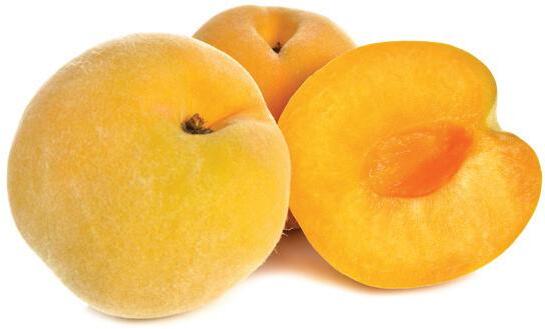


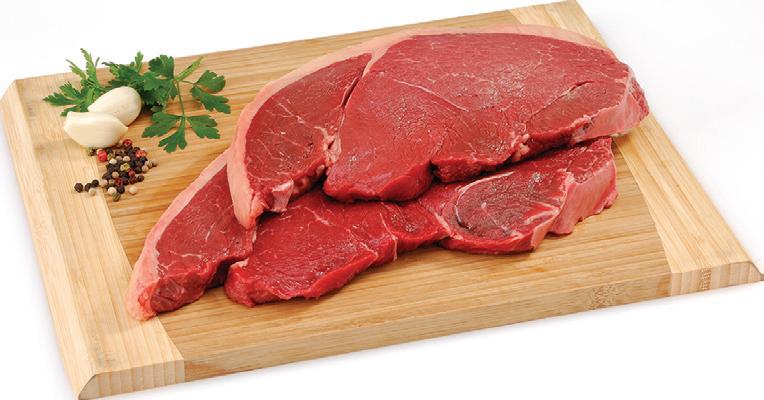
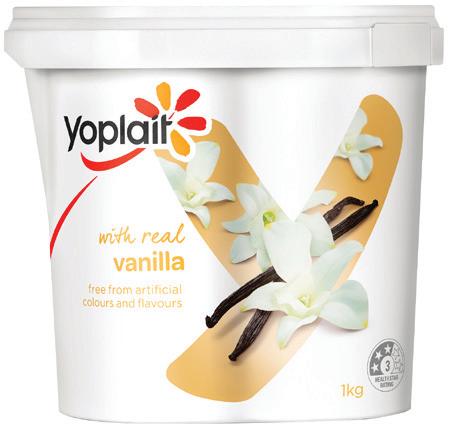
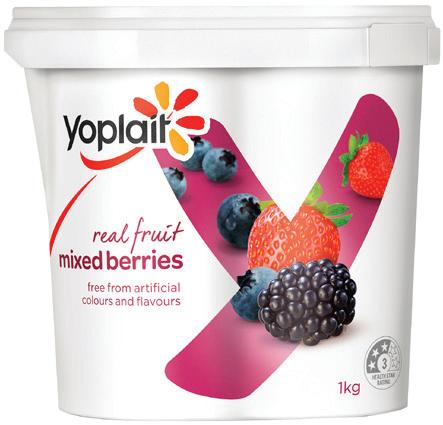

The organisers of a month-long T20 cricket tournament hope it will “become a calling card” for “the coolest little town” of Featherston, where the competition will be hosted.
“There is so much talent in this town, and there’s so much going on here,” organising committee member Ava Sanganoo said. “In the Featherston Cup 2024, people can expect to see top quality cricket, with top calibre players in New Zealand,”
This is the competition’s third year in its current format and is organised by a small group of passionate sports fans, including Sanganoo, Roshan Sugathan, Marc Van de Loo and Nifo Ili from the Featherston Sports Hub, Scotty Young and Amanda Cuff.
“Cricket is in our DNA,” Sanganoo said of the committee.
The Featherston Cup 2024 bowls into action this Sunday at Card Crescent Reserve, with the opening match between two of the 12

teams that will travel to Featherston from across New Zealand in the competition: Petonebased Leopards, and Sikh Sports from Wellington.
It will be the first of three matches to be played on the first Sunday of what is being touted as a “high-quality T20 cricket tournament” for the region.
And it’s not just local fans of the game who will be able to enjoy live T20 cricket every Sunday until the end of the month. Thanks to the international backgrounds of many of the players, and the fact each match will be live-streamed from the Featherston Cup Facebook page, viewers
from across the globe will be able to watch every bowl, catch and leg before wicket.
“One of the things we found very interesting from the last two tournaments is that, because of the quality of the play, but also the cultural connections of the players, we hit close to 6000 live stream viewers,” Sanganoo said.
Those viewers included Sanganoo’s own family in her birth country, Barbados, where cricket is “in our blood”.
This year, the organisers have managed to secure funding to pay for live commentary which will add to the video offer.
“People can tune in and






see their family and see their friends. We do have an audience out there, and that’s why I think [the tournament] has grown,” Sanganoo said. Sportswear manufacturer Code Uniforms is the series sponsor this year.
The organisers are encouraged that Code “may commit to a longer relationship with us”, Sanganoo said. “They really see the bigger picture.”
Other event sponsors have been drawn firmly from local businesses, including Brac n Bow, C’est Cheese, Kia Ora Dairy, Langs Pharmacy and FreshChoice Featherston [formerly SuperValue].
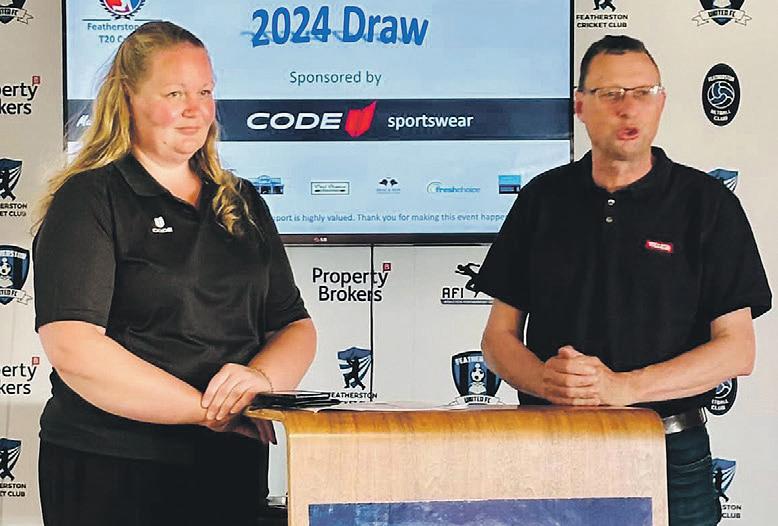
“I’m so grateful how local businesses always come to the party,” Sanganoo said. “They get it. We couldn’t put on these events without them.”
To strengthen the potential positive impact of the tournament on the town, the competition handbook this year includes a list of all the local eateries, sponsors and local accommodation options.
“So when people come into town to take a break, or their team has finished playing, they can come into town and support the businesses that have supported us,” Sanganoo said.
As well as promoting the town, the organisers
hope the Featherton Cup 2024 will grow the game locally – and revive the local cricket club by encouraging junior participation and developing pathways for younger players.
“The local club has a huge history, and we need to pass the baton down to the young people,” Sanganoo said.
• The Featherston Cup will begin on Sunday, March 10, at 9am.
The semi-final and final matches will take place on March 30 and 31. For more information about the tournament, and to access the live-stream, go to www.facebook. com/featherstonCC









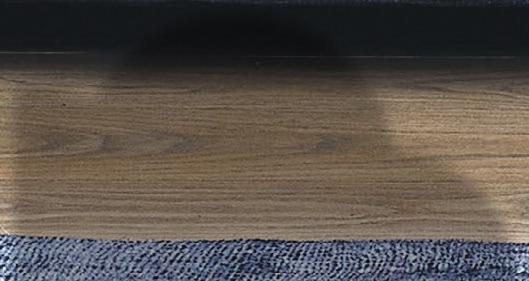



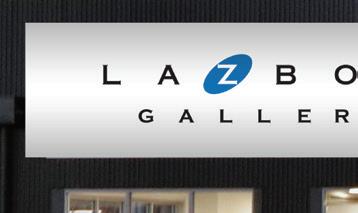
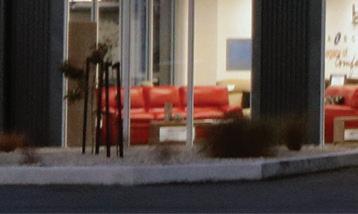

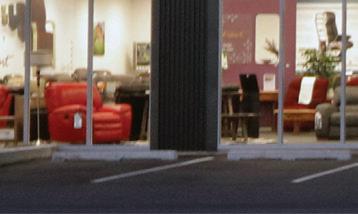



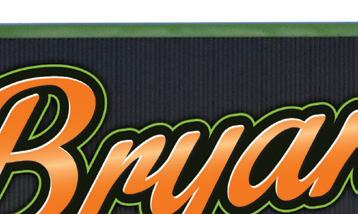

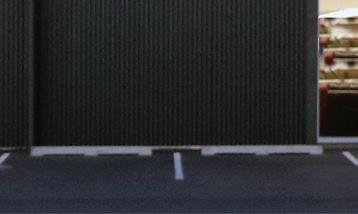


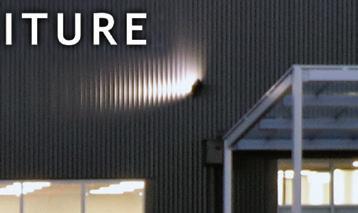
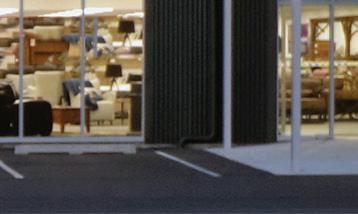

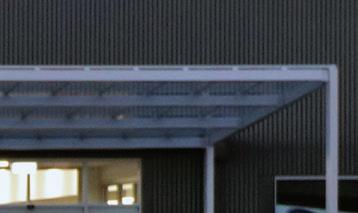



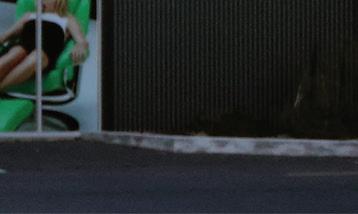
Martinborough’s Pump Track Project will have a second bite of a major fundraising cherry –after being chosen again to receive funds from the upcoming Skyline Challenge, which was cancelled last year.
The bike and scooter track, planned for Martinborough’s Considine Park next to the town’s swimming pool, has been the focus of community fundraising for the past 18 months.
To date, $167,000 has been raised since South Wairarapa District Council granted use of council land for the track, Pump Track Project spokesperson Charlotte Harding told Midweek.
The track is expected to cost up to $280,000 but that figure “was a moveable beast” – and likely to be reduced, due to offers of help from local businesses, she said.
Last year, the Martinborough Lions Club chose the Pump Track Project as the recipient of money expected to be raised from its annual
family friendly Skyline Challenge: In which runners, walkers and mountain bikers complete distances across private farmland overlooking the town.
The event includes 8km, 10km, 16km, and 34km courses over the “diverse terrain” of three historic sheep stations [Huangarua, Puruatanga and Oystershell farms] and a flat 3km kids’ circuit.
“Unfortunately, challenging weather meant the 2023 event needed to be cancelled,” Harding said.
“However, the Lions Club came back to us this year and said they would like proceeds from the 2024 event to go to us.”
A pump bike track includes jumps, rollers and other fun obstacles. The 220m Martinborough track has been designed by Byron Scott, of TrailPro in Auckland.
Instead of hard pedalling, wheels enthusiasts use body momentum and gravity to propel themselves forward around the track, Harding said.
It is hoped construction will begin later this year.
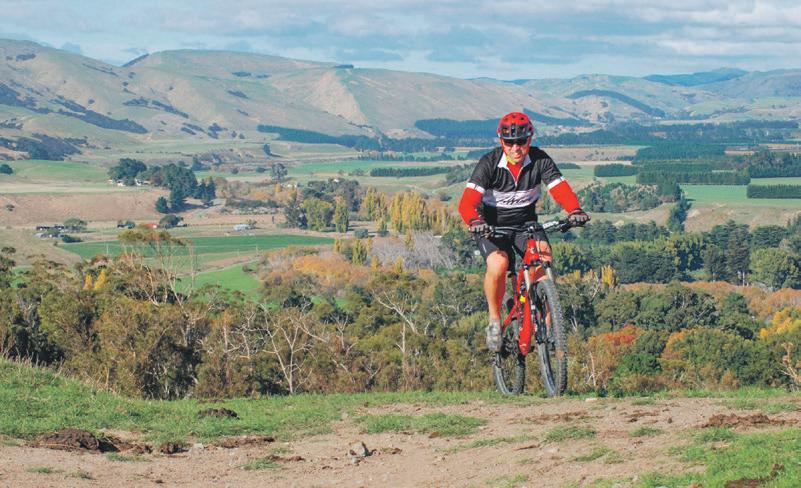
“Byron is willing to work with flexibility around local support,” she said. “He has been in to talk with senior pupils at Martinborough School, to find out what they want.”
Community feedback led to the inclusion of a toddlers’ loop to keep little ones safe from “flying teenagers” on the main trail, Harding said.
“We are also committed to making the track suitable for scooters and skateboards, as they’re very popular in our town.
“We’ve been watching success stories coming out of places like the Masterton skatepark and want to encourage our children to ‘next level it’
when they’re using the track.”
The track will be for all ages but particularly children aged 11 and up, looking for something to do in Martinborough.
“We’re building the best thing we can for our community,” Harding said.
A Colour Run event will also be held in Martinborough on March 10, to raise funds for the track.
The Martinborough Skyline Challenge is on Saturday, April 20, starting from 276 Ponatahi Rd, 2.7km from Martinborough. Go to www.skylinechallenge. co.nz for more information and tickets.

 Lucy Cooper lucy.cooper@age.co.nz
Lucy Cooper lucy.cooper@age.co.nz
People from across the region are invited to take part in “the happiest kind of run you can do” in Martinborough this month to raise funds for the community’s pump track.
Inspired by the Hindu festival of Holi – the “festival of colour” – the Martinborough Colour Run, held this Sunday, is the perfect excuse to get covered in paint, event organiser Charlotte Harding said, and boost the fundraising coffers to get the pump track over the line.
“We invite you to hop, skip, dance, walk, run, jump, whatever you want, around our short course and be targeted with colourful powder paint and end up a rainbow of colour,” Harding said.
“Bring a picnic. There’s
going to be music, the bubble tea van from Featherston, and some food trucks.
“It’s going to be very relaxed, family fun.”
The Colour Run is back by popular demand after a successful inaugural event in 2019, Harding said.
“It was requested by the public as part of the pump track fundraising. And we wanted to create that vibe again.”
Raising money for the pump track project began about 18 months ago, and is progressing well, Harding said. The Colour Run starts at 3pm on Sunday, March 10, and participants will need to bring their own t-shirt.
Tickets can be purchased from www.eventfinda. co.nz, or at the gate.
Tickets are $10 for under 13-year-olds and $20 for over-13s. A family pass can be purchased for $50.









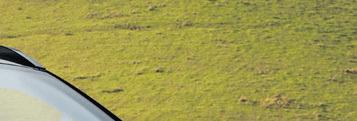








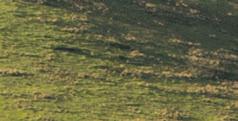
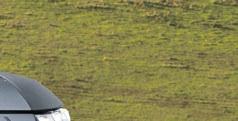




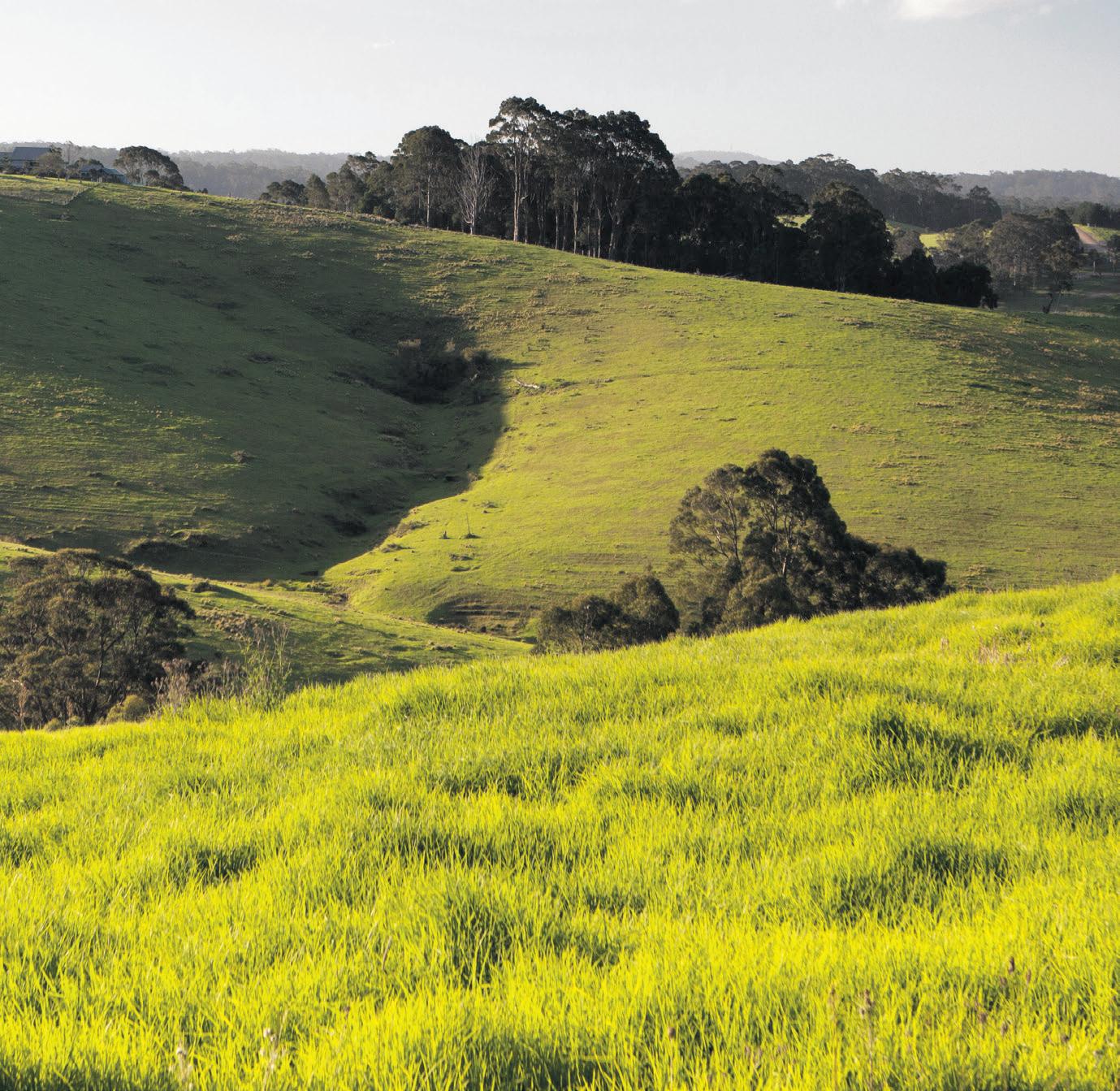

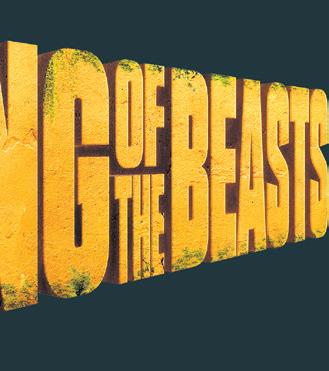




At the moment we have a wonderful selection of Grapefruit plants to choose from.
Grapefruit make very attractive standalone/ specimen additions; contrast nicely with other trees & shrubs; and we have dwarf growing types that can be grown in large pots.
Container growing is a great idea for small gardens, or for those who live in a rental— the portable garden can be taken from house to house. Another bonus to planting in containers is that they can moved around during the year to get the best sunlight, and to avoid frost or strong winds.
To get the best out of your tree try and choose a choose a spot that gets around 6 hours sun per day, has protection from strong wind & frost, and they must have well drained soil, wet feet can lead to root rot. A simple way to get them o to a good start is by planting in Tui Citrus & Fruit Mix. This can be used in the garden as well as pots.
A good way to ensure your grapefruit gets o to a good start is by planting in Tui Citrus & Fruit Mix.
For best results ll pots, bags or planting holes with Tui Citrus & Fruit Mix $16.30 each or 2 for $30
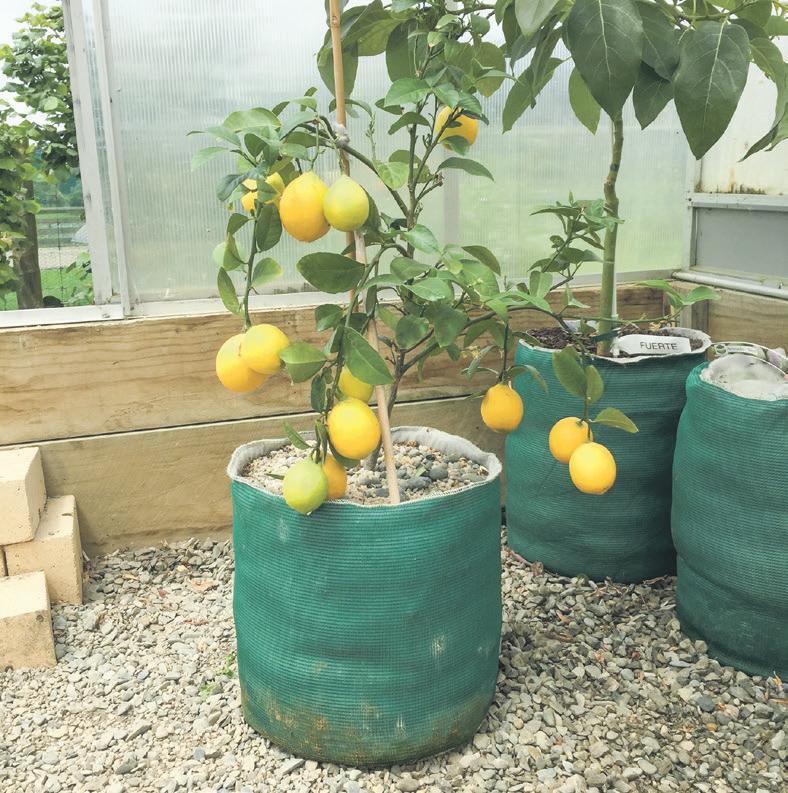
Grapefruit are full of vitamins, minerals & nutrients and are also low in calories. They contain Calcium & Iron as well as:
Vitamin C: to support the immune system
Vitamin A: to help maintain immune function
Fibre: eating just a half can slow down digestion making you feel fuller
Citric acid: which can help prevent kidney stones








Autumn has arrived, so make the most of the prime planting time and get your Home Orchard

Create your own movable orchard with EverGrow Bags. These NZ made root control bags keep trees compact and encourage heavy fruiting. They can sit above ground, nestle inside a pot or you can plant the bag into the ground & dig them up later, they won’t rot. 20L with handle $31.49. 30L with handle $36.99

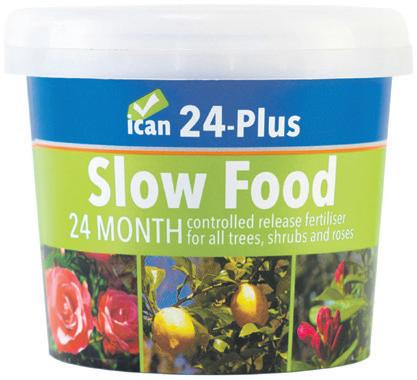
For a limited time we’re giving away a FREE 500g ican SLOW FOOD with every grapefruit tree sold, valued at $13.90. This 24 month controlled release fertiliser is a safe & easy way to feed everything in your garden & pots.

Masses of lightly


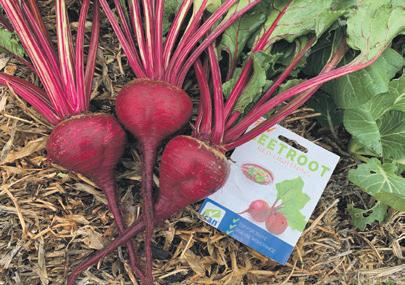


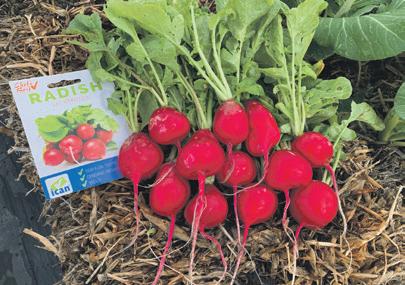


NZ variety, very popular
Will ripen in cooler areas (July—Nov)
Large, mostly seedless fruit with orange esh & thin skin
Australian variety
Heavy bearer, great for juice
An excellent breakfast fruit with just enough acidity
Frost tolerant once established
Cold hardy, can tolerate frosts when established
Summer ripening (Nov - March)
NZ variety
Large fruit with pale yellow thin skin, juicy esh, tasty lemony avour
Large fruit that is sweet & juicy with a bit of ’zing’
Deep orange rind & orange-yellow esh
Good bearer, ripens from late winter (July—Nov)


For a few years now we have been selling the ican Chef’s Best range of seed exclusively here at GardenBarn, and we are happy to say the feedback we receive is incredible!
The range isn’t huge, but you can be sure if it’s available in the ican range they’re the ones to sow.
Below are some examples of some of the crops recently grown using only ican seeds apparently they tasted better than they looked!
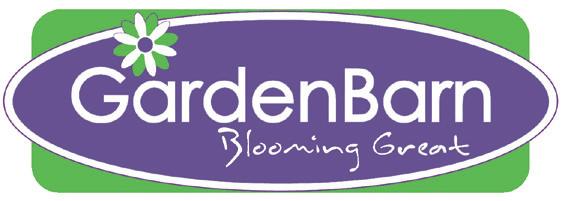


Come and pick up our FREE ican brochures so you can plan ahead and create a garden to be proud of







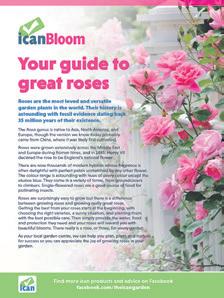
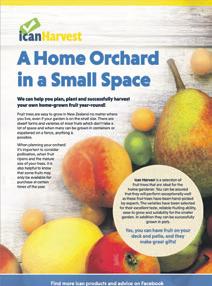





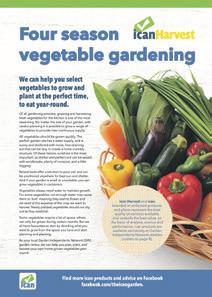
A thriving Carterton art collective opened its latest exhibition at a warm and vibrant event last week, featuring live music from Jimmy Pope and Lucy Zouch.
“Out of the Box” at Heart of Arts [HOA] gallery on High Street runs throughout March and is “not just a title”, HOA committee member and artist Sonya Bremmers said.
“It’s a concept that captures the very essence of the artistic journey we are embarking on.
“The artists featured in this exhibition have put effort into creating works that defy conventional boundaries and are influenced by trailblazers that think outside the square, daring to challenge the norms.”
“Out of the Box” features photography, painting, ceramics, mixed media, jewellery, pottery, prints –indeed the whole gamut of artistic expression.
The collective’s membership currently stands at 70 – with over 30 volunteers who help keep the doors open five days a week and the collection refreshed.
Together with a nineperson committee, “we






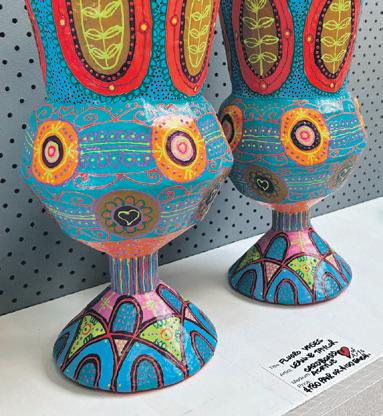
form a collaborative force that propels the gallery forward,” Bremmers, who describes herself as a “fullblown mixed media artist”, said.
“One thing I want to emphasise is that we are very inclusive,” she said.
“We are open to everybody. We do not judge. Instead, we celebrate the diverse perspectives that contribute to the rich



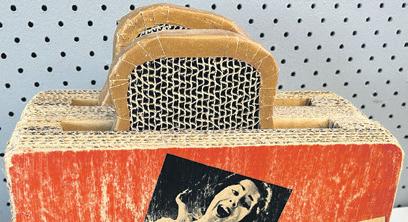
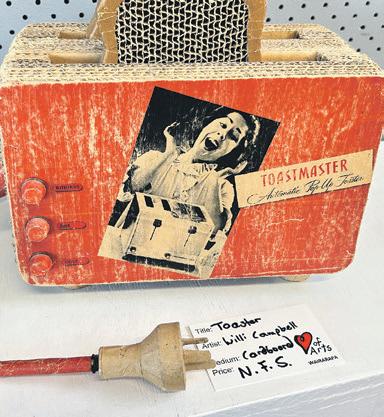
tapestry of the local arts scene.”
“We are really welcoming, and everyone who comes here comments on that,” acrylic artist Lynne McCartney said. Mosaic artist Hugh Gaywood, whose work “Lego Man”, was recently in the Wairarapa Art Review at Aratoi, agreed.
“Whether you are a novice or a specialist, you
are worthy. Get in here!”
“The word ‘collective’ is really important to us,” Gaywood said. “It means everybody.”
The Heart of Arts’ emphasis on inclusivity is reflected in the price of membership, which currently stands at just $40 a year.
“Membership is what keeps the lights on, and the air conditioning on,” Gaywood said. “We need our membership to be as big as we possibly can make it without losing that collective approach.”
In addition to the support of its members and volunteers, HOA
receives grants from the “good people” at Carterton Creative Communities and Masterton Trust Lands Trust [MTLT].
A recent MTLT grant helped pay for the purchase of four large boards which provide eight display spaces that members can hire for $20 a month.
• Heart of Arts is at 47 High St North and is open Wednesday –Friday 10am to 4pm, and Saturday and Sunday, 10am to 2pm.
“Out of the Box” runs to March 31. For more information, email coordinator.hoa@ gmail.com.

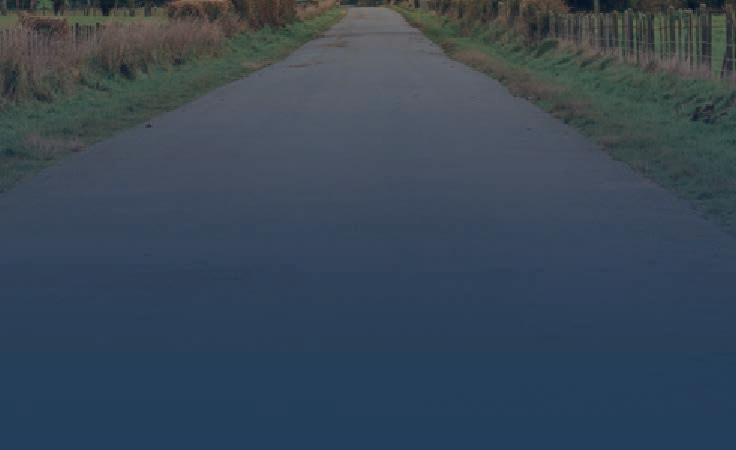
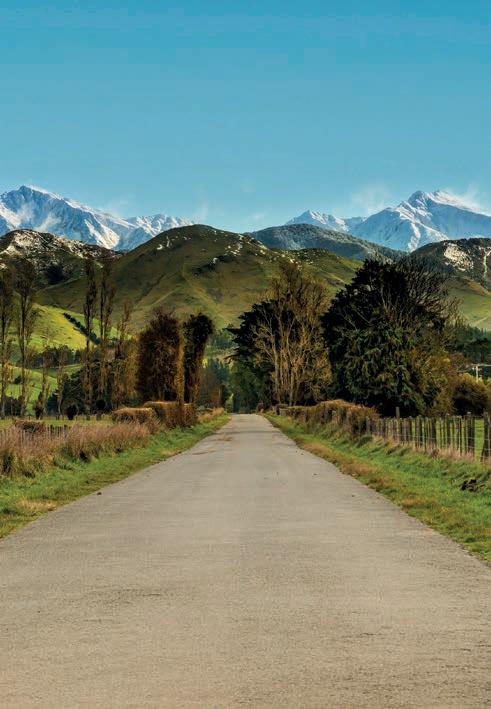




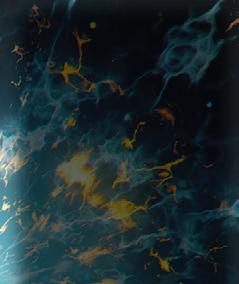

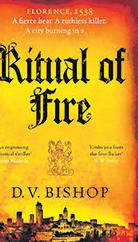


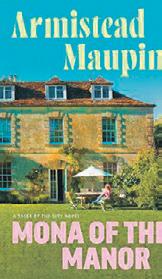
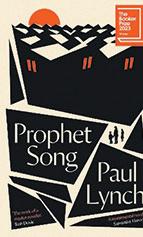
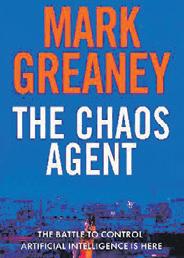








Over the last two editions of Midweek, we’ve run a feature story by Angela Yeoman looking back on homosexual law reform in Aotearoa – first gaining momentum almost 40 years ago.
It’s been a joy reading Angela’s work, and learning about this watershed moment:
Especially Dame Fran Wilde’s tireless advocacy as Wellington Central MP, the Rainbow volunteers whose grassroots campaign ensured landmark change, and the courage of the gay community in the face of the AIDS pandemic, widespread discrimination, and constant threats of arrests and assault. Heroes, every one of them. Aotearoa has a vibrant political queer history: Starting in the 1960s and 70s with the first gay liberation groups, and continuing into the 21st century with the passage of civil unions and marriage equality, progressing transgender and intersex rights, and the ban on conversation therapy. In 1995, the late Georgina Beyer, former Mayor of
Carterton and Wairarapa MP, became the world’s first openly trans woman elected to public office. In 2023, Lonely Planet rated New Zealand in its top 10 most Rainbow-friendly places on the planet.
We’ve come a long way since the mid-80s. There is, however, work to be done.
Over the last few years, US parliamentarians have passed laws – mostly targeting trans people and drag performers – making communities more unsafe for LGBTQ+ Americans. Increased homophobic violence soon followed. American influence stretches far: And, in New Zealand, similar backlash has made a comeback.
Since 2022, Rainbow leaders and researchers have witnessed an uptick of anti-queer sentiment online: Becoming more virulent and brutal since the US law changes and “gender critical”
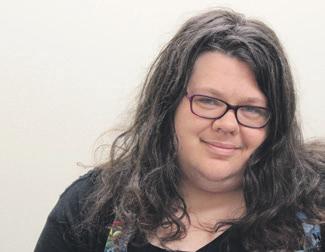
activist Posie Parker’s visit to New Zealand. This has translated into in-person attacks: Arsons, vandalism, and physical violence. Protests outside drag story time events – including in Masterton – are common. A 2022 survey of LGBTQ+ youth found one in six respondents didn’t feel safe at their school or university, and almost two-thirds had considered suicide.
There’s a lot to unpack here. But, reading Angela’s feature, it’s easy to see so much of the same old script being played back: Won’t someone think of the children?!
In the 80s, we couldn’t have homosexual law reform because “homosexuality = paedophilia”. We couldn’t have young people learning about homosexuality or being exposed to gay men –they’ll choose gayness
themselves!
In the 2020s, drag performers reading cute books about individuality and self-belief at public libraries is “grooming children”. Trans women cannot use the bathroom that matches their gender identity because it’s dangerous for cis women and children. We can’t have diverse identities as part of our school curriculum because it’s forcing “gender ideology” on children.
Four decades ago, gay men were stigmatised, isolated, and ghettoised because of the threat they represented for children and young people. And, we’re seeing it over again –this time, mostly alienating the trans community. And all despite overwhelming evidence that LGBTQ+ individuals pose little danger to children, and educating young people about the Rainbow community is unlikely to influence their sexuality.
Again, are creating monsters out of our vulnerable citizens. And, we’re expecting our queer siblings to have a “civilised discussion” with those who

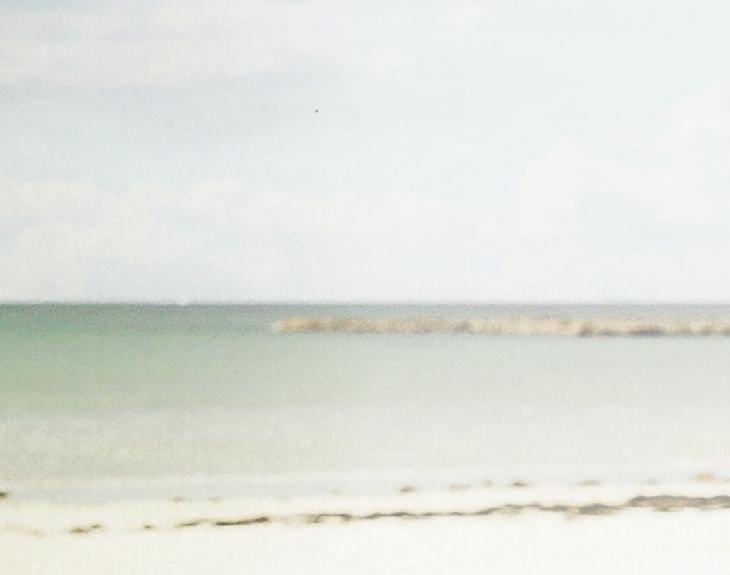


would villainise and force them underground? We can do better, surely?
I’ll end this on a personal note. My husband’s grandfather was gay – he and his partner lived through a time where their love was a criminal offence. In their memory, it was an honour to celebrate homosexual law reform in Midweek. And, in their memory, I want to keep speaking up for our Rainbow whānau – and to help create a more loving and accepting society for my son. As Angela put it, the Homosexual Law Reform Act, was “an illustration of our society at its very best”. We’ve got it in us, Wairarapa – let’s keep it going.


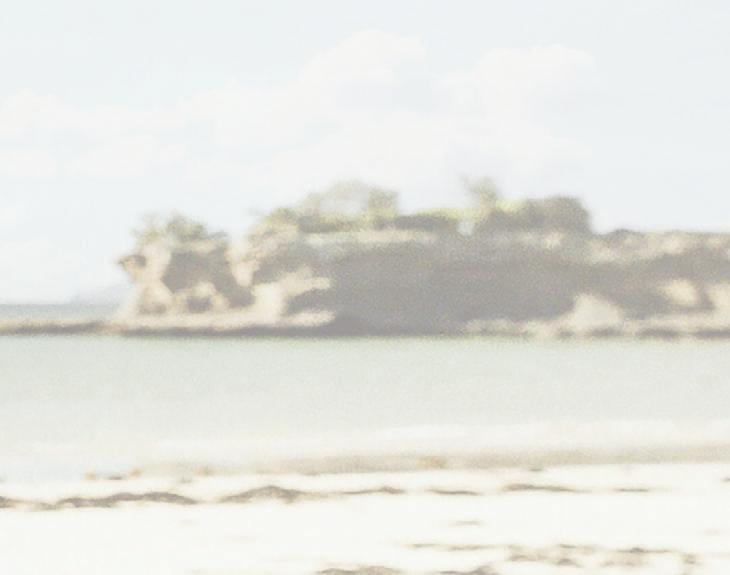



























Have you got a photo you want to share with Wairarapa?
Whether it’s a reader photo, a cutie, or a snap of you with your Midweek, email it to midweek@age.co.nz with ‘Midweek Photo’ in the subject line, and it could be featured in this segment.

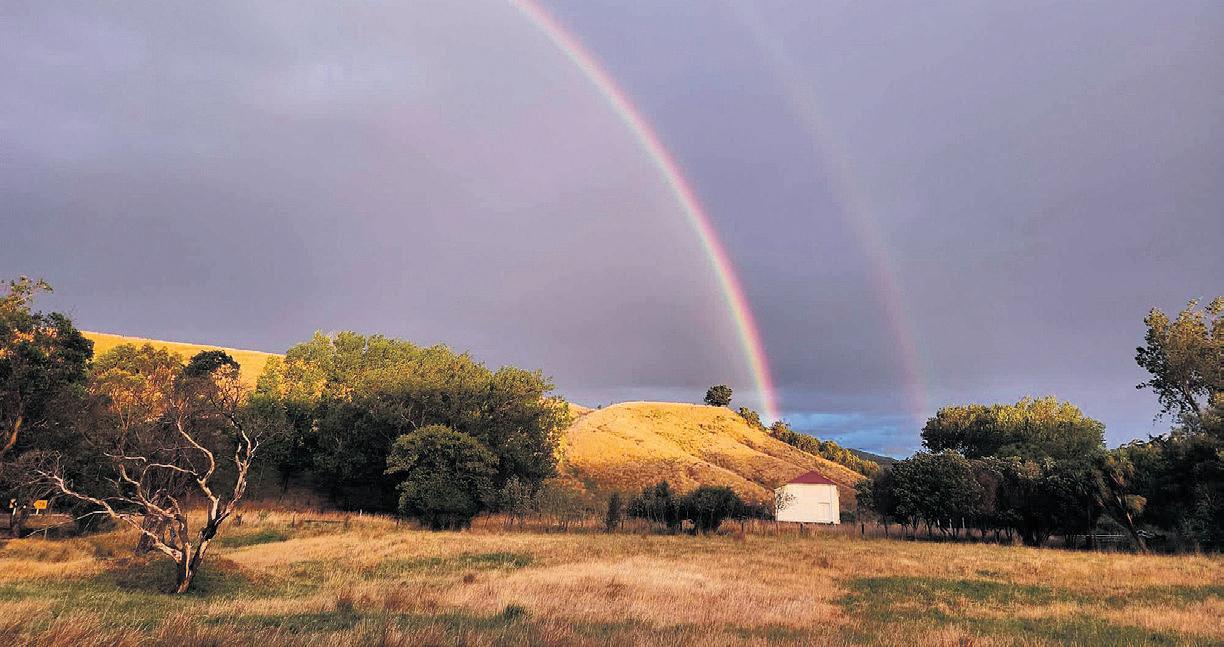
I guess I’m a banana then...
I must say I was rather taken aback at the letter from Nat Wilson (Midweek, February 28), criticising my column about spending a day with my father, 35 years after his death. Your correspondent makes me out to be a serial whinger. I have looked back through a number of my columns from the last nine years, and can find very little whinging. In fact, I make a point of keeping my fortnightly column light hearted, easy reading and with a feeble attempt at a bit of humour. A week does not go by that I don’t get stopped in the street or in a shop, or I get sent a message by complete strangers saying how much they enjoy my contribution to this great little paper.
This particular column that offended Nat Wilson is no exception, and only last week I was complimented on it.
I have reread what I wrote to find justification in Nat Wilson’s comments. The majority of the column, which was spread over two issues of Midweek, was to show my father the rate of progress over 35 years. How technology would completely baffle someone who had been dumped into the middle of it. The only “whinging” I can find in the column is my explanation to my ghostly father about the state of SH2 between Carterton and Masterton, and the heath system of this country, both of which have deteriorated since he died.
If Nat Wilson thinks both of these examples are in good nick, then I’m a banana. That’s not a whinge about bananas, by the way. It’s just another feeble attempt at a bit of humour. My apologies!
Graeme Burnard
Carterton
A tasteless offering
This letter to express my disbelief and disgust
at the juxtapositon in Midweek of postnatal depression as its theme and the gross and tasteless column from Graeme Burnard [Midweek, 28 February].
In any publication, I would have found it disconcerting – children’s so-called bloopers chosen for their sexual content. Milk machine, testicles, sexy bums and the last –for me – truly appalling offering followed by “bless”. Really?
Another reader wondered about his conversations with his poor dead father and Burnard’s revealing more of himself than he may have wished. Or than we wish.
In an issue, truly blessed with Erin’s wonderful editorial, his “comment” had no place.
I do not see that he has any humorous, positive or insightful contribution to make to Midweek, or any publication in fact.
Linda Sexton CartertonYou may share your opinion in print and online. To comment online, message our Facebook page and feel free to comment on any of the stories. Please email letters to midweek@age.co.nz or post to Wairarapa Midweek letters, P.O. Box 445, Masterton. Include name, address, and phone number. Noms de plume are not accepted. Letter writers’ town of origin will be published with the letter. Letters should be no more than 250 words, and may be edited for space and clarity.
A new exhibition from King Street Artworks [KSA] opened last weekend in Aratoi’s Wesley Wing, with works taken from its 2023 and 2024 programmes.
Showing both new and more experienced artists, the eclectic mix of work is full of joy and fun, reflecting their experiences at KSA.
KSA is a free, opendoor creative space supporting the mentalhealth and wellbeing of the community. For nearly 27 years, it has facilitated recovery and built resilience through inclusion, connection and creativity.
The exhibition showcases two stunning group works. “He
Whakapapa Ruruku O King Street Artworks/ King Street Artworks Band Together” was created after a workshop with Māori clay artist Stevei Houkāmau. She influenced the group to complete this combined piece in her style.
Ngā mihinui ki koe e hoa Stevei kia manaaka i a tatau mo e uku.
The second piece, titled “After Guernica”, had 10 artists working on an individual sections of the finished work.
“After Guernica” was born from a collective distress at war raging in the world today.
Pablo Picasso’s original Guernica was painted in 1937 as an anti-war statement, particularly
A long-time Masterton resident has celebrated a century “full of happiness and fun” –all about the simple pleasures.
Audrey Coventry celebrated her 100th birthday on February 20 with a lunchtime gathering at Arvida Lansdowne Park, attended by friends, family, residents and staff members.
Growing up on a farm in Waitōtara, South Taranaki, Audrey has happy childhood memories of delicious cooking from her mother, and seeing her father work hard on the farm. As a young woman, she was asked by the government at the time to move to Wellington to work in the telephone exchange during World War II. There, she got to meet American Marines and attend social dances.
“At that time, I met
highlighting the tragedy of the bombing of the Basque town of Guernica during the Spanish Civil War.
The sentiment discussed during the project was that mankind has learnt little since the brutal act of the Guernica bombing, and there are obvious and tragic parallels to be drawn with the bombing of the Palestinian people in Gaza.
Ian Chapman, manager and tutor at KSA, said, “Every artist will tell you how exciting and a little bit stressful it is to actually be able to show their work in a space like Aratoi.”
Aratoi director Sarah McClintock is proud to be able to secure a space



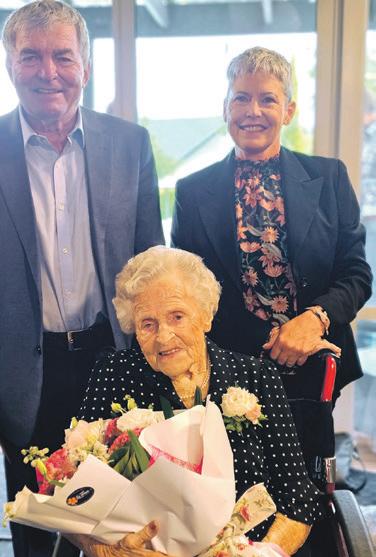
a handsome and good man named Fred. He had been at war and was working in the exchange once he returned home,” Audrey said.
“Fred and I married and we stayed in the Hutt Valley and had three children.”
The family transferred to Wairarapa for Fred’s job working for Shell
in the exhibition schedule for community works to be shown.
“Aratoi is a proud member of the Masterton arts community, and we are always inspired by the quality, passion and creativity evident in the work the artists at King Street Artworks produce. It is a pleasure to host this amazing exhibition and support the incredible work of King Street Artworks.”


• The King Street Artworks exhibition is showing until May 26.
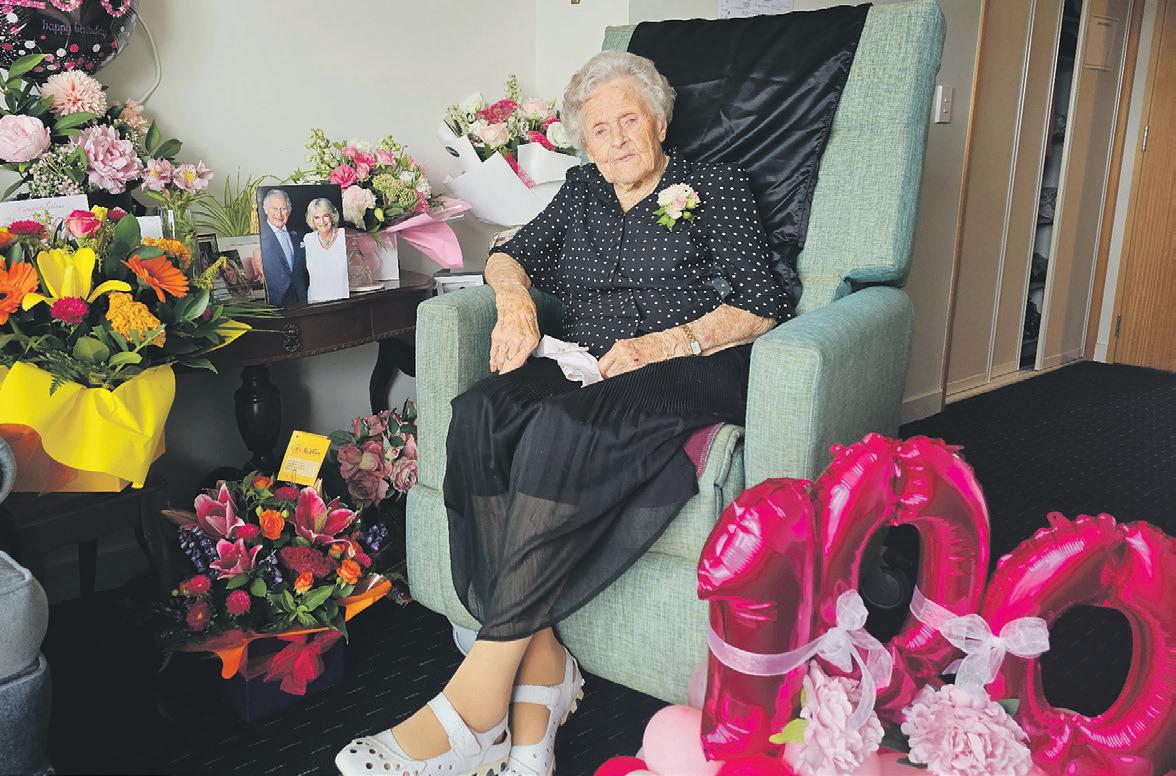
Oil, and the couple eventually retired in Masterton. Audrey is most proud of her family, which has continued to expand with eight grandchildren and fifteen great grandchildren, who she describes as “wonderful people”.
Janine Van Wijk, Arvida Lansdowne Park
village manager, said it’s now the simple pleasures that Audrey enjoys – like sitting in the sun with a cup of tea, looking at beautiful flowers, and chats with her fellow residents.
“Audrey is a wonderful member of our community and we’re so happy to be able to celebrate with her on
this special milestone,” she said.
As she received her 100th birthday card from King Charles, Audrey said her journey has been full of “happiness and fun”.
“I’ve had a wonderful life with lots of happy times and a very good family.”
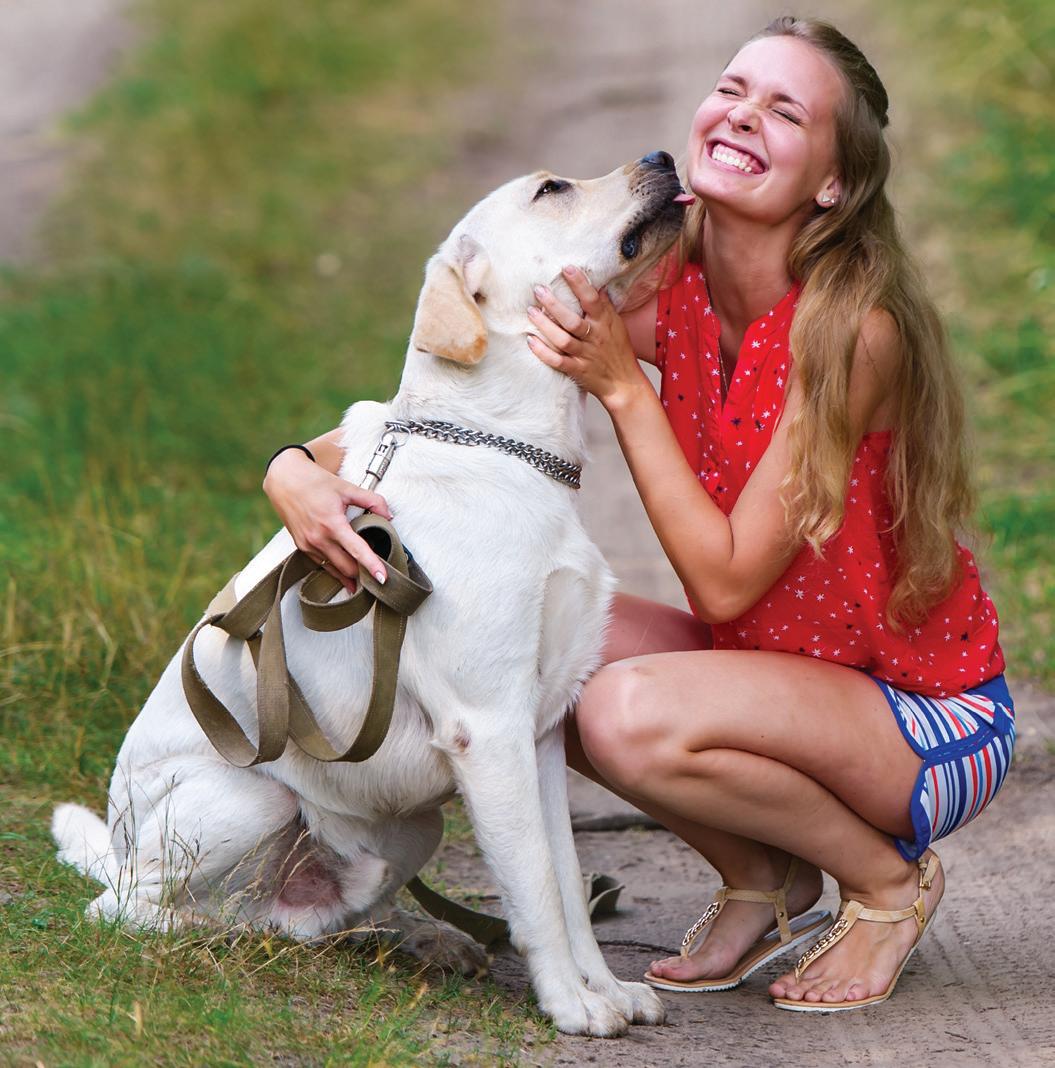

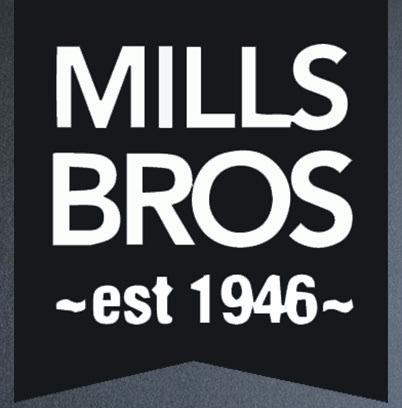







Adjustable bed bases have become quite popular recently and although previously associated with hospitals, modern adjustable beds blend seamlessly in home decor and can be helpful for a wide range of people. Whether you’re considering an adjustable bed to assist in health care or as a lifestyle choice an adjustable sleeping position can make a positive difference to many
your health and comfort.














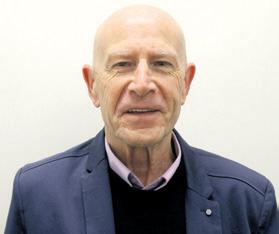
The best action this month is in the morning, with a spectacular planet show. Venus has been prominent in the eastern morning sky in late February, but in early March it is joined by Mars and Saturn.
Early in the month, Saturn is too near the sunrise horizon to spot, but is higher in the sky as the month proceeds. However, on Friday 8th, Venus and Mars are joined by an eyecatching thin crescent
moon. Look around 6.30am. The moon is nearer to Mars than the brilliant Venus.
Keeping the morning watch as the month continues, Venus starts to drop towards the horizon, while Saturn rises a little higher away from the horizon. By 22nd, Venus is almost swallowing Saturn. Of course, that is only line of sight. Giant Saturn is a far more distant relative to Venus, which is, relatively, a sun grazer.
Venus’s closeness to Earth is why it appears to have greater movement from day to day compared with Saturn. Saturn rises higher away from the horizon as the month goes on. That apparent motion has little to do with Saturn’s own orbital movement.
Earth moves along on its own orbit during those days such that the whole sky is displaced slightly from morning to morning. Together with all the constellations, Saturn rises later and later as the year goes on.
Meanwhile, as the month goes on, Venus seems to be dashing





towards the rising sun. What it is really doing is heading to disappear behind the sun some time in April.
Mars, on the other hand, seems to stay more or less the same height above the horizon the whole month. How come? Well, Mars is also heading to pass behind the sun, but Earth’s orbital motion is keeping it in sight. It would be easier to comprehend the motion of the planets from day to day if Earth wasn’t itself moving.
In all this early morning planet watching, take a moment to look
overhead at that time, where my favourite constellation, Scorpius, dominates the heavens.
But let’s not ignore the evening sky. At around 10pm the glorious Milky Way washes across overhead, when seen from a dark place.
For those of you south of Greytown, Wairarapa Moana is a good spot. If it is calm, the sky is reflected in the lake. Of course, that assumes there is a bit more water in it by mid-March – it has been extremely low in February. In any case, the sky is dominated overhead by the brightest stars in the sky. Enjoy.



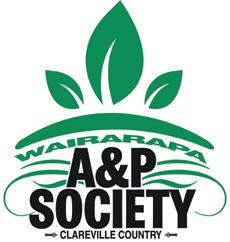
The Building Act (2004) requires any pool that can be filled with a minimum of 400mm of water – including temporary pools – to have a secure barrier preventing access to children under five years old.
Masterton District Council is carrying out pool inspections to ensure barriers meet the legal requirements.
Section 162D of the Building Act (2004) requires swimming pools to be inspected every three years by either the Council or an Independent Qualified Person (IQP) to ensure compliance.
Warranted Council O cers can enter properties to inspect pools under Section 222 of Building Act (2004). This inspection carries a fee of $165.
The elected members of the Council have agreed that the cost of pool barrier inspections should be targeted to those who own pools, not general ratepayers.
y The gate does not self-close or latch.
y The barrier has deteriorated and is no longer suitable.
y Objects are placed against the barrier, such as seats, planter boxes – i.e. anything that can be considered an aid to climb a fence.
y Temporary pools are purchased without consideration of fencing requirements.
For detailed information, see the Swimming Pool Fencing Guidelines on the Council website: www.mstn.govt.nz or scan the QR code below.
Warranted Council O cers are lawfully able to inspect pools without an appointment, however if you would like to book a specific day/time for your pool inspection or have any further queries, please phone 06 370 6300 or email: pools@mstn.govt.nz


To find out what is required for your pool, scan the QR code or visit the Council website and search ‘pools’.
2024 has seen another great intake of students into our Conservation Training programme, run in collaboration with UCOL and local iwi.

The course is facilitated at the idyllic location of Pūkaha National Wildlife Centre. The centre brings a blend of historic values around conservation with new and innovative methods of ecology, conservation, and biodiversity.
The course also provides a solid foundation of whakapapa and connection to the land.
Over this first term, our rangatahi have been learning about plant and animal identification, building their knowledge of native and pest species, and how to properly identify these species.
The two assessments are targeted towards a hands-on and practical approach, allowing students to explore the ngahere [forest] and locate first-hand accounts of animal and plant species. There is emphasis on the
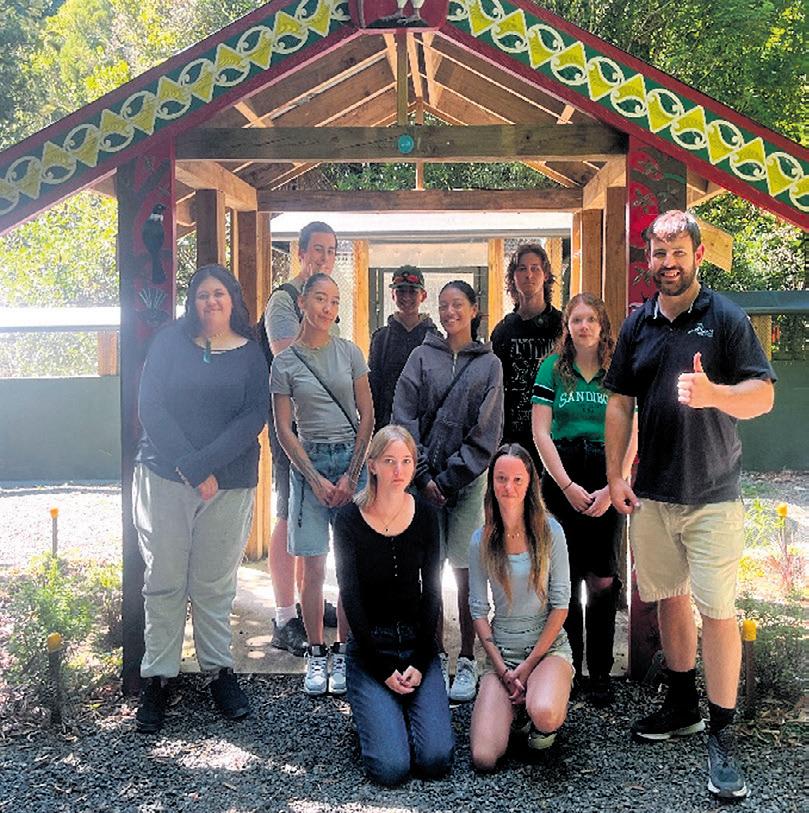
connection that varying species have within the area and their significance. Community engagement is a vital part of conservation, as it helps inform locals and community members on the need to push for better outcomes for our ngahere and whenua [land].
This assessment focuses on applying customer service skills in a conservation environment. For example, providing understanding of how to
engage with various age groups, defuse conflict, and apply techniques to accommodate a range of personalities, values, and beliefs.
The students will delve into the learnings of promoting positive communication and being mindful of well-being within conversation.
Trapping and monitoring are a huge factor in efficient pest control management, as they give our native species a chance
to increase population numbers.
Monitoring pests like rabbits, stoats and rats gives our rangatahi a better idea of where predator populations are high, and what is the best solution to eradicate these destructive pest populations. This assessment will educate our rangatahi with good trapping and monitoring habits.
The course material will teach students how to target various predator and pest species, identify pest and predator behaviour, and make an informed decision on the best trap and site selection.
The students will be forming discussions on issues such as humane trapping, health and safety, and navigation within the ngahere.
Rangatahi learn the importance of kaitiakitanga [guardianship] and matauranga Māori [Māori knowledge], becoming guardians and educators of the ngahere and whenua of Pūkaha. This will help them become better conservationists, and guide them to make more informed decisions for future plans and solutions for our taonga species,
awa [rivers], whenua and ngahere in the Wairarapa region.
There are many pathways in conservation and something for everyone to enjoy: Community engagement, management, pest control and more. Rangatahi have an opportunity to explore these pathways and find what they are most passionate about.
Te Kura Tapere provides our ākonga [students] with the necessary stepping stones into the conservation industry, opening a raft of career pathways.
As UCOL level three facilitator and rabbit control operations manager, I am extremely excited for this willing bunch of youthful learners.
As always, it is a pleasure to teach these students a raft of conservation skills. I look forward to what the future brings for the interest of the programme, especially with our new education centre, Te Whare Taiao o Manukura.
• The Wairarapa Midweek has partnered with conservation groups to put a spotlight on conservation efforts locally.



























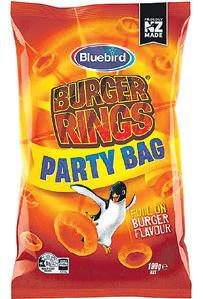







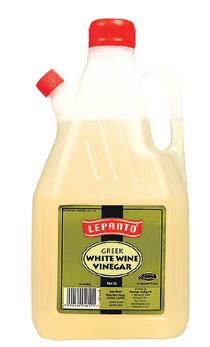





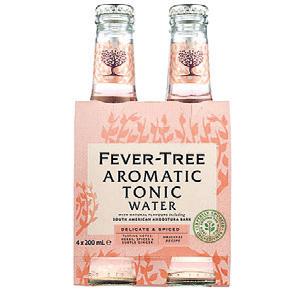



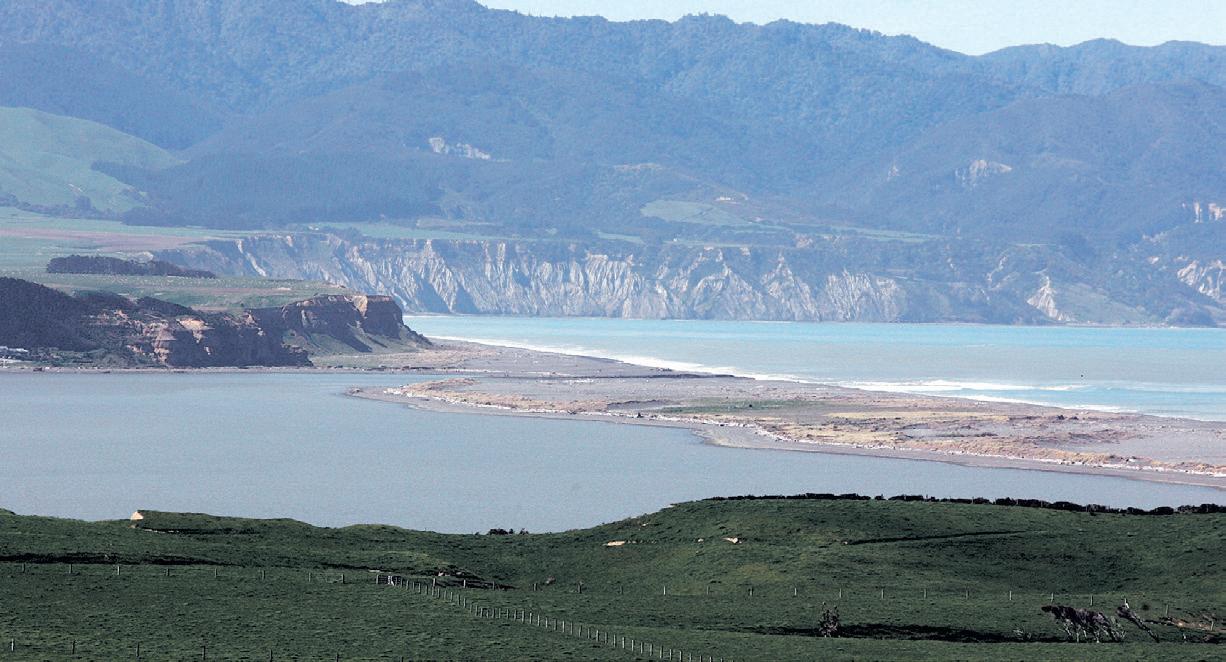

Captain Cook named it Palliser in honour his friend, but an explorer who came later gave it a less attering name. MARK PACEY of the Wairarapa Archive recalls the misadventures of d’Urville.
Cook. Enthralled, he decided he would like to follow in his wake.





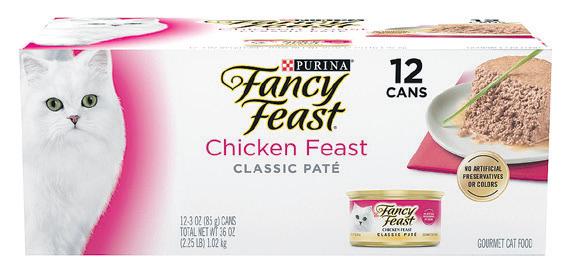

In February 1770, Captain Cook sailed near the southern coast of Wairarapa. Looking upon the rocky outcrop, he named it after his friend, Sir Hugh Palliser, with whom he had sailed on HMS Eagle. From this point on, it has become popularly known as Cape Palliser. It must be acknowledged that this is not the only name for this area. Centuries before Cook, explorer Kupe also arrived here. Unlike Cook, Kupe lived in this area of Wairarapa for a time. It was just up to the coast at Rangiwhakaoma [Castlepoint] that he had his fight with the wheke.
One of the stories tells of Kupe standing on the rocks and looking out when he saw Tapuae ō Uenuku across the sea. He named the rocks Mātakitaki and, in honour of this, the other official name for the area is Mātakitakia-kupe.
In January 1826, another explorer came to the area.
Jules Sébastien César Dumont d’Urville was born in France, 20 years after Cook came to Aotearoa. D’Urville was a keen academic and spent much time in libraries reading. Among the books he devoured were tomes on the voyages of
In 1822, he sailed on the Coquille and remained at sea for three years travelling throughout the Pacific, returning to France in 1825. He didn’t stay long and was soon off again back to the Pacific region. His was a scientific expedition, and he aimed to bring back as many examples of different plants and insects as he could. He also wanted to undertake an extensive survey of the coast of Aotearoa.
Setting out in 1826 on the Astrolabe, d’Urville would first sail by the coast of Australia before continuing to New Zealand, which he reached in January 1827. Starting with the South Island, d’Urville sailed up the east side of the island, mapping and collecting samples. He also picked up two Māori who joined him on board. After crossing Cook Strait, he found himself off the coast of Cape Palliser and decided he wanted to get closer.
“No sooner had we dropped anchor, than I embarked in the whaleboat with Messrs Quoy and Gilbert to investigate the character of the region, and I took Koki-Hore with me to introduce us to his compatriots as men on a peaceful mission. We
still had seven fathoms [42 feet] depth within half a cable [304 feet] from shore and four fathoms at less than 50 feet. But we had the disappointment of seeing that, everywhere, a terrific surf broke on the coast and deprived us of putting the boat in there. We hugged the coast for more than three miles without finding a single spot where it was possible to run ashore without the gravest danger”.
D’Urville paddled around for a while longer, even thinking about jumping into the surf and swimming shore, but thought the risk was too high and that he might not be able to get back. He was also worried that Māori might try to follow him back to his whaleboat, and noted that his ship was now too far away to offer any help should things turn ugly. He sailed from Wairarapa and continued his New Zealand voyage. The French explorer’s experience in Wairarapa was not one that he would hold in high regard. He wasn’t impressed by this inhospitable piece of coast and, despite having been named Cape Palliser by Cook, d’Urville offered his own name for the area by Cape Palliser after his experiences here: La Baie Inutile – Useless Bay.
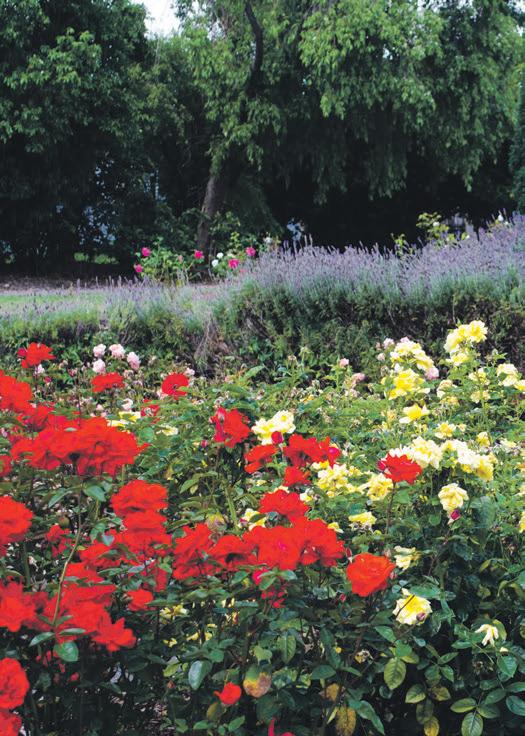
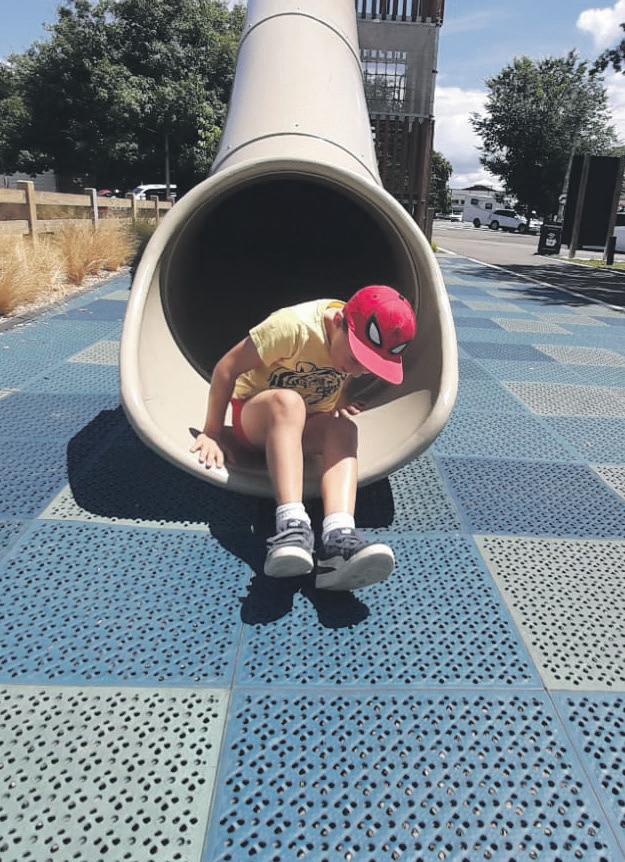
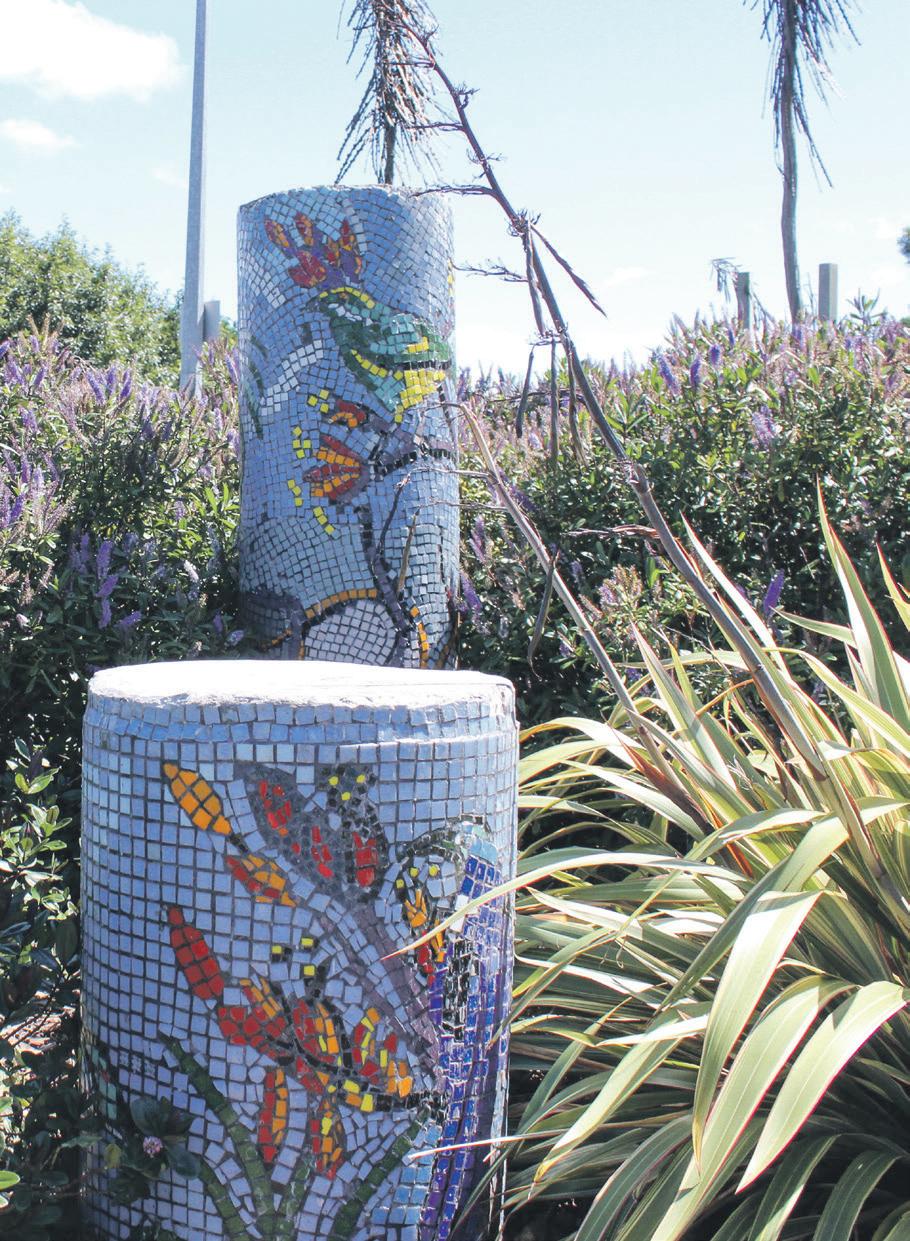
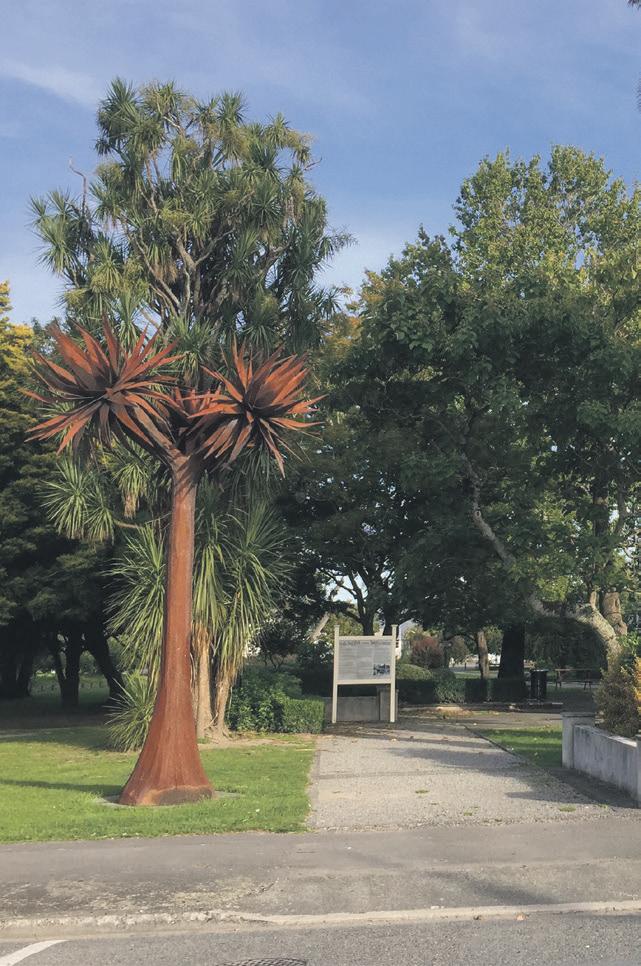
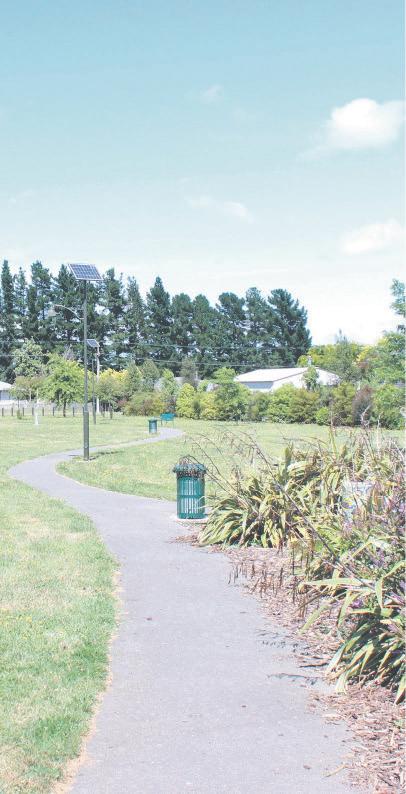

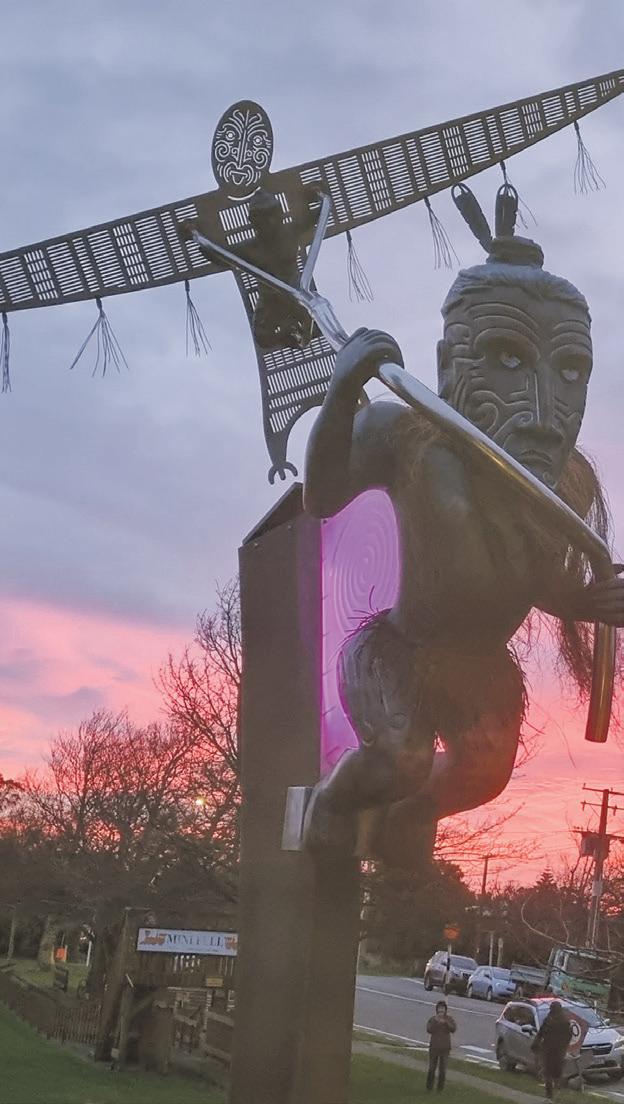
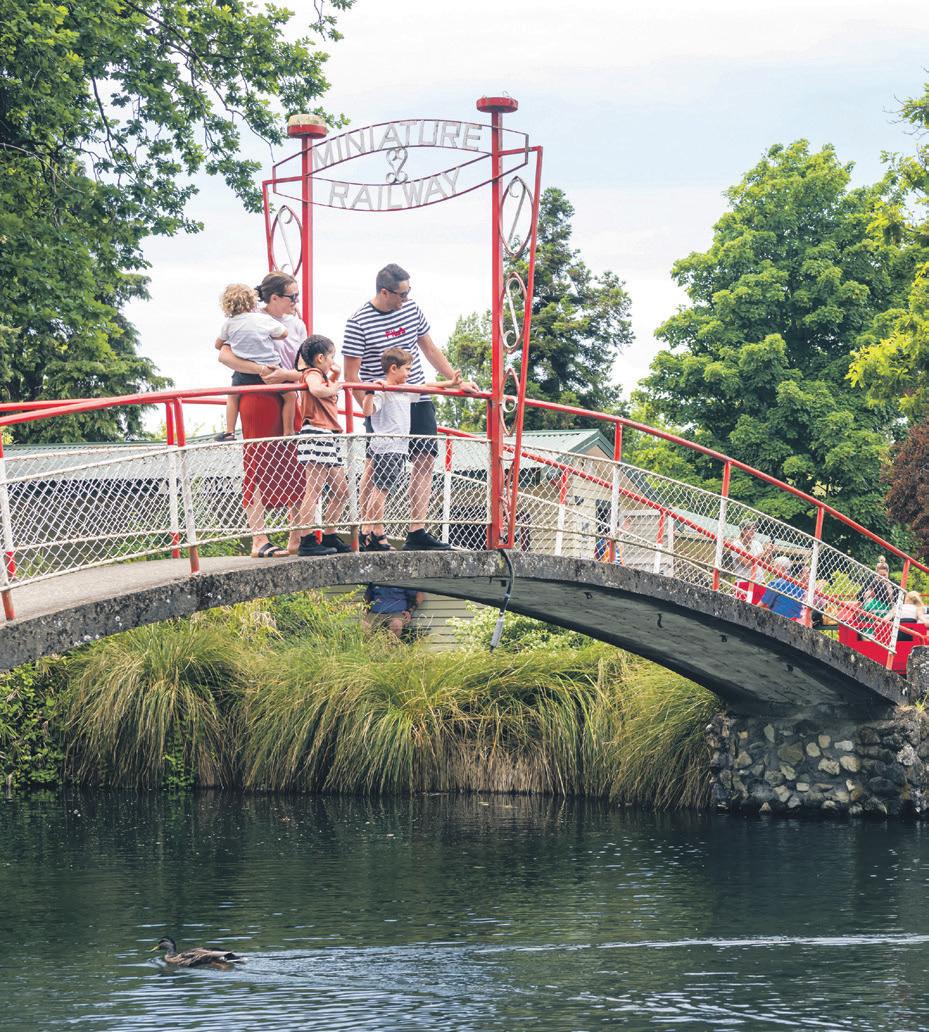

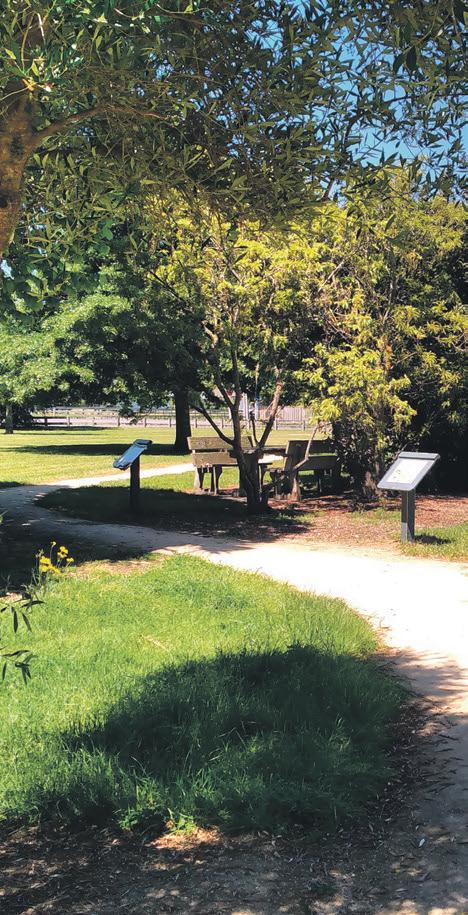
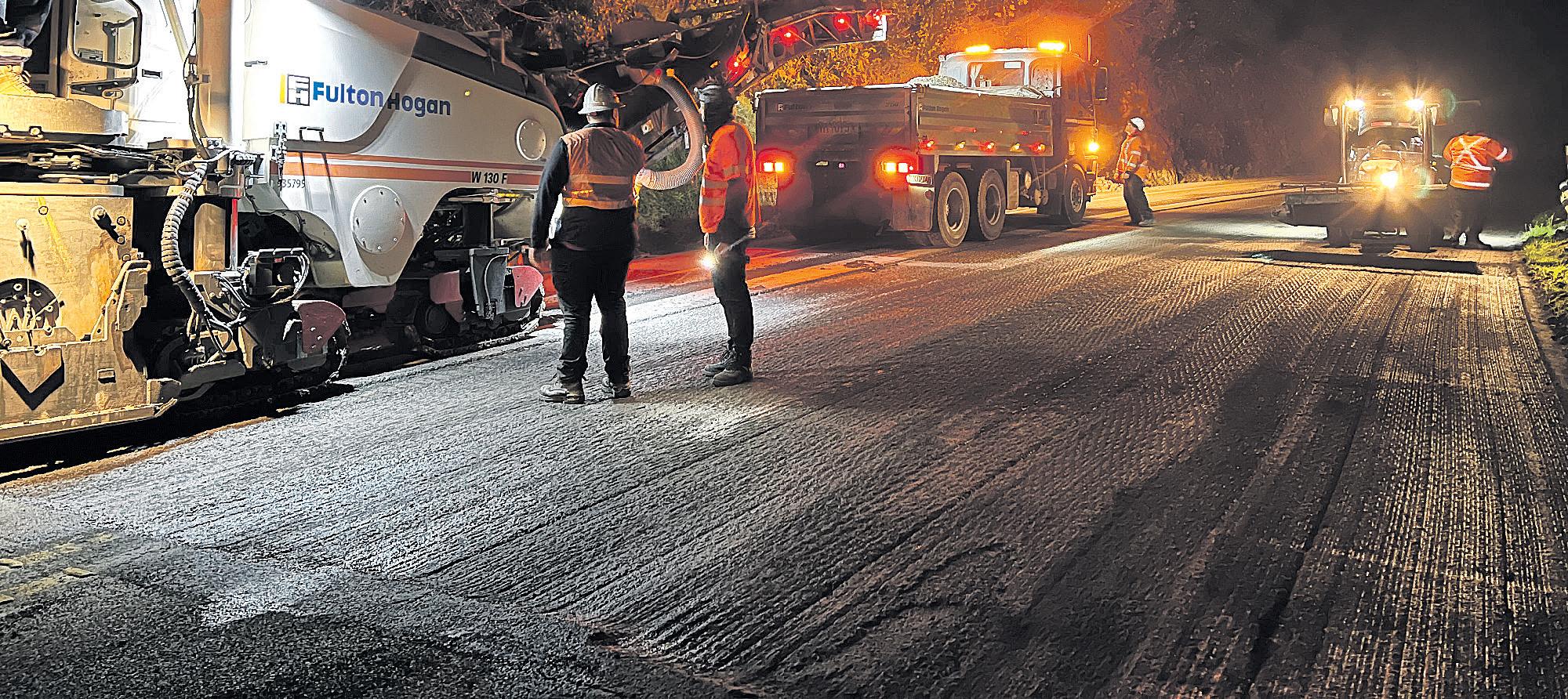
State Highway 2
Remutaka Hill will be closed for 10 nights this month as part of a new NZTA Waka Kotahi road safety improvement and maintenance project – that will involve 30 overnight closures before its scheduled finish on June 21.
New side barriers and motorcycle underbarriers will be installed from the twin bridges on the Featherston side of the hill to Marchant Rd, Kaitoke. Road signs and markings on the hill will also be improved and upgraded.
According to NZTA regional manager Mark Owen, Remutaka Hill is one of the highest risk sections of highway in
New Zealand, with 382 crashes on the route from 2014 to 2023.
Five of these involved deaths and 29 resulted in serious injuries.
Because “over 60 per cent of those who were killed or seriously injured were motorcyclists”, Owen said that motorcyclist safety is a major focus of the improvement project: With 2.6km of new barrier with motorcycle under-run being added to the route’s existing 5.8km of underrun barrier.
“Under-barriers are a proven protection system that reduces the rate of deaths and serious injuries for motorcycle crashes,” Owen said.
“People make mistakes, and safety improvements like better barriers mean that when a mistake or

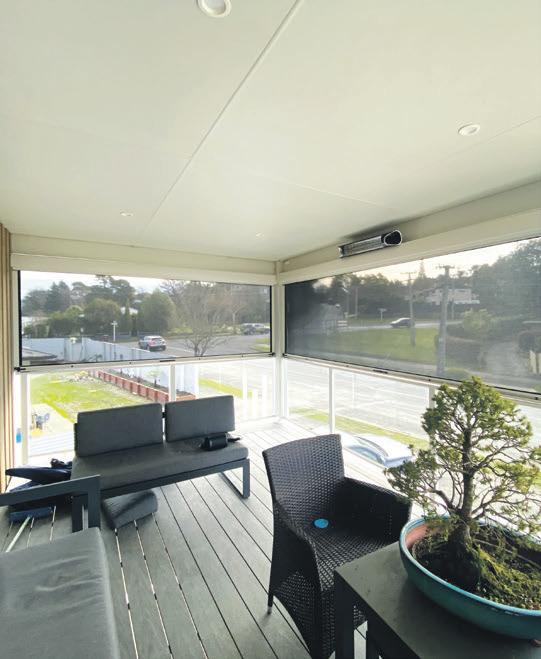


crash occurs, there’s less chance of people being killed or seriously injured.”
As well as the human toll, crashes often cause SH2 Remutaka Hill to be closed to traffic during clean-ups and investigations. This can cause significant disruption to motorists, given that the only other available route is via Horowhenua/ Kāpiti, representing an approximately threehour detour.
“This is a busy stretch of highway with over 7000 vehicles, on average, travelling over the hill each day,” Owen said.
“If we reduce the number of serious crashes, we cut the number of times the highway has to be closed to manage them.”
Over the summer period [December 1, 2023, to February 2024] there were 14 crashes on the route, two of which resulted in the road being closed for a combined total of four hours.
Minimising disruption is also a key reason for NZTA electing to undertake the project at night, and do routine maintenance – including road resurfacing, clearing slips and rockfall, repairing potholes, and renewing line markings –at the same time.
Up to four years ago, NZTA did such maintenance work during the day, resulting in “around 300 stop/ go road works carried out on the hill yearly, which meant drivers encountered road work delays almost daily”, Owen said.
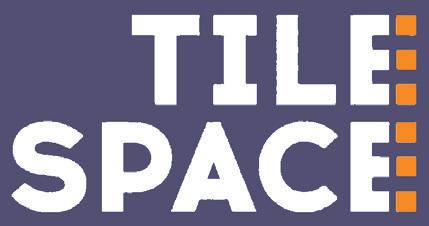
Although more than 7000 vehicles use Remutaka Hill every day, “on average, just over 300 use the route at night. Night-time closures are, overall, far less disruptive for drivers. Also, they let our work crews deliver high-quality work much faster”, Owen said.
The overnight closures of SH2 Remutaka Hill next month will run from March 10-15 and 17-22, with the route closed from 9pm until 4am on each of these dates.
Escorted crossings for light vehicles will be available during these closure nights, but it’s essential these are booked in advance through the NZTA website [nzta.govt.nz –search for “Remutaka Hill Closure – Escort Booking Form”].





Queen



10AM
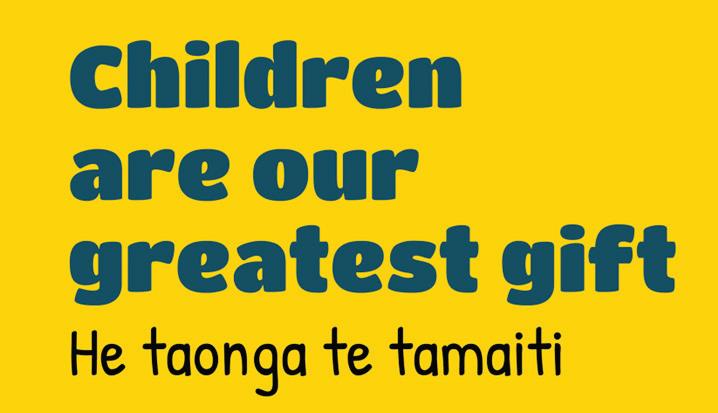
IN
Geo-Cache Treasure Hunt
10:30AM
12:30
Teddy







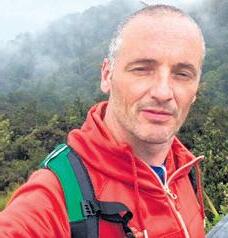
I have been told about a challenging issue a person is facing. It was quite upsetting to hear, as the person is under considerable pressure through no fault of their own.

I was sharing their predicament with another person today when I realised, almost immediately, I had the power to fix the situation. The problem was I had only been thinking about what the other person could do, and not what I could do for them.
This sudden realisation was incredibly uplifting. I can make a significant difference to support someone I respect, and I believe I will be getting just as much satisfaction as they will be.
My support will be given without the other person knowing who has done it [they won’t even consider me as an



option], but that won’t matter. I’ll know about it, they will benefit, and will, I am quite sure, pay it forward in some capacity.
The ability to help others is just so empowering: It can be as small or as big as you like or are able to, but it will make a difference in the most positive way to every party involved.
There are things we can agree with I shared an article I really enjoyed with a group of people today. I agreed with the focus of the article and thought others would as well, perhaps also finding it useful and reaffirming.
I also knew some would find aspects of it controversial.
I wasn’t surprised to get one piece of feedback from a person I greatly admire – who strongly disagreed with pretty much everything
shared in the article. She raised some relevant points, none of which I disagreed with. I replied acknowledging her points, but also reiterating my belief the article was on point.
What I would like to think is we could all learn to see that even those we don’t agree with in one sphere can still contribute worthy ideas – perhaps even ideas we can take on board in our own lives.
If we can learn to see the positives in others we may disagree with – in politics, for example – then perhaps we’ll become better at working together, and create communities that are harmonious and generally better places to be.
Easier said than done I just heard a discussion between Joe Rogan and Dr Phil around the saying “easier said than done”. Essentially, the discussion was agreeing with the saying, as things really are easier said than done. However, this doesn’t mean something shouldn’t be












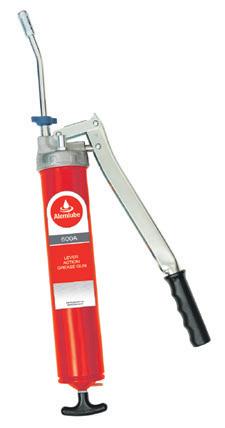













done because it’s hard – it simply means some things really do require hard work if you want to be successful at doing them.
Life really can be quite hard. We constantly face challenges and obstacles. From my experience, pretty much everything I am most proud of is the result of the hard work I have put in: As a school principal, as a parent, and the progress in my health and fitness. To be successful in any of these areas really has required a lot of hard work – it really has been “easier said than done”.
Friends
Last week, I caught up with a group of people.
One is a friend I see regularly, another a friend I haven’t seen for some time, and the third was a person I hadn’t met before. We sat around talking, having a meal and drinks. The evening was very enjoyable and I’m looking forward to another one with the same group of people.
Occasions like this are so important. They





give us an opportunity to share ideas, laugh, gently rib, and support each other. Most of the discussion is light and good natured, but there are also moments to share vulnerabilities and worries that we may have. We know that anyone in the group needing support will get it from us – so we should also know the support will be there for us when we need it.
Cultivating friendships is so important. In doing so we may need to take the lead, but the benefits make doing so extremely worthwhile.
Fully engage This comes after a previous post about being present – this time using the phrase “fully engage”. I’ll give an example of how doing so considerably improved an experience.
I attended a philosophy class last week. At the very beginning, I received a notification through my watch. I briefly left the room to reply, then was distracted while I waited to get a message back.
It came, but I waited until the break to read it, being distracted while thinking about the reply.
I also received two alarm notifications during the first half of the session, which caused me to repeatedly look at my watch and lose track of the discussion taking place in class.
As the break started, I made a conscious decision to engage from that point onwards – starting with the discussion I had with two wonderful people, and then in the second half of the session.
The result was quite transformative. Making the effort to engage led to a much more satisfying experience, helping me to appreciate the contributions of others, while [hopefully] contributing in a more meaningful way myself.
Whatever you call it, either being present or fully engaged, being this way leads to far richer experiences.
Be present
The idea of “being present” is something that is getting a little harder, most likely due to the constant distractions we encounter.
Anecdotally, my feeling is that we are becoming more distracted and less able to concentrate or “be present” in the moment.
In relation to reading, for example, it’s easy to read pages of a book without taking any of the content in. Yes, you’ve read it, but you can’t recall any aspect of what you have read.
My feeling is that we need to deliberately train ourselves to be present. Watching Alex Honnold climb, it’s easy to see how he has done this. There is absolutely no room for error, so he is present and focused on every moment of the experience. The same could apply to us –probably not by climbing El Capitan, but instead by choosing a task requiring focus and then to set about doing it for a period of time.
Being present is something we are all
capable of doing but, like most things of value, we need to work at it. Start slowly with small steps, grow over time, and eventually you’ll be living and enjoying life a lot more in the moment.
Night-before prep
A habit I have had for many years has been to prepare a to-do list each evening for the tasks I need to complete the next day. The system I use for this is bullet journaling, which is essentially an analogue system for keeping organised. Using this approach effectively clears my mind of worry, as I know what needs to be done and I never have the feeling in the back of my mind regarding some forgotten task.
• Tim Nelson is principal of Lakeview School and author of the book Small Steps for a Happy and Purposeful Life. He endeavours to learn something new every day by reading books, listening to podcasts, and engaging with a wide range of other content.













































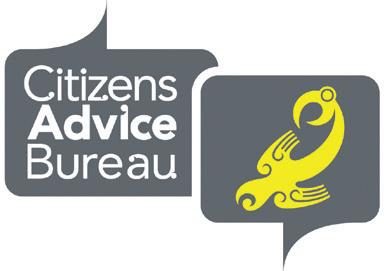
I picked up some pamphlets at Wairarapa Hospital – there were a considerable number of them on the brochure rack in the blood testing area. I have picked out a few which may be of interest to our readers.
I know this sort of information, a bit like looking up symptoms on Google, can worry some people. Please don’t read this and feel that because you have a couple of the symptoms mentioned you have a serious problem.
The brochures are an “information” message only, and an appointment with your doctor is your best way of allaying any fears you may have.
Are you a survivor of polio?
An increasing number of people who had polio are developing a new range of symptoms years after originally contracting the condition. These new symptoms can be debilitating but can be reduced if accurately assessed and well managed. Symptoms vary widely in range and severity with each polio survivor having a unique set. However, common symptoms include:
chronic fatigue;
muscle and/or joint pain
muscle weakness and deterioration;
muscle spasms;
sleep problems;
swallowing and speech difficulties; and
intolerance to heat and cold.
You know your own body and are the expert in your own life. Speak to your doctor and, if it is
considered you may be experiencing problems, the next step is to be fully assessed by health professionals who have been trained in the late effects of polio. There is no cure for the condition but there are treatments that can ease the symptoms.
The Duncan Foundation, a national support service, provides specialist clinics for the condition. The service has a long history of supporting survivors of polio to live to their maximum physical potential.
Polio NZ Inc is funded by the Duncan Foundation, and you can receive an initial assessment and possible follow-up session with a qualified physiotherapist. For further information, go to www.polio.org.nz, call 0800 476 546, or email secretary@polio.org.nz.
Pancreatic cancer –know the risks and signs
The causes of the majority of pancreatic cancers is unknown, but research has identified the following risk factors that may increase the likelihood of developing pancreatic cancer.
Age – risk increases with age, most people diagnosed with pancreatic cancer are over 60.
Smoking – people who smoke are twice as likely to develop pancreatic cancer than those who have never smoked.
Family history – those who have two or more first degree relatives who have had the condition may have an increased risk.
Obesity – global research suggests obesity increased the risk of developing pancreatic cancer by 20 per cent.
Diabetes – it is more likely to occur in people who have long-standing

diabetes [more than five years]. New onset diabetes in people aged 50 and over can also be a symptom.
Alcohol – some studies have shown a link between heavy alcohol use and pancreatic cancer.
It is recommended you talk to your doctor if some of these risk factors apply to you, and you have any of the following symptoms: Indigestion, abdominal pain or back pain, unexplained weight loss, nausea, loss of appetite, new onset or changes to diabetes, changes in bowel habit, fatigue, or yellowing eyes or skin.
Having trouble sleeping?
Nearly everyone has trouble getting to sleep from time to time – but, for some people this can be a regular ongoing problem. Not only can it make you feel tired, but it can really affect your day-to-day functioning and health. Sleep problems can include:
Insomnia – you have trouble going to sleep or staying asleep for long enough.
Obstructive sleep apnoea – you stop breathing while you’re asleep.
Snoring – you make a snorting or rattling noise when you breathe during sleep.
Sleep deprivation – you don’t get enough sleep or enough good quality sleep, or you sleep at the wrong time.
Restless legs syndrome –you have a really strong urge to move your legs overnight.
Adults need seven to nine hours of sleep a night. You may have a sleep problem if you:
Have trouble getting to sleep;
Wake during the night and find it hard to go back to sleep;









Wake too early;
Don’t feel refreshed when you wake;
Have a morning headache;
Sleep at the wrong time;
Feel sleepy during the day;
Feel irritable; or
Have poor concentration.
Learning how to manage sleep problems can greatly improve your life. Some sleep tips are:
Set your body clock – go to bed and get up at the same time each day, including weekends.
Get up if you can’t sleep – if you can’t sleep after 20 minutes, get up and do something boring but not screen-based. When you feel tired, try again. Don’t lie in bed getting frustrated.
Wind down at bedtime – have an hour of quiet time before bed. Read, have a bath, or listen to music.
Reduce blue light exposure in the evening – it disrupts your body clock, causing poor sleep. Don’t use you phone or computer in the evening or, if you need to, switch devices to night-time setting.
Avoid stimulants –within two to three hours of bedtime don’t smoke, drink alcohol or caffeinated drinks, eat a heavy meal, or do energetic exercise.
Make your bedroom suitable for sleeping –keep it cool, dark, and quiet.
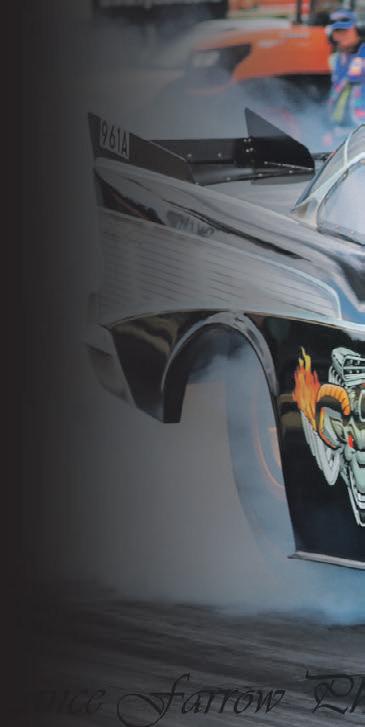


Be active during the day – take regular daytime exercise and get outside early to help set your body clock for a good night’s sleep.


sleep programme. Visit hn.org.nz/sleepapps for reviews.
Your doctor can help you work out what’s causing your sleep problem and which treatments are best for you.
We at Citizens Advice Bureau want you to be well and happy. The above information comes from practising health professionals, and we can help put you in contact with them if you require more information.
Remember: Our advice is free and confidential, and we have excellent resources on hand we can refer to.
The pamphlets are from:
Polio – www.polio.org. nz;
Pancreatic cancer –www.gutcancer.org.nz; and
Sleeping problems –www.healthnavigator. org.nz.
ATTENTION
–
All former CAB volunteers who have not yet received an invitation to our 50th anniversary celebration please telephone (06) 377 0078 with your details – we would like to send you an invitation. There are some exvolunteers we are having trouble tracking down. We would love to see you at our celebration.
Avoid naps – don’t sleep during the day, but make your regular bedtime earlier in the evening.
06
Use a sleep app or online





Carterton District Council welcomes the new rail safety measures KiwiRail and Greater Wellington Regional Council [GWRC] have confirmed, as part of their ongoing commitment to upgrade the Wairarapa Line Service.
KiwiRail and GWRC have announced the findings of their report into Wairarapa rail crossings after last year’s announcement over potential crossing closures on the Wairarapa Line.
crossings as part of its work to prepare a more frequent and faster commuter service from Masterton to Wellington.
It proposed 23 level crossings with flashing warning lights, bells, and barrier arms, and closing seven level crossings. This included several crossings in Carterton.
community.
Among the findings, the report recommends closing five level crossings across Wairarapa and upgrading 25 more.
The closures would include Rhodes St and Victoria St in Carterton.
working from south to north, with a targeted completion date of midto-late March 2026.
Closing the Rhodes and Victoria St vehicle crossings will still mean continued pedestrian access across the tracks.
The Pembroke St level crossing, which was of notable concern to emergency services and the community, would remain open.
In May 2023, KiwiRail undertook individual assessments of each of the 30
After meetings last year, KiwiRail engaged consulting engineers and rail specialists Aurecon and JMDR to carry out an independent assessment that considers safety and the broader implications to the road network and
Brooklyn, Pembroke, and Kent Streets will all remain open, with lights and barriers upgraded or installed across the Carterton district.
KiwiRail plans to adopt the report recommendations and begin work on the Wairarapa Line level crossing work programme next month. The KiwiRail project team will be
Carterton Mayor Ron Mark said the council and the community have worked hard in negotiations with KiwiRail “to achieve a better outcome than we anticipated when the project was first announced”.
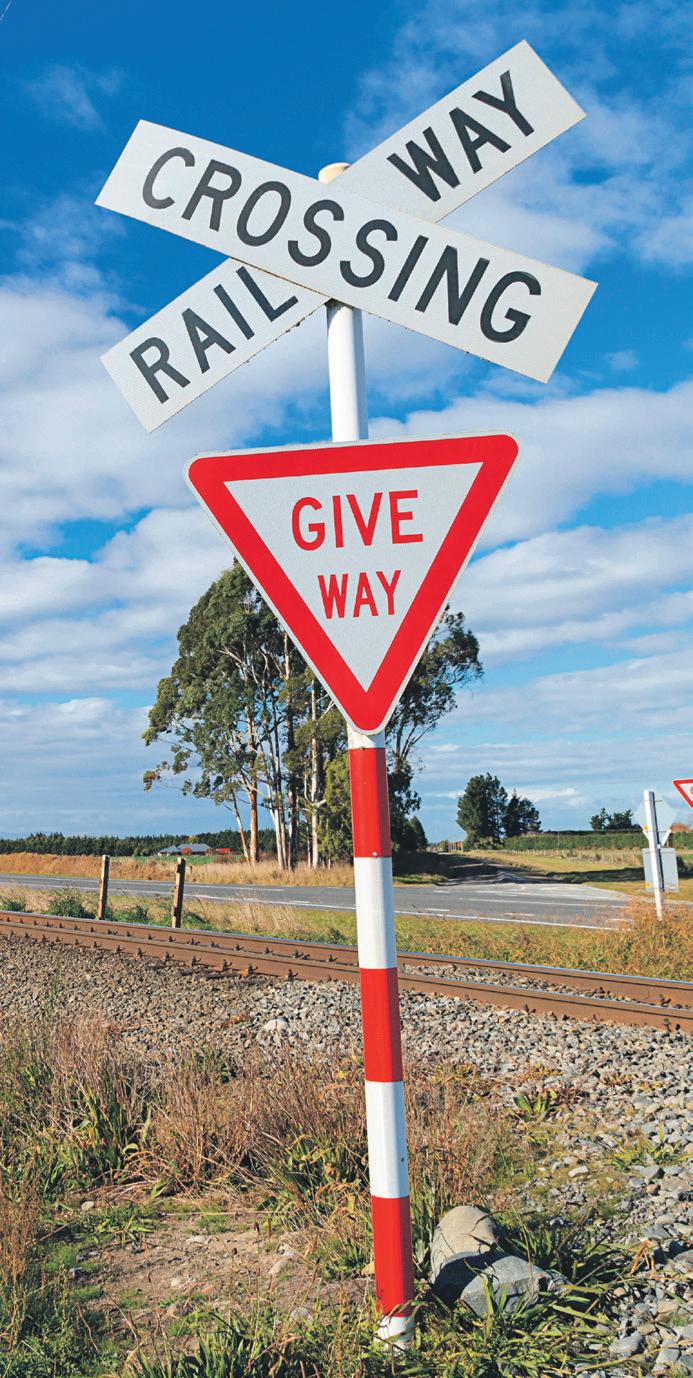

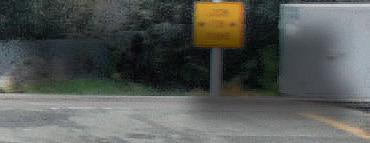
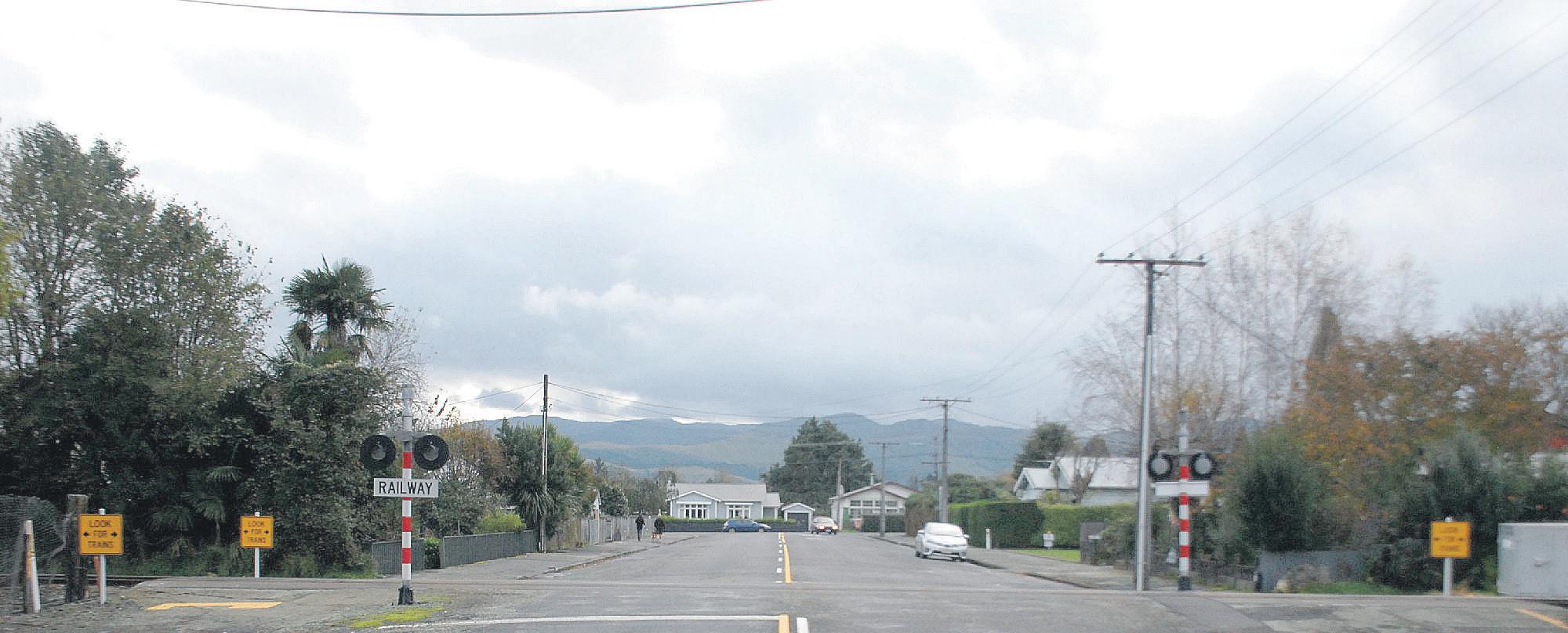




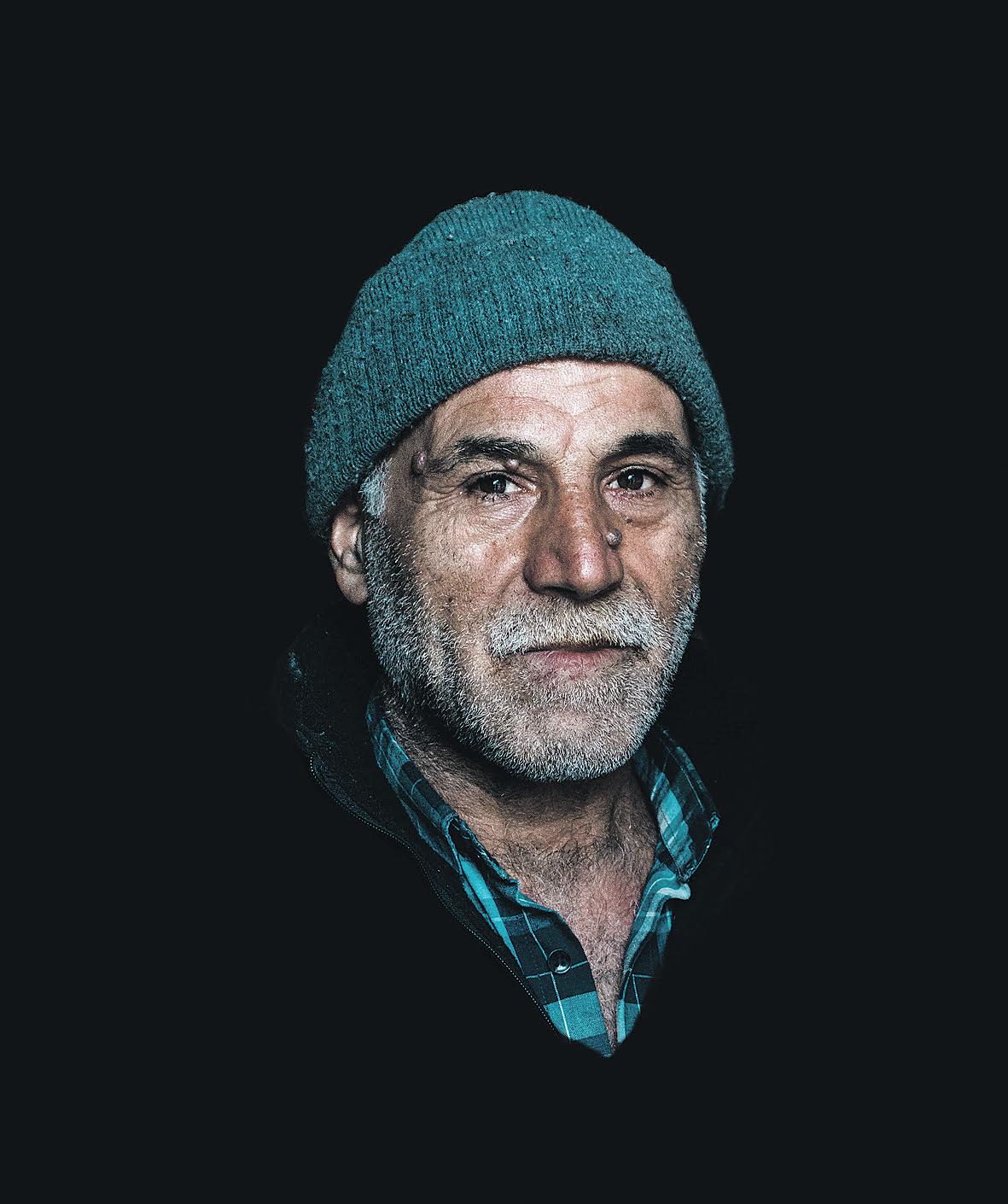

The
with the success of their free, family-friendly festival that was held in McJorrow Park on February 24. Organisers supplied Midweek with photos taken by members of the community – capturing the live entertainment, games, food stalls, and competitions.

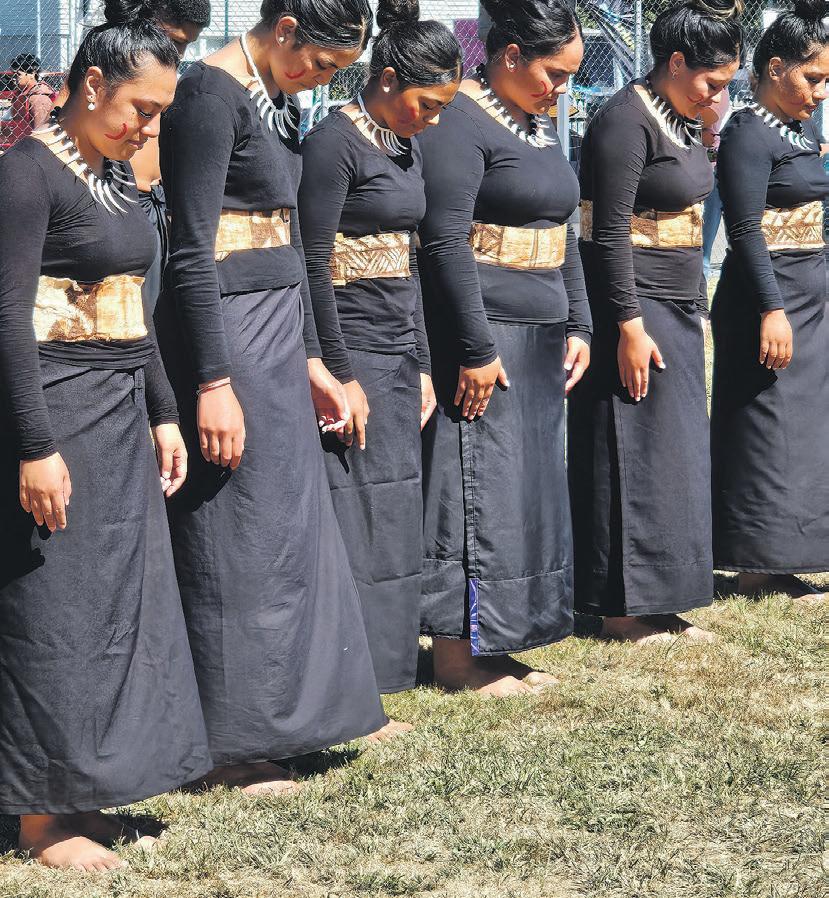
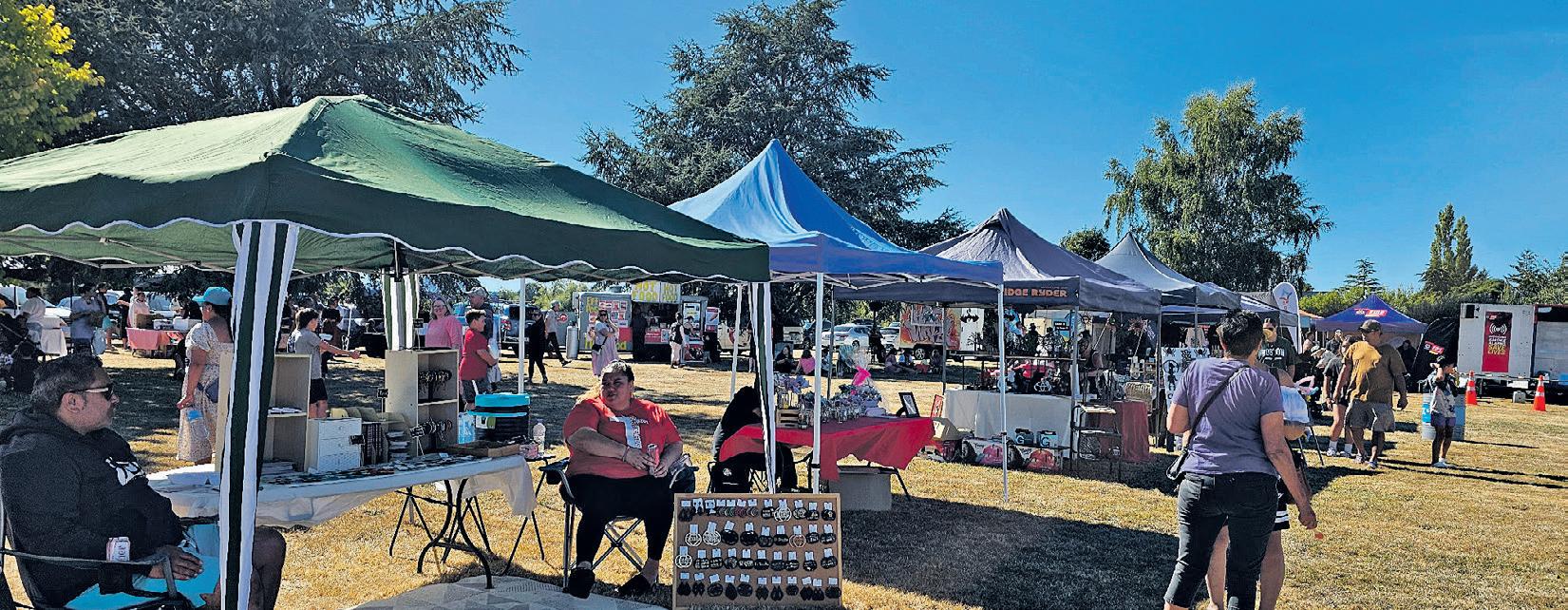

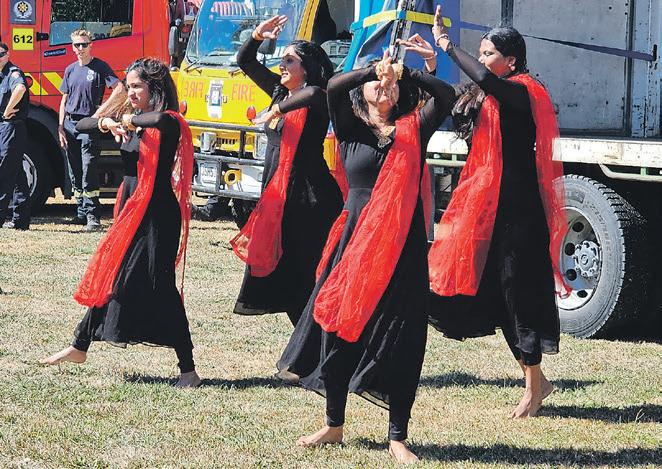

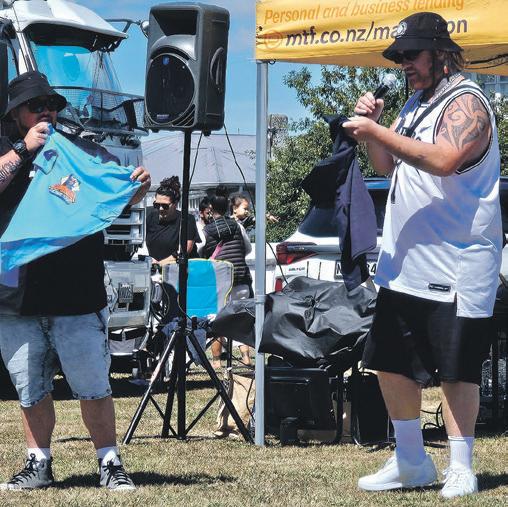


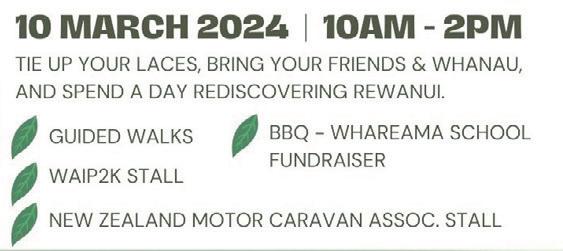
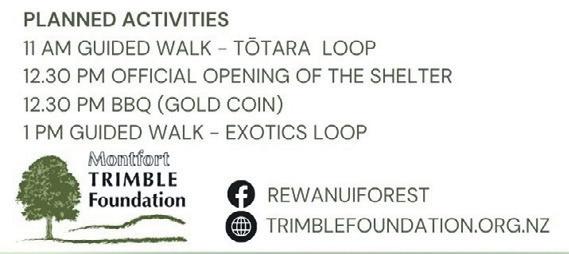
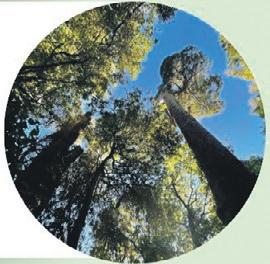


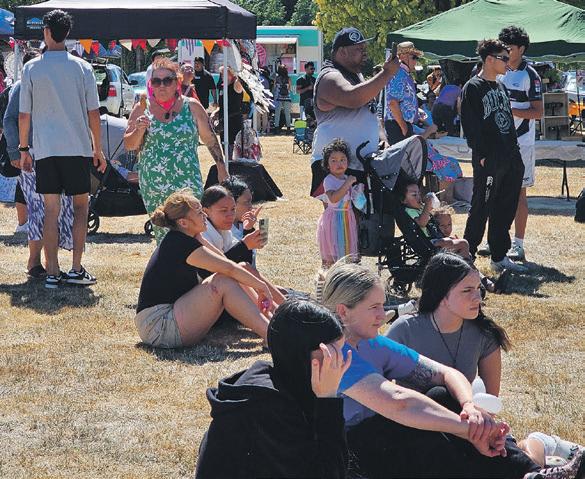



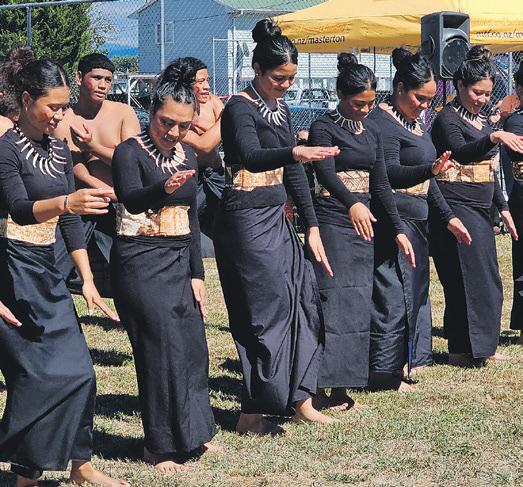




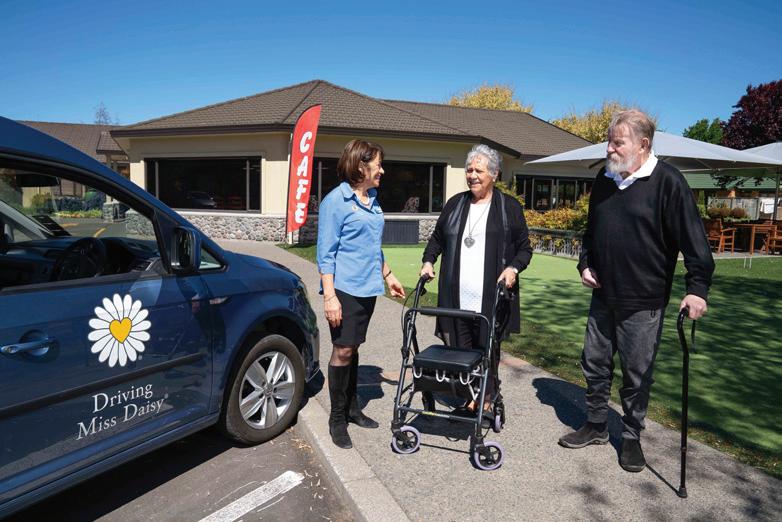
A predator control initiative at Castlepoint appears to already be having a positive effect, with anecdotal accounts of an increase in birdlife in the area – including welcome appearances by blue penguins.
Castlepoint Ratepayers and Residents’ Association member Philip Sutherland said before an agreement was signed with the Department of Conservation [DOC] last October, there was no predator control in the area.
DOC aims to facilitate to increase all bird numbers and native wildlife at Castlepoint, and has observed a high number of quail returning to the area since beginning a trapping programme.
Each trap is mapped on the trap.nz website, whether it’s set on public or private property, to measure the work being done.
Helen Welch, who lives on the Castlepoint beachfront, said residents have noticed a big increase this year of birdsong, something she attributes to “a fantastic combination of work” by DOC.
“Wildlife is thriving out
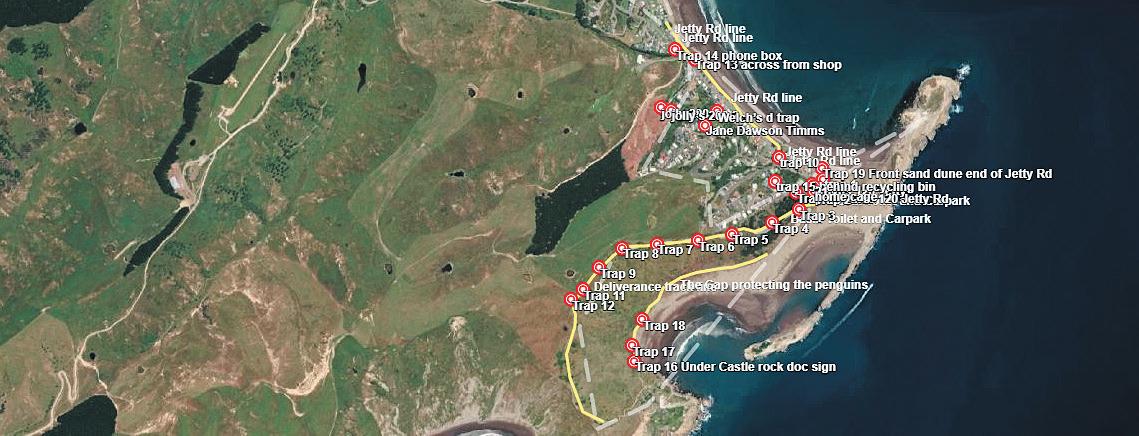
there, and the bird wildlife is actually increasing,” she said. She hoped that includes the “blue penguin colony living in the rocks at Castlepoint”.
“Previously, the penguins that were looking to breed would get hammered by stoats”, Sutherland said.
Castlepoint resident Kim Aperloo said she was shocked to see two little blue penguins swimming in the channel between the lagoon and the sea, before they waddled to the beach.
“I was really excited and squealed. I think the penguins heard me and ran very quickly
under the rocks,” she said.
Welch is a big fan of the aquatic birds and has had several encounters with them over the years, including a blue penguin that would hop on her husband’s board when he went surfing near the lighthouse.
But she’s also seen a few dead penguins in the past
years, including one near the camping grounds on the beach – with no visible signs of damage – just three weeks ago.
However, it’s uncertain how the blue penguins –which breed from August to March, and usually come ashore at dusk and depart at dawn – are faring.

in Wairarapa this summer where starvation was the likely cause of death, but not in unusually high numbers.
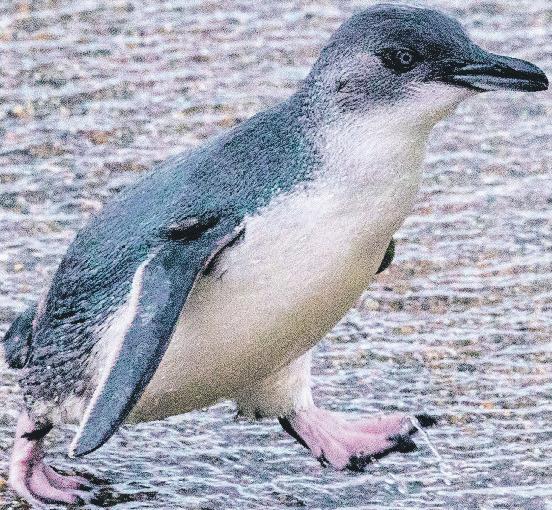
DOC doesn’t hold any monitoring data for the little penguin [or kororā] at Castlepoint, senior biodiversity ranger Paul Gasson said.
“In general, numbers are only stable or increasing at sites where predators are controlled or absent.
“Little penguins can also be locally impacted by [food] shortages. We have received several reports of dead penguins
“Little penguins at Castlepoint may be benefiting from community-led predator trapping and habitat restoration, but the local population appears to be sparse. And this means that recovery would be slow even if all the threats were alleviated.”
DOC advises anyone who sees penguins clearly injured or in immediate danger to contact its emergency hotline: 0800 DOC HOT [0800 362 468]. Try and give the exact location and take photos to help DOC make an assessment.








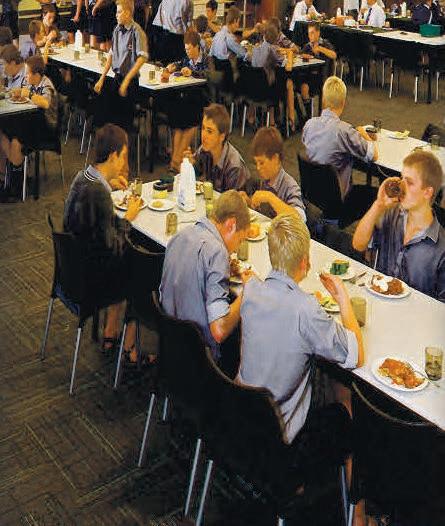


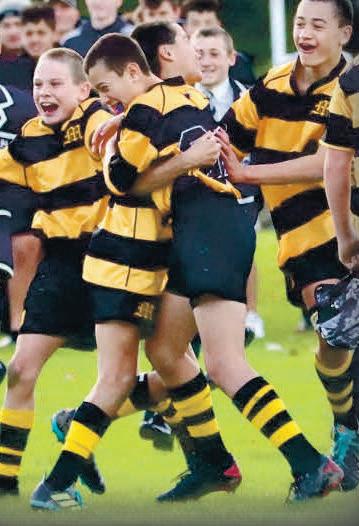










Rick Martin and Nairn Illingworth farm a drove of happy heritage pigs on their small farm in Marlborough’s Onamalutu Valley.
When Country Life visited it was a hot and dry February day. The pigs didn’t seem to mind.
Weaners wallowed in pools of mud and fossicked in long grass, a sow snored as she fed her hungry litter, while other bigger pigs enjoyed an early dinner.
Martin and Illingworth moved to their bushy little farm about 12 years ago. Before that, they ran the Junction Hotel at Spring Creek, just north of Blenheim.
Martin said transitioning from hospitality to farming “wasn’t too challenging”.

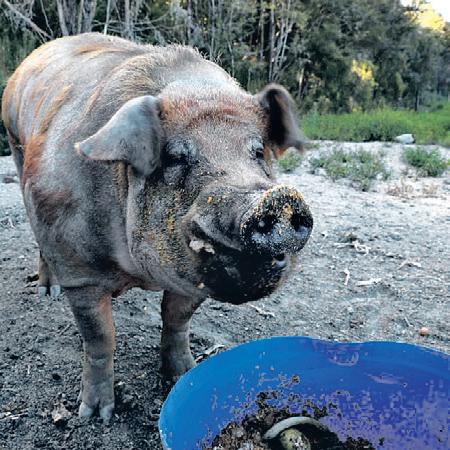
“When I left school I went dairy farming for a few years, and Nairn’s parents had a farm at the top of the Waihopai Valley, so we both have a farming background.”
Now they run a Duroc boar, six breeding sows, and whatever offspring they have.
“We can get up to 60 and we’ve been bigger

that. But, since covid, we’ve dropped the numbers back,” Martin said.
The couple take a nurturing approach towards their animals and try not to get too attached – this doesn’t always work.
When sows have litters that are too big to feed, Illingworth cares for the hungry runts in the
house, until they’re strong enough to go back to the paddock.
“They sleep by the fire for the first couple of nights and then we have other areas with heat lamps. It’s funny – the TV’s going or there are dogs barking, but they sleep through it,” she said.
Most of the food the pigs eat comes from local
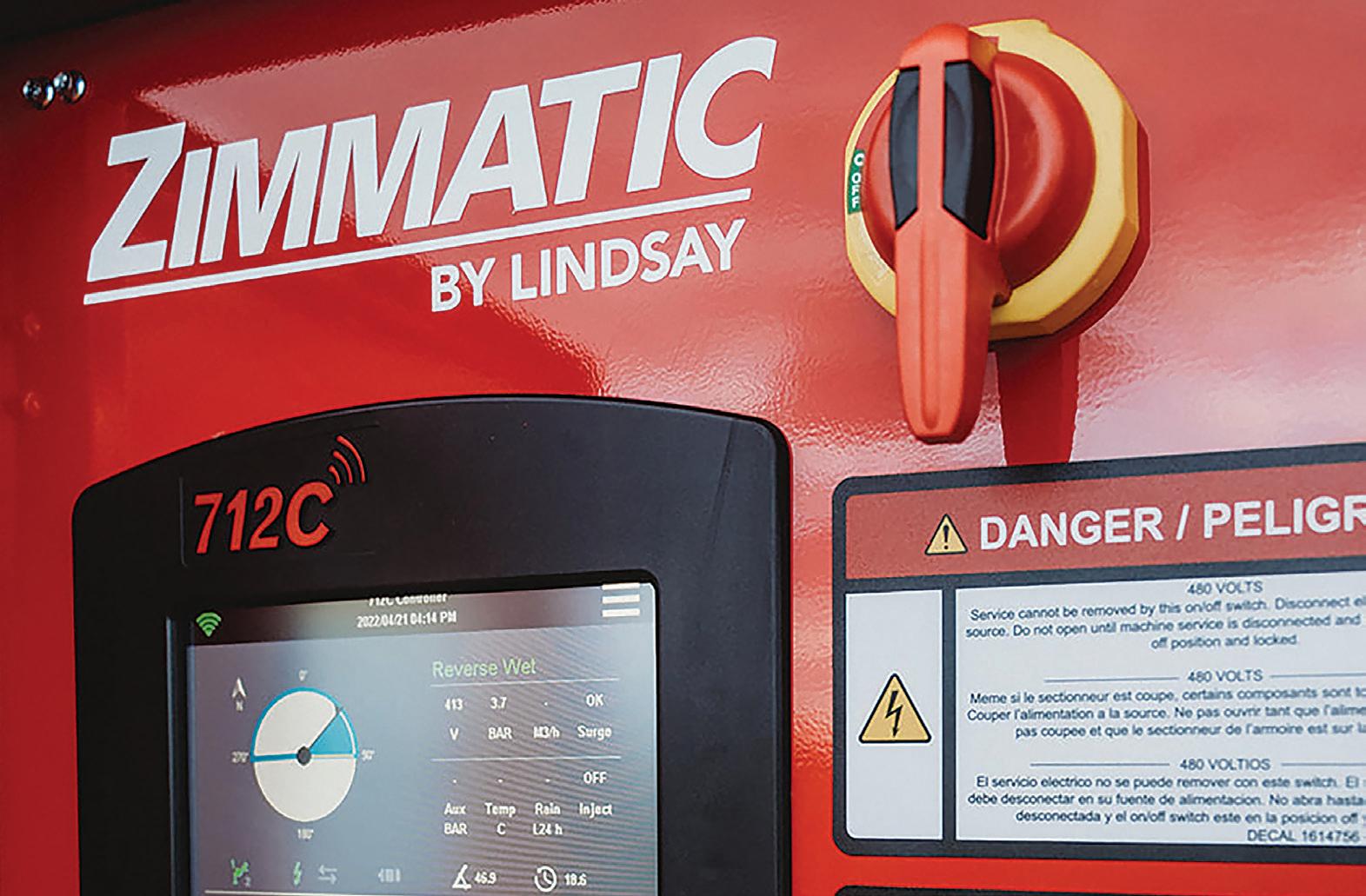
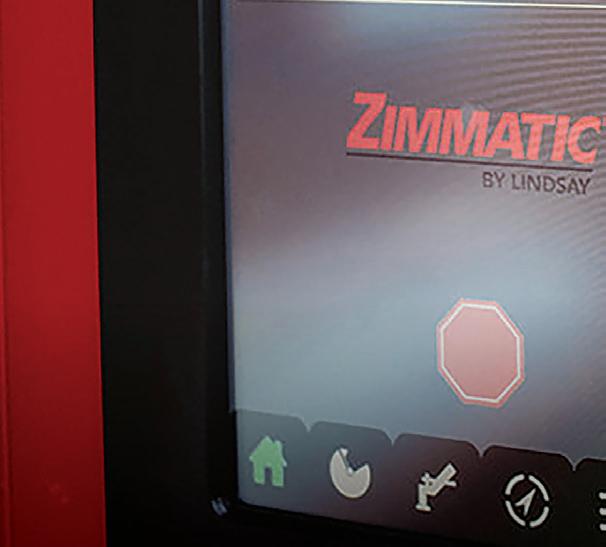
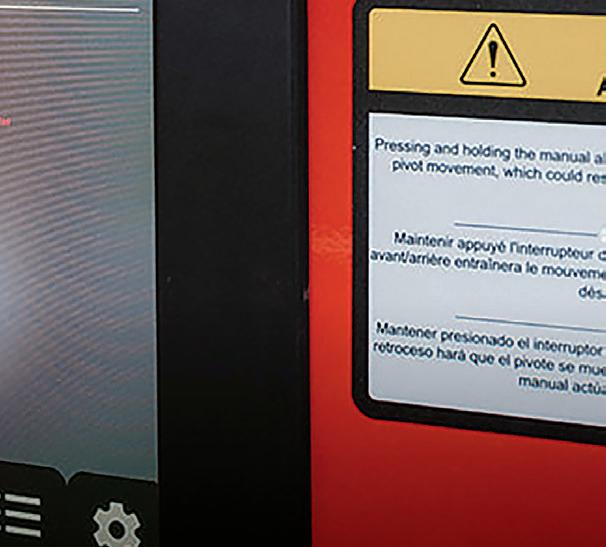

businesses.
“We collect the spent barley from DNA Brewing, we get whey from Cranky Goat cheese, vegetable scraps from a couple of greengrocers in town, and we also get bread, so it’s all recycled,” Martin said proudly.
“He’s a very goodlooking pig that one,” Illingworth said of one

of the bigger piglets with large black spots. “Rather cute when he was smaller but now they’re big and growing out nicely. So they will be going to Harris Meats within the next few weeks.
“When they’re in the paddock, they don’t look that big, but once they’re on the hook, they are a lot bigger.”
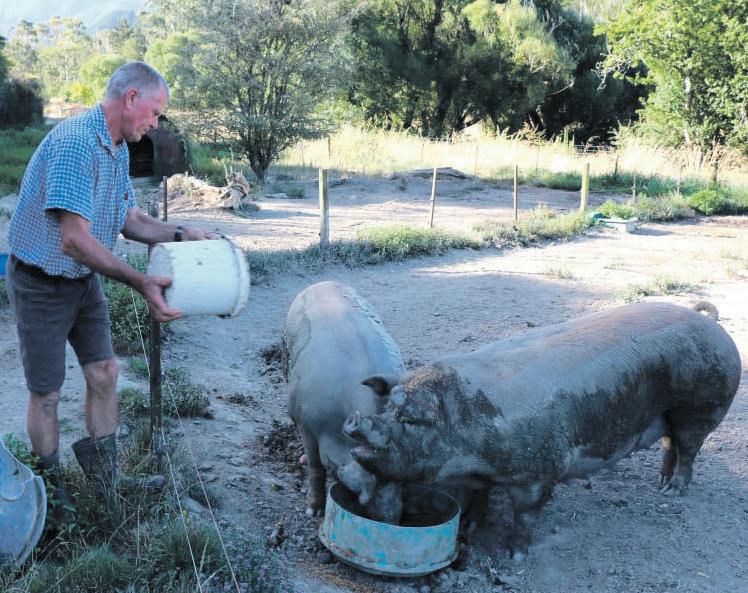
Depending on how fast they grow, pigs are at the farm for six and eight months before going to
back and they’re hanging in the chiller, you know, you can see the benefit of all that hard work.”
When they’re returned
Wairarapa
Kaiwaiwai* 416.5351950131.402.8029
Masterton Irr 218.930226521.484.0035
Greytown Irr# 318652300101.654.6527
For more information view the full farm walk data on the DairyNZ website Farmwatch page at dairynz.co.nz/farmwatch. *Kaiwaiwai is a split calving/winter milk farm.
DairyNZ Update
Planning for next season’s production and reproduction starts now. The ideal BCS is 5.0 for MA cows and 5.5 for rst/second calvers. Do you have a plan for achieving target BCS? Some strategies include:
Give the rst and second calvers more time dry than older cows
Young cows are still growing to reach their mature weight and often have lower intakes. Therefore, they’re only able to put weight on slowly, and require more time to achieve target BCS.
Split dry herds on BCS and time until calving
If you dry-off all at once then it is necessary to split the dry cows into herds based on condition and expected calving date. This allows for preferential feeding. If supplement is going to be fed, then feed it to the herd you want to gain the most condition or that needs to put it on fastest.
Staggered dry-off based on BCS and time to calving
The principle here is that every dry cow can be fed the same, but the difference is how long she is dry for.
For more on BCS strategies visit Body Condition Score strategies – DairyNZ
www.dairynz.co.nz – 0800 4 DairyNZ – 0800 4 324 7969
Sunday. Martin also cooks some of the meat and sells it in buns.
“So we do bacon butties










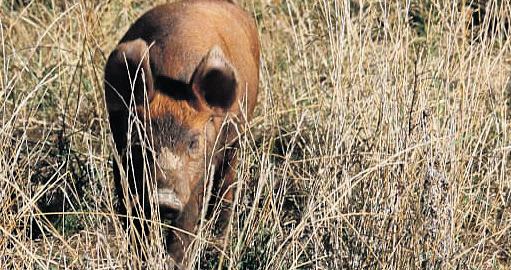



TransAg’s dealer principal, Euan Avery, is looking forward to what’s ahead in 2024.
With branches currently well-established in Palmerston North, Hawera, and New Plymouth, the company has picked up a new dealership and is also venturing further afield.
“Currently, TransAg covers the Wairarapa from its Palmerston North base,” Avery says, “but on 19 February this year, we open the doors to our new Masterton dealership at 17 Edwin Feist Place.”
As well, in a general spirit of growth, New Holland brands of farm machinery have recently been added to TransAg Masterton’s inventory of machines, to sit alongside Case IH.
TransAg Centre is a privately owned and operated company that has provided an unbeatable farm machinery service to the Manawatu since 1986. Expansion started in 2014 when the business bought AMT (Agricultural Machinery Taranaki) in Hawera and New Plymouth and expanded into the Taranaki region with Case IH and other brands.
Case IH began producing top quality equipment in 1842, gaining experience and knowledge that sets them apart in the industry. The firm is renowned for making powerful, e icient machines with top quality features – they are built to last in rugged conditions.
CNH Industrial recently established a new retail footprint for New Holland in New Zealand and Case IH dealerships – including TransAg – have stepped up to support the brand. TransAg is the latest CHN Industrial dealership to be confirmed as a dual dealer for both Case IH and New Holland machinery.
TransAg also supplies and services a quality



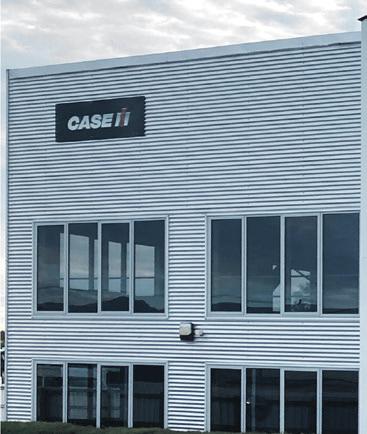
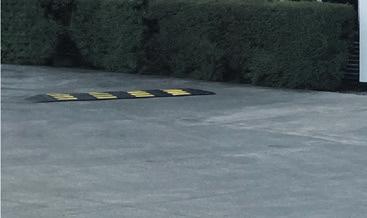





range of professional farm accessories. The company strives to stay at the forefront of a changing industry by keeping up to date with new techniques and equipment, both in supply and servicing – it regularly invests in new diagnostic equipment and stocks some of the biggest brands in the industry.
Established in Palmerston North – with Euan’s father Merv Avery one of three people behind the original venture – the TransAg company today has 32 sta . With the expansion into a new market, the addition of the New Holland brand, and with an increased capacity for parts and servicing, that number of sta is growing.
Avery says, “We’ve recruited four Wairarapa locals to cover sales, parts, and servicing, to ensure the maintenance of the high standards of service and support for which TransAg is known. The smooth supply of parts is critical, as is the quality servicing of machinery.”
Buying the Oha Honey Building in Edwin Feist Place, TransAg has been busy fitting it out with rebranding, painting, new electrics, compressed air, and lighting to set up a modern workshop. The










ACROSS
1 Long soft seat (5)
4 Medicine in gelatine cases (8)
9 Stroke (6)
14 Raise (5)
15
17 Mediterranean tree (5)
19
26
29
33
35
37 Bursts (4)
39 Assessment (9)
40 Glued into (anag)(9)
41 Bomb (5)
42
47
55
56
59
60
61
62
63
66 Maintenance (6)
67 Followed (6)
69 Uprising (9)
72 Deep-set (6)
73 Small dog (9)
75 Duo (7)
77 Astern (3)
80 Encouraged (5)
81 Somebody who can always be relied on for support, comfort (1,5,2,8)
82 Mislays (5)
83 Did not go (6)
84 I undress (anag)(8)
85 Decree (5)
DOWN
2 Or else (9)
3 Intimidated (5)
5 Unreturnable serves (4)
6 Widely spoken Bantu language (7)
7 Mirror (7-5)
8 Edges (anag)(5)
9 Pressures into doing (7)
10 Civil disorder (4)
11 Hidden shooter (6)
12 Of lesser importance (5)
13 Race official (7)
14 Progress (7)
16 Stage-manage (11)
22 Root vegetable (6)
23 Timber processing plant (7)
24 Mythical flying horse (7)
25 Resides (6)
27 Taint (7)
28 Dog shelter (6)
30 Numb (4)
32 Secretes (5)
34 States positively (5)
36 Floppy (4)
38 Poem (3)
42 Renowned (5)
43 Sorcerer (7)
44 Ladder step (4)
45 Gave the slip (6)
46 Hearing (5)
48 One asking questions (11)
49 Serving (7)
50 Chest bone (3)
51 Cautionary advice (7)
52 Shouted (6)
53 Underground (12)
54 White cheese (4)
57 Forging blocks (6)
64 Puzzling (9)
65 Utterly wicked (7)
66 As a rule (7)
68 Inaudible (7)
70 Woman’s bedroom (7)
71 Heaviness (6)
72 Secret supply (5)
74 Circular bands (5)
76 Church council (5)
78 Small whirlpool (4)
79 Small island (4)
Last
Last week’s crossword solution
ACROSS: 1 Album, 4 Have a sixth sense, 14 Annoy, 15 Steel, 16 Crossroads, 17 Tired, 19 Tot, 20 Parsnip, 21 Realistic, 22 Aphids, 25 Demanding, 27 Sundae, 28 Sticky, 33 Accomplish, 35 Web, 36 Secure, 37 Brag, 39 Urn, 41 Deficit, 42 Pewter, 43 Laughable, 44 Brawl, 45 Magnetic, 50 Is, 51 Taciturn, 55 Fight, 58 Numerical, 59 Ashore, 60 Amounts, 61 Pal, 63 Axle, 64 Statue, 65 Inn, 66 Motherhood, 68 Ending, 69 Weapon, 71 Brilliant, 76 Threat, 77 Mausoleum, 79 Road hog, 81 Ash, 84 Stale, 85 Daydreamer, 86 Rainy, 87 Slows, 88 Tip of the iceberg, 89 Patch.
DOWN: 2 Lethal, 3 Users, 5 Airy, 6 Eastern, 7 Stroll, 8 X-rays, 9 Hessian, 10 Eats, 11 Script, 12 Knots, 13 Mystify, 14 Addicts, 18 Disappoint, 23 Admit, 24 Catcall, 26 Emotion, 27 Suburbs, 29 Caribou, 30 Eczema, 31 Swots, 32 Trauma, 34 Heed, 36 Sneak, 38 Green, 40 Thai, 45 Mania, 46 Gambled, 47 Ears, 48 Incite, 49 Agape, 50 Italian, 52 Competitor, 53 Toughen, 54 Ration, 55 Flatter, 56 Chant, 57 Grim, 62 Stall, 67 Undress, 68 Embassy, 70 Plaudit, 72 Rhubarb, 73 Malawi, 74 Cleric, 75 Cognac, 76 Throw, 78 Style, 80 Drama, 82 Veto, 83 Beer.
Insert the missing letters to complete ten words — five across the grid and five down. More than one solution may be possible.

Matt




Matt and Josh have both been professional painters in Wairarapa more than ten years and ensure all painting and decorating services are carried out to the utmost professional standard.

They are skilled in painting, plastering and wallpapering, and are experienced in both new homes and restoration work including villas.












There is nothing quite like natural pyrethrin from the chrysanthemum daisy to control ies, cockroaches, ants and other crawling and ying insects. You can’t go past Ecomist. It’s highly e ective and is a safe option for you, your family, and your pets.

Matt and Josh offer clients a free ve-year workmanship guarantee as their promise of quality work.














Angela Hatchard has owned the Wairarapa franchise for Ecomist for four years, and we’re coming to rely on her products in our homes, businesses, schools, and rest homes. Ecomist, with easy dispensers and replaceable canisters, is a hassle-free system for either insect sprays or fragrances for odour neutralisation.
Order through the website or pop into Gardenbarn to purchase.


You can order Ecomist for the home at www.ecomist.co.nz. For commercial enquiries phone 027 443 0514 or email ecomist.wairarapa@gmail.com





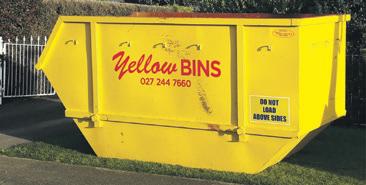













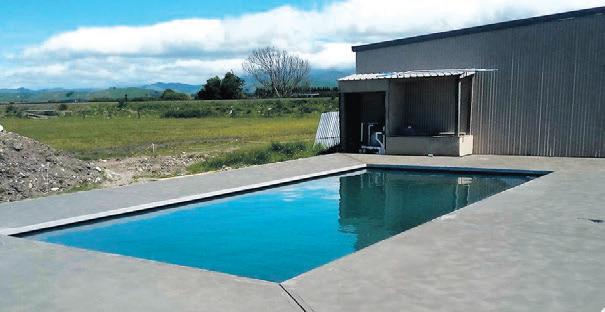


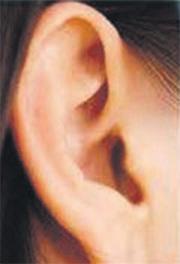


















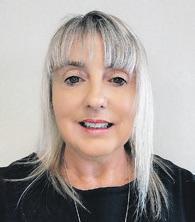

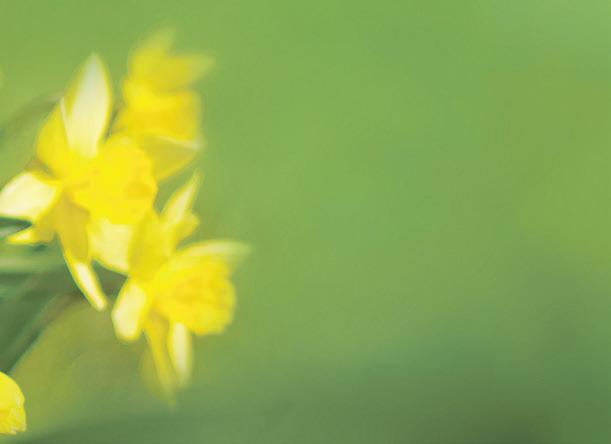




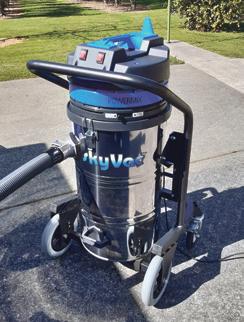









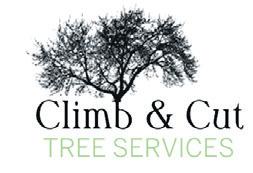














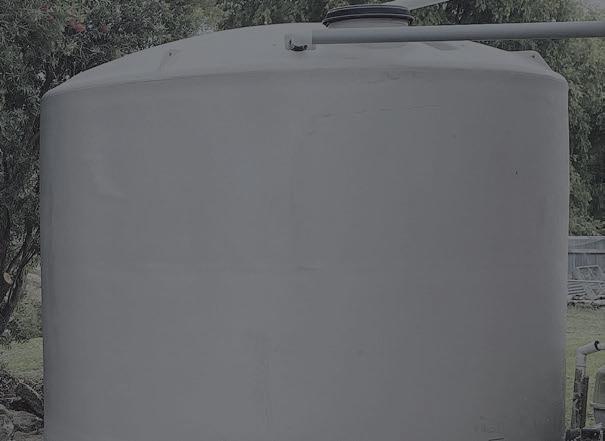
THURSDAY, MARCH 7
Al-Anon Family Groups: Help and hope for family and friends of alcoholics. See al-anon.org.nz for more information.
Alcoholics Anonymous: Featherston Community Centre, 7.30-8.30pm. Call 0800 229 6757.
Belly Dance for Beginners: Kiwi Hall, Featherston, 6.30-7.30pm. Call Antonia Blincoe [021] 105-7649.
Carrington Bowling Club: 57 High Street, Carterton,1pm for 1.30pm start. Call Pauline Hodgson [027] 406-672.
Carterton Community Choir: 7.15-9pm, St David’s Presbyterian Church Youth Wing, 164 High St South. Call [0278] 205-801.
Carterton District Historical Society: 142 High St North, Carterton, open 2-4pm or by appointment. Call Vivienne 3795564 or email carterton.hist.soc@ gmail.com
Carterton Scout Group: At Rangatahi Hub [behind Carterton Event Centre], Scouts [11-14 years] 6.30-8.30pm. Contact Sylvia [027] 249-3395.
Danzability Class: 11am-noon, at Studio 73, Greytown. Contact physio.rachel.horwell@gmail.com or [022] 077-2654.
Digital Seniors Wairarapa: Call [0800] 373-646 to book or for advice.
Martinborough: 9.30-11.30am, St Andrew’s Church; Featherston: 1.30-3.30pm, Featherston Community Centre.
Fareham Creative Space: Also Fri/Tues, open studio, 10am-3pm, 80 Underhill Rd, Featherston. Email: registrations@ farehamcreativespace.nz
Featherston Menz Shed: 61 Fitzherbert St, open from 6.30pm. Food Market: Food trucks, 4.307pm outside the Masterton Town Hall, rain or shine.
GirlGuidingNZ: Carterton Pippins, 5-7 years, 4.15-5.30pm. Carterton Brownies, 7-9½ years, 6-7.30pm. Call Sharon [021] 033-0550.
Justice of the Peace: Masterton CAB 9.30am-12.30pm.
KeepFit!: 10.30am, Senior Citizens Hall, Cole St, Masterton. Call Age Concern [06] 377-0066.
Masterton Petanque Club: 2pm, in Queen Elizabeth Park. Call Myrna Lane 377-3064.
Masterton Toy Library: 10am-1pm, 365 Queen St.
Narcotics Anonymous: 7.308.30pm, at St Matthew’s Church, Church St, Masterton.
Parkinson’s Exercise Class 1.30pm, at the Wairarapa Boxing Academy, Dixon St. Call Roslyn [027] 264-8623.
Patient Activity Programme: At Hospice Wairarapa, 59 Renall St, Masterton, 10am-1pm. Call 378-8888.
Red Star Table Tennis Club: 5-7pm at Red Star Sports Association 10 Herbert St, Masterton. Call Peter [027] 566-4664 or Brian 377-4066.
Ruamahanga Club: Cards, 500, 1-4pm, at Wairarapa Services Club, Essex St, Masterton. Social Learners Bridge: 1-3.30pm, Featherston Community Centre. Call Barbara [06] 304-9208.
Steady As You Go: Falls Prevention and Balance Class, 9.30am, Senior Citizens’ Hall, Cole St, Masterton. Call Age Concern [06] 377-0066.
Thursday Morning Bikers: Meet at the fountain at the Queen Elizabeth Park entrance, 9.30am. Contact David [021] 246-0295.
Wairarapa Fern and Thistle Pipe Band: Weekly practice, Masterton Brass Bandrooms, Park Ave, Masterton. Email fernandthistle21@ gmail.com
Wairarapa Model Aero Club: 9amnoon, at the Masterton Aerodrome. Whakaoriori Shufflers: Line dancing, Red Star clubrooms, Herbert St, Masterton, intermediate, 1-2.30pm. Call 377-5518 or 3771135.
FRIDAY, MARCH 8
Aratoi: Lester Blair: Twenty-Four Churches to Apr 16; James Bragge: Splendid Scenic Gems to May 5; Choice: Staff picks from the collection to May 5; King Street Artworks to May 26.
Carterton Craft Market: Mon-Sat: 9am-4pm, Sun: 10am-3pm, 25 High St North, Carterton. Call Desley [027] 787-8558.
Carterton Senior Citizens: 12.30-3.30pm, play cards, Rummikub and Scrabble, at the old courthouse next to the library.

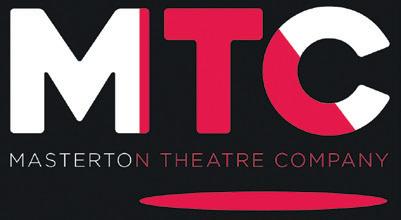



Cloth Collective Sewing Workshop: 10am-2pm, Kiwi Hall Supper Room. Call Sara Uruski [0274] 474-959.
Dance Fit: At Carrington Park, Carterton, at 6-7pm. Text dance groove to [022] 321-2643.
Greytown Music and Movement: For pre-schoolers, 10am, at St Luke’s Hall, Main St. Contact email admin@ stlukesgreytown.co.nz
Justice of the Peace: Carterton library noon-2pm; Masterton District Court 11am-1pm; Eketahuna Library
1.30-4.30pm.
Masterton Bowling Club: Funzie Friday, 12.30pm for 1pm start. Call 377-4664 after 4pm.
Masterton Croquet Club: Golf
Croquet 9.15am behind the Hosking Garden in the park. Call Russell Ward 377-4401.
Masterton Masters Swimming
Club: Club night 5.30-6.30pm, Trust House Recreation Centre back pool. Call Stu [027] 295-4189 or Lucy [021] 0204-4144.
Needlework & Craft Dropin: 10am-noon, Featherston Community Centre. Call May [06] 308-6912 or Virginia [06] 308-8392.
Wairarapa Kids Choir: For children aged seven years up, 3.50-4.50pm, during school terms, Courthouse, Holloway St, Carterton. Call Jill [027] 347-5891.
Wairarapa Stop Smoking Service: Quit Clinic at Whaiora 9am-noon. Support across Wairarapa. Call Whaiora 0800 494 246. Walk and Talk: Meet outside Dish Cafe, First St, Masterton, 9.30am.
Carrington Bowling Club: 57 High St, Carterton, behind clock tower. Call Pauline [027] 406-6728.
Cobblestones Early Settlers Village: Open 10am-4pm seven days. Crop Up Greytown: Fresh produce, seafood and kitchen creations from Greytown and South Wairarapa, from 9am, at Truckstop Greytown, 102 Main St. Check Facebook.
Featherston Heritage Museum: Behind the Featherston Library and Information Centre. Sat/Sun 10am2pm, other times by arrangement. Call Elsa [021] 263-9403.
Featherston Weekly Market: 8am-2pm, 33 Fitzherbert St.
Greytown Menz Shed: 9am-noon. Call Paul Dodge [021] 0262-6595.
Justice of the Peace: Service centre available at Masterton Library, 10am-noon.
Lions Book Sale: 9am-1pm, under the grandstand, Solway Showgrounds, Judds Rd, Masterton.
Martinborough Men’s Shed: Old Courthouse, 20 Cork St, 9am-noon. Call John [021] 314-2485.
Martinborough Museum: Open Sat/Sun at No 7 The Square, 10.30am-2.30pm. Donation/koha appreciated.
Masterton Croquet Club: Association Croquet 9.15am and 12.45pm behind Hosking Garden in the park. Call Carl Redvers 378-7109.
Masterton Tennis Centre: Organised doubles from 12.30 pm at 147 Dixon St, Masterton. Contact Sue McRae [027] 449-0601. Parkrun Weekly 5km run/walk. 8am start, at the Woodside end of the Greytown rail trail. Info: parkrun. co.nz/greytownwoodsidetrail
Tinui Craft Corner and Museum: Open Sat/Sun 10am-4pm. Call Lesley Hodgins [06] 372-6433.
Toy Library: Masterton: 10am1pm, 365 Queen St. Featherston: 14 Wakefield St, 10am-noon. Wairarapa Cancer Society Supportive Care Services: For anyone needing support after a cancer diagnosis. Call (06) 378-8039.
Wairarapa Embroiderers Guild: At the Ranfurly Club Rooms, Chapel St, Masterton. Email Wairarapaembroiderers@gmail.com Wairarapa Farmers’ Market: 9am-1pm, Solway Showgrounds, Judds Rd, Masterton. Women’s Self Defence: With Dion, 9am, band rotunda, Queen Elizabeth Park. Call [020] 4124-4098.
SUNDAY, MARCH 10
Carterton Farmers’ Market: High St, Carterton, 9am-12.30pm. Featherston Menz Shed: 61 Fitzherbert St, open from 1pm.
Masterton Marauders Wargaming Club: At the Masterton Croquet Club, 1-5pm. Call Vince Cholewa [027] 344-1073 or visit http:// mastertonmarauders.blogspot.co.nz
Masterton Park Bowling Club: Queen Elizabeth Park, bowls roll up at 1pm, names in by 12.45pm. Call [027] 957-1012.
Masterton Petanque Club: Club day 2pm, in Queen Elizabeth Park. Call Myrna Lane 377-3064.
Masterton Tennis Centre: Social doubles from 9am at 147 Dixon St, Masterton. Blackboard draw.
Masterton Toy Library: 10am-1pm, 365 Queen St.
Narcotics Anonymous: Featherston Community Centre, 7-9pm. Call 0800 628 632.
Rotary Sunday Market: 7-11.30am, Essex St car park. Contact thehodsons@xtra.co.nz
South Wairarapa Pipe Band: Practice at St John’s church hall, Featherston, 4-6pm. To confirm time please call [027] 628-5889 or [027] 453-0182.
Wairarapa Model Aero Club: 9am-noon, at the Masterton Aerodrome.
Art for Everyone: Featherston Community Centre, 7-9pm. Call Sandie [021] 157-4909.
Carterton Alcoholics Anonymous: 8pm, Salvation Army Community Rooms, 210 High St. Call Bob [021] 042-2947 or Martin [06] 372-7764.
Carterton Community Toy Library: Events Centre, Holloway St, Mon-Sat during CDC Library hours.
Carterton Food Bank: 10-11am Mon-Fri at Haumanu House. Call 379-4092.
Carterton Scottish Dance Club: 7.30pm, at Carterton School Hall, Holloway St. Call Elaine 377-0322.
Carterton Scout Group: At Rangatahi Hub [behind Carterton Event Centre], Keas [5-8 years] 4.30-5.30pm; Cubs [8-11] 6-7.30pm. Contact Sylvia [027] 249-3395.
CCS Disability Action Wairarapa Office: 36 Bannister St, Masterton, 10am-1pm Mon-Fri. Call 378-2426 or 0800 227-2255.
Citizens Advice Bureau: Mon-Fri 9am-4pm, 43 Perry St, Masterton. Call 377-0078 or 0800 367-222.
Creative Hands Programme: At Hospice Wairarapa, 59 Renall St, Masterton, 10am-noon. Call Kirsten 399-1050.
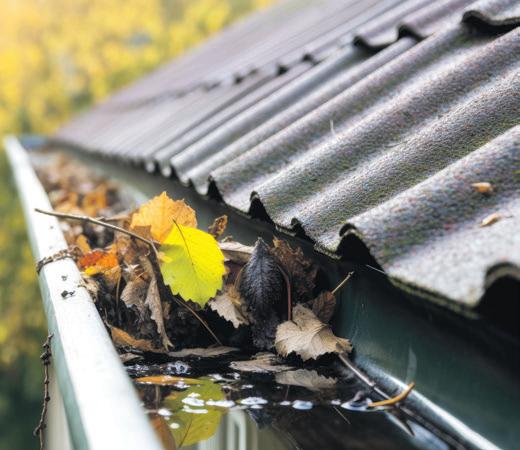
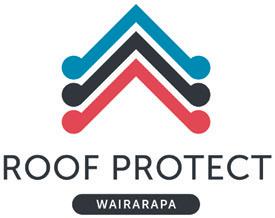
East Indoor Bowling Club: 7pm.
Call Julie 377-5497 or George 378-9266.
Featherston Music Club: 7-9pm.
Call Shaun O’Brien [027] 672-6249.
Free Community Fit Club: Mon/Tues/Fri, 6am and 11am, Carrington Park, Carterton. Call Di [027] 498-7261.
GirlGuidingNZ: Masterton Rangers, 12½-18 years, 6.30-8pm. South Wairarapa Guides [Greytown], 9-12½ years, 6-8pm. Call Sharon [021] 033-0550.
Hospice Wairarapa Support
Services: For anyone dealing with a terminal illness. Call [06] 378-8888.
Housie: 7pm, Club Carterton, Broadway. Call 379-8069.
Justice of the Peace: Masterton CAB 9.30am-12.30pm.
Keep Fit!: 9.30am, Senior Citizens’ Hall, Cole St, Masterton. Call Age Concern [06] 377-0066.
Line Dancing: 10.30am, Senior Citizens’ Hall, Cole St Masterton. Call Age Concern [06] 377-0066.
Literacy Aotearoa: Free computing and digital device classes for adults. Call 377-4214.
Mah-jong: 1-4pm, Featherston Community Centre. Call Pat Hamilton [06] 308-9729.
Masterton District Brass Band: Rehearsals at 7pm, in the Band Room, Park Ave, Masterton. Call [022] 574-0742.
Masterton Food Bank: 9 Church St, Mon-Fri 10am-12.30pm. Call 370-8034.
Play Gym: St James Church Hall 116 High St, Masterton, 9.30-11am, for 0-3-year-olds.
Red Star Table Tennis Club: 6-8pm at Red Star Sports Association 10 Herbert St, Masterton. Call Peter [027] 566-4664 or Brian 377-4066.
Senior Citizens Club: Cards 1-4pm, Featherston Community Centre. Call Val [06] 308-9293.
Steady As You Go: Falls Prevention and Balance Class, Featherston: 9.30am, A/G Church. Masterton: 1.30pm, Senior Citizens’ Hall, Cole St. Call Age Concern [06] 377-0066.
The Dance Shed: 450A Belvedere Rd, Carterton. Beginners
Linedance Class: 6-7pm. Linedance
Intermediate Class: 7.30-8.30pm. Call Wendy [027] 319-9814.








Troubadour Music Group: 6-8pm,
Wairarapa Community Centre, 41 Perry St, Masterton. Contact Stefan [027] 226-6019.
Wairarapa Futsal: 6pm Clareville Showgrounds. Call Robyn [027] 235-8673.
Wairarapa Services Club: Cards, 500, 1.30pm, at the club, Essex St, Masterton.
Wairarapa Stop Smoking Service: Call a Quit Coach based at Whaiora 0800 494 246.
Caregivers Programme: Caring for your loved one who is unwell, at Hospice Wairarapa, 59 Renall St, Masterton. Call Kirsten 399-1050.
Carrington Bowling Club: 57 High St, Carterton, behind clock tower. Call Pauline [027] 406-6728.
Carterton District Historical Society: 142 High St North, Carterton, open 2-4pm or by appointment. Call Vivienne 379-5564.
Central Indoor Bowls Club: 7.30pm, Hogg Crescent hall. Call Mathew or Graeme 378-7554.
Chair Exercise: Gentle chair exercises, 2-2.45pm, at St John’s Hall, Greytown.
Clareville Badminton Club: Main Stadium at Clareville, 7.30pm-9pm. Call Steve [027] 333-3975.
Dance Fitness: 6.30-7.30pm, at Fareham House Hall Featherston. Call Justine [0204] 105-2830.
Digital Seniors Wairarapa: Call [0800] 373-646 to book or for advice.
Carterton 9.30-11.30am, Carterton Library; Greytown: 1.30-3.30pm, Greytown Library.
Featherston Amateur Wrestling Club: During school terms. Classes are weight and skill dependent; Beginners, 5-9 years, 5.30-6.15pm; 10 years+ [including adults]
6.15-7.30pm.
Featherston Menz Shed: 61 Fitzherbert St, open from 10am.
Featherston Wahine Singers: 7-8.30pm, Featherston Community Centre. Call Susan [021] 246-4884.
Free Literacy and Numeracy Classes: At Literacy Aotearoa, 340 Queen St, Masterton. Call Carol [022] 524-5994.


















GirlGuiding: Masterton Pippins
[5-7 years] 3.45-5pm. Call Chrissy
Warnock 372-7646.
Justice of the Peace: Masterton
CAB 11am-1pm.
Knit and Natter: 3pm, Wairarapa Community Centre, Perry St; 7pm, Te Awhina Cameron Community House, 2 Stuart Cres, Masterton.
Mah-jong: Carterton RSA, 1pm. Call Margaret 379-8681.
Masterton Alcoholics Anonymous: 7.30pm, St Matthew’s Church Hall, 35 Church St. Call Anne 378-2338 or David [021] 116-5505.
Masterton Croquet Club: Golf Croquet 9.15am behind the Hosking Garden in the park. Call Russell Ward
377-4401.
Masterton Judo Club: Tues/Thurs, youth class 5-6pm, adults 7-8.30pm, Nga Totara Dojo, 205 Ngaumutawa Rd, Masterton. Contact Simon [021] 248-6111.
Masterton Senior Citizens and Beneficiaries Association: Social indoor bowls, 500 cards, or a chat 1-3pm, Senior Citizens hall, Cole St. Call Ngaire 377-0342.
Masterton Toy Library: 10am-1pm, at rear of Masterton YMCA, 162 Dixon St, Masterton.
Red Star Table Tennis Club:
9am-noon at Red Star Sports Association 10 Herbert St, Masterton. Call Peter [027] 566-4664 or Brian 377-4066.
Scallyrag Border Morris Dancing: 7-8 pm at the Auditorium, Kuranui College, Greytown. Contact Alison [021] 111-1894. Social Bridge: At South Wairarapa Workingmen’s Club, 1.30-3.30pm. Call Lesley [021] 299-6389. South Wairarapa Workingmen’s Club: Games afternoon. Call Doff 304-9748.
Wairarapa Genealogy Branch: Family History Research Rooms, 5 Church St, Masterton, 1-3.30pm.
Wairarapa Modern Jive: Carterton School hall, 7.15-7.30pm Intermediate workshop; 8-8.45pm Beginners class. Contact Lance [021] 134-5661.
Wairarapa Services Club: Cards, Euchre, 1pm, at the club, Essex St, Masterton.
Woops A Daisies: Leisure Marching Team practice 4-5pm, at the Trust House Rec Centre Stadium. Call Cheryl [06] 370-1922 or [027] 697-6974.
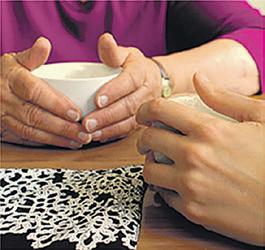
AA Meeting: At 7.30pm, Epiphany church hall, High St, Solway, Masterton. Call [027] 557-7928. Athletics Wairarapa: Club night, 5.45-7pm, Colin Pugh Sports Bowl, Masterton.
Cards: “500”, 1.15-4.15pm, at the Carterton Club. Call Barbara 3796582 or Val 379-8329.
Carterton Cycle Group: From Belvedere Rd [weather permitting].
Call Irene [027] 634-9167 or Lesley [021] 299-6389.
Dance Fitness: 9.30-11am, preschoolers with parents or caregivers at Fareham House Hall Featherston. Call Justine [0204] 105-2830.
Digital Seniors Wairarapa: Call [0800] 373-646 to book or for advice. Masterton: 10am-noon, Masterton Library.
Free Classes: Literacy, language, numeracy for adult learners. Call Literacy Aotearoa 377-4214.
GirlGuidingNZ: Masterton Brownies, 7-9½ years, 5.30-7pm. Call Sharon [021] 033-0550.
Greytown Menz Shed: 9am-noon.
Call Paul Dodge [021] 0262-6595.
Healing Rooms: Confidential prayer for healing or any situation, 2-4pm, at St Matthews Church Hall, Church St, Masterton. Call [027] 245-2819.
Heart of Arts Wairarapa: A community gallery, 47 High St North, Carterton, Wed-Fri, 10am4pm, weekends, 10am-2pm.
Juesday Art: 10am-12.30pm, AOG Church, Birdwood St, Featherston. Call Julia [06] 308-8109.
Justice of the Peace: Masterton CAB noon-2pm. Kiddie Gym: For under-5s, 9.30-11am, at St David’s Church, corner High and Victoria Sts, Carterton. Call Judy or Joan 379-8325.
Martinborough Men’s Shed: Old Courthouse, 20 Cork St, 9am-noon. Call Doug [027] 444-7331.
Masterton Art Club: 10am-2pm, also print on Fridays, at 12 Victoria St. Call Elissa [0274] 706-528.
Masterton Croquet Club: Association Croquet 9.15am and 12.45pm behind the Hosking Garden in the park. Call Carl Redvers 378-7109.
Masterton Park Bowling Club: Queen Elizabeth Park, 1pm, names in by 12.45pm. Call [027] 957-1012.
Parkinson’s Singing Group: 10am, at the South Wairarapa Workingman’s Club, Main St, Greytown. Call Marguerite Chadwick 379-5376.
Rangatahi to Rangatira Youth Group: Sports, food, and leadership, Carterton Events Centre. Text “R2R” to [027] 742-2264.
Recreational Walking Group: 9.30am, Essex St car park. Call Ann Jackson, 372-5758, or Ann Duckett, 378-8285. Scrabble Club: 1-4pm in Masterton. For venue details, call Sue McRae [027] 449-0601. Silver Ukulele Club: 1-3pm, Featherston Community Centre. Call Jan [06] 308-8556.
Soulway Cooking and Crafts: 10am-noon, High St, Masterton. Call Nikki Smith 370-1604].
South Wairarapa Caregivers Programme: Caring for your loved one who is unwell, at a café in South Wairarapa. Call Kirsten 399-1050. Taoist Tai Chi: From 5.30pm at St Mark’s Church Hall, 185 High St, Carterton. Contact www.taoisttaichi.org Te Runga Scouts: Cubs, 6-7.30pm, 45 Harley St, Masterton.
The Dance Shed: 450A Belvedere Rd, Carterton. Line Dance Class 6-7pm; Rock N Roll Dance Class: 7.30-8.30pm, Beginners/Couple Coaching, Social/Competitive. Call Wendy [027] 319-9814.
Wairarapa Heart Help Group: 1.30- 3pm, Wairarapa Community Centre, 41 Perry St, Masterton. Wairarapa Rockers: Rock’n’roll. Couple inquiries to [027] 333-1793.
Wairarapa Services Club: Rummikub, 1pm, at the club, Essex St, Masterton.
Wairarapa













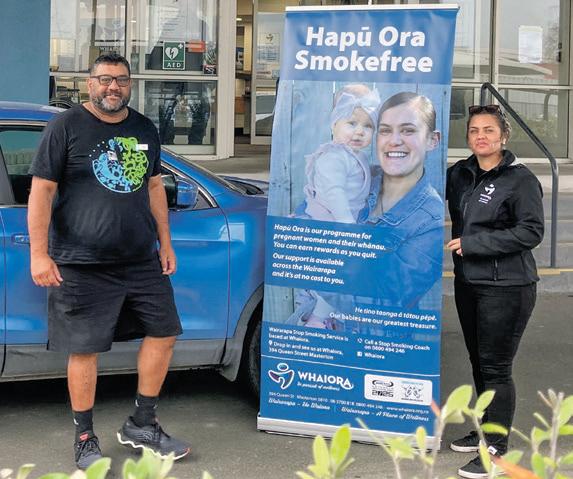


Public Notices
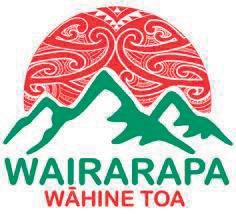
Wairarapa Wāhine Toa Rugby Club
Inc AGM
Nau mai piki mai ki te
Wairarapa Wāhine Toa Rugby Club
Annual General Meeting
Be a part of shaping our club's future at the President's Room, Solway Showgrounds, Masterton, at 6pm, Thursday 4 April
We will share our draft strategic plan, review the highlights of the past year, and set our sights on the exciting upcoming season
See you there!


Public Notices
AGM
Church Te Hepara Pai 131 Cole Street,11.00am, Sunday 10th March followed by AGM for Te Rangimarie Marae, 131 Cole Street at midday
Section 46(2), Impounding Act 1955
The undermentioned stock, having been seized for impounding on Pack Spur Road, Mataikona on Friday 9 February, is impounded at the Masterton Animal Shelter:
Description of stock:
One young female goat, predominantly black in colour, estimated to be six months old. Notice is hereby given that, unless claimed by the owner, the stock will be rehomed. If this is your goat please call us on 06 370 6300 or email: animalservices@mstn.govt.nz
6 March 2023
Jill Wood - Authorised Officer
NOTICE TO CLOSE ROADS TO VEHICULAR TRAFFIC
Pursuant to the Transport (Vehicular Traffic Road Closure) Regulations 1965, notice is hereby given that the South Wairarapa District Council, for the purpose of the Gintastic, will close the following roads to ordinary vehicular traffic for the period indicated hereunder.
Roads to be closed:

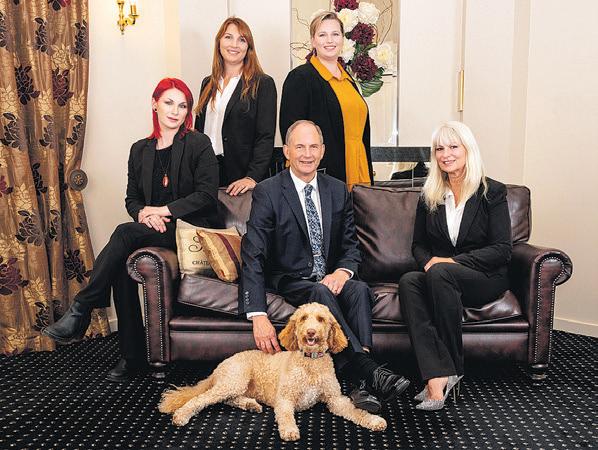


• Moroa Road between No 1 Line and SH2 (Full road closure except buses and private vehicles for the Gintastic event)
Period of closure:
• 9th of March, 6am to 6pm.
Stefan Corbett Group Manager Partnerships & Operations
an emergency.
Johannes Ferreira Infrastructure Manager
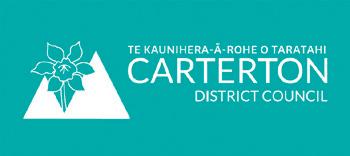
Gardening & Landscaping


Paul August


Landscape Design

Landscape Consultation & Design Service 027 446 8256
august.landscape@orcon.net.nz
www.augustlandscapes.co.nz
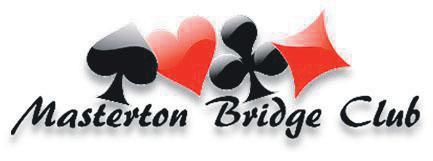

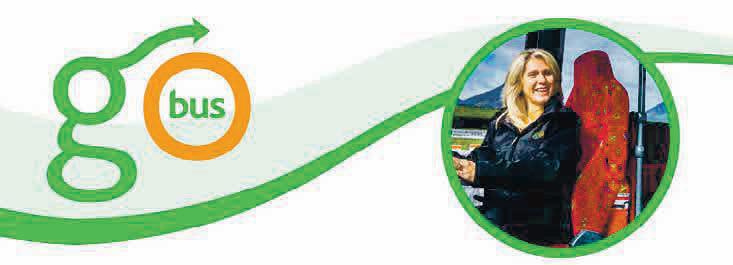





Southland shearer Leon Samuels joined the elite of world shearing, winning his maiden open title at the ‘Wimbledon” of Shearing – the Golden Shears on Saturday night.
Samuels’ victory in a dramatic six-man final at Masterton’s War Memorial Stadium was the first by a South Island shearer in 35 years, and his name is the first new one to be etched onto the prestigious trophy in nine years.
The drama started before the Golden Shears began when eighttime winner Rowland Smith was ruled out with an injury. Then prolific recent winner and TAB hot favourite
Toa Henderson was eliminated in the quarterfinals. That left Samuels as the favourite to lift the trophy for the first time.
However, it was 2015 champion Scotsman Gavin Mutch who made the early running in the final until the sixth of the 20 sheep when local favourite David Buick from Pongaroa took the lead, which he held until the end, holding off a late surge from Samuels and finishing in 16 minutes 16.064 seconds, one of the quicker times in the 62 years of the event.
One of the biggest cheers was saved for the miracle man Buick, whose achievement of finishing first was even more remarkable given that it was just two-anda-half years when he was so badly injured
in an accident on his Pongaroa farm the prognosis was that he might not even walk again.
Ultimately, though, it was a Southland onetwo, with 40-year-old Samuels competing in his second Golden Shears Open final [having finished third in 2020], winning by the narrow margin of 1.253 points from runner-up and Riverton shearer Casey Bailey, who was in the final for the first time.
Losing some points in judging of the sheep in the pens, Buick was a further 1.26 points back in third place, followed by Southland veteran Nathan Stratford in his 12th final, first-time championship finalist James Ruki of Te Kūiti, and Hawke’s Bay-based Scotland international Mutch.
The last South Island shearer to win the Open title was Edsel Forde in 1989.
Also on Saturday night, Stratford won his third PGG Wrightson National Shearing Circuit final in his 20th appearance, with just a 0.355 points margin to Samuels in second place, in another Southland quinella.
Samuels, Stratford [in his last test] and Marlborough shearer Angus Moore combined to beat the Australian team of Daniel McIntyre, Nathan Meaney and Josh Bone by just 2.51 points, the closest margin in trans-Tasman shearing tests since an Australian victory in Warrnambool, Victoria, in 2013 and New Zealand’s narrowest win since 2009.
Tia Potae and Cushla Abraham won their match against the Australian woolhandling team of Marlene Whittle and Alexander Scholl on Friday night.
Joel Henare, 32, from Gisborne, continued his woolhandling dominance, winning the Golden Shears Open title for a 10th consecutive time, with a narrow margin of just six points from Alexandra hopeful Pagan Rimene.
It also gave New Zealand a 2–0 weekend after woolhandlers



Saturday wrapped up a highly successful championship, which attracted a record number of entries, with more than 500 shearers, woolhandlers and woolpressers participating, while more than 5000 spectators poured into the War Memorial Stadium for the three days of competition.

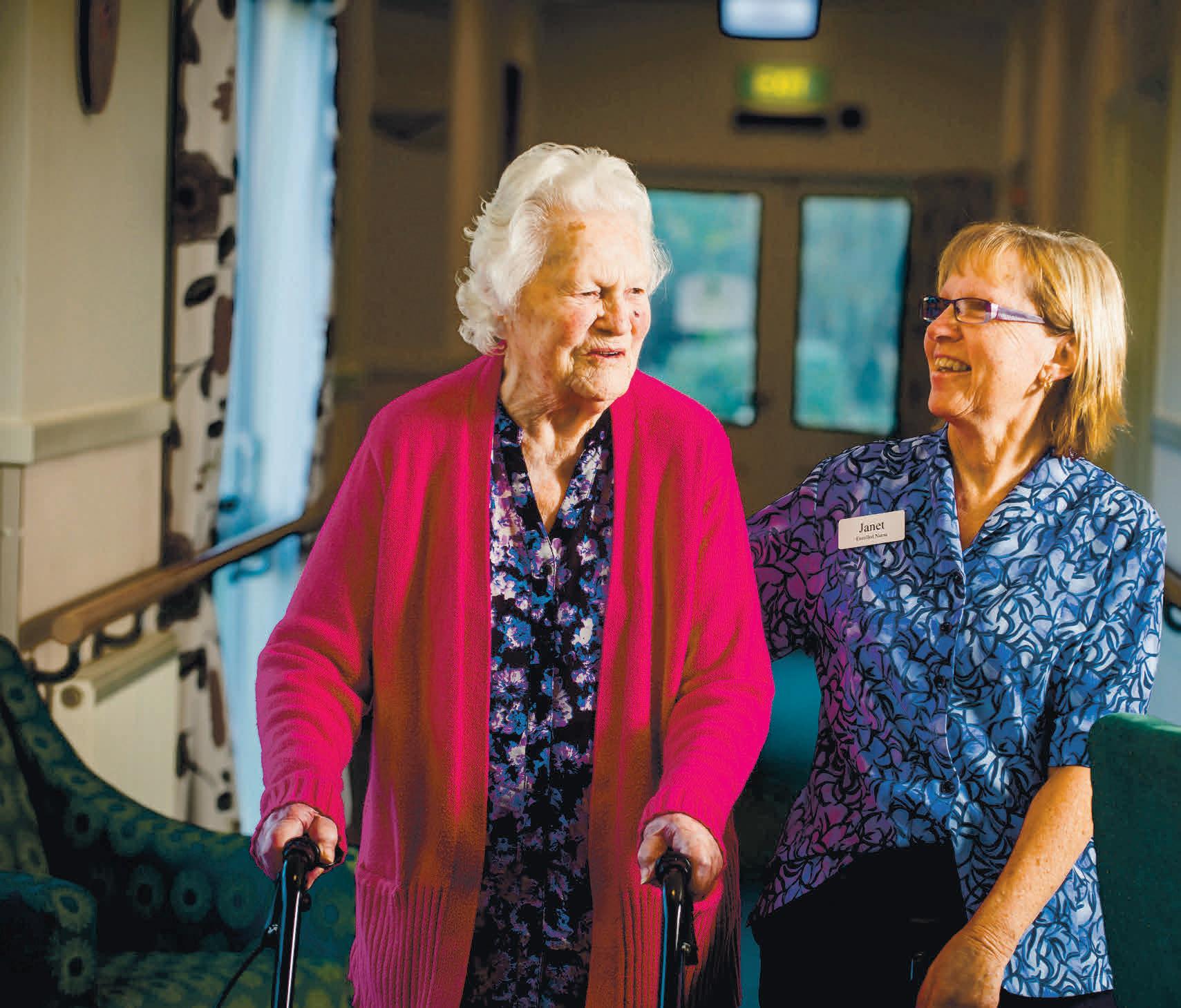
Going